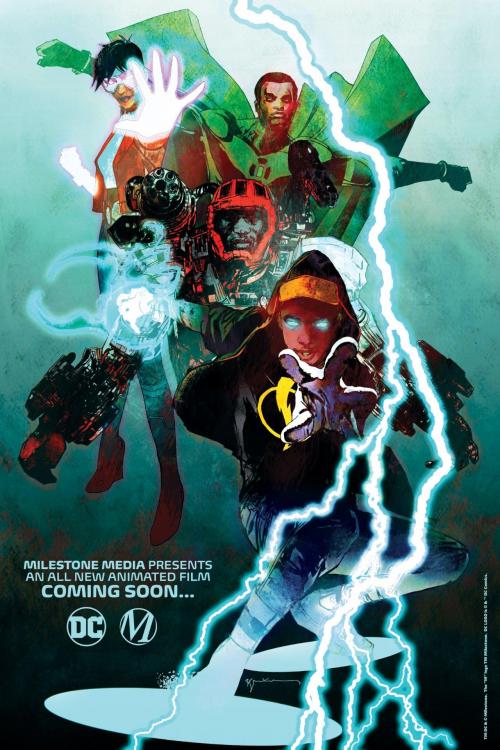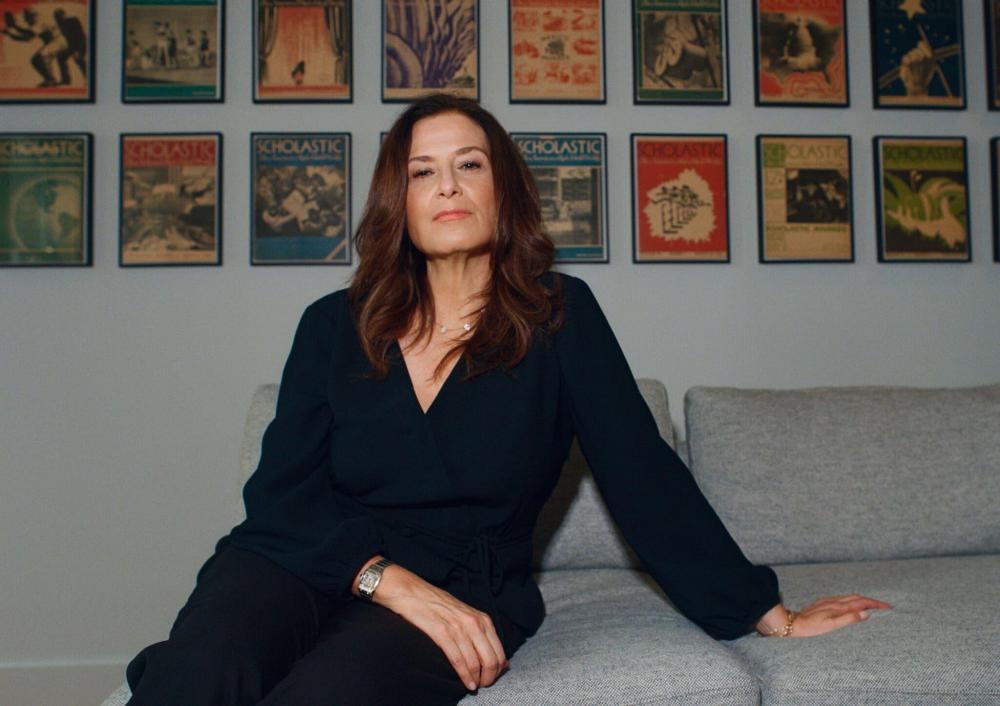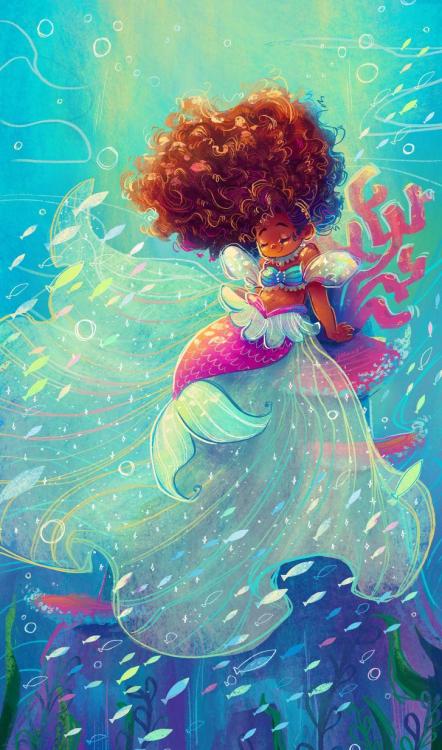Search the Community
Showing results for 'the woman king' in status updates posted by richardmurray.
-
symbol of the unconquered was on TCM, I already taped it years back but it involves the story of a yella/mulatto woman who is the sole inheritor of land. She goes west and is terrorized by a yella/mulatto man, who despises blacks. She runs into the forests and finds a black man who thinks she is white. They become friends and after a battle between the black and mulatto man, the black man ends up financially wealthy, surviving, the mulatto man and the kkk and he ends up marrying the woman he thought white who is yella.But I relaly wish a compare and contrast to passing can come out with this film.oh, if you ever see the rape scene in within our gates, i find it interesting how visual or combative it is compared to most rape scenes in hollywood. Rape in hollywood tends to always be very dominant for the rapists.
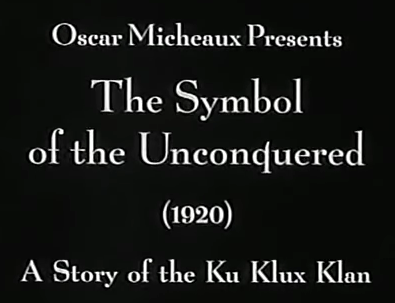
-

The Homesteader
Within our gates
The Brute
Symbol of the unconquered
ABOVE
The Gunsaulus mystery
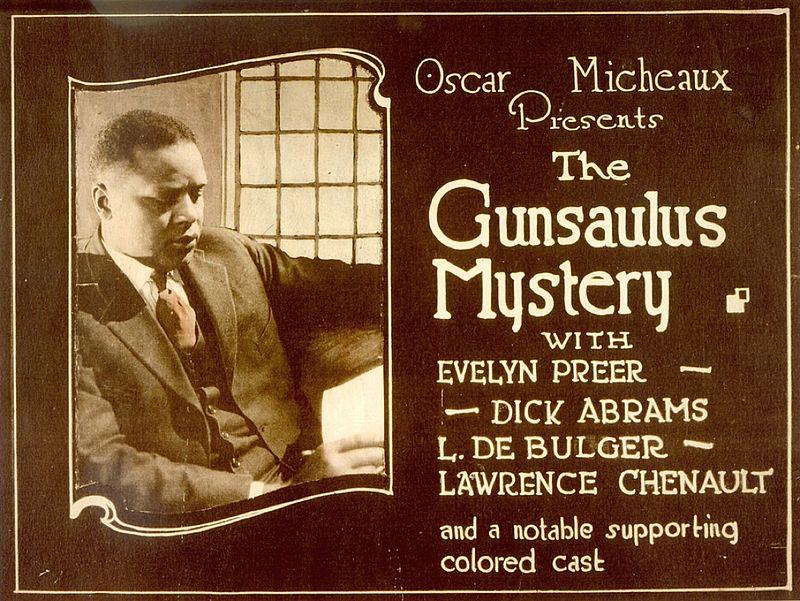
The Dungeon
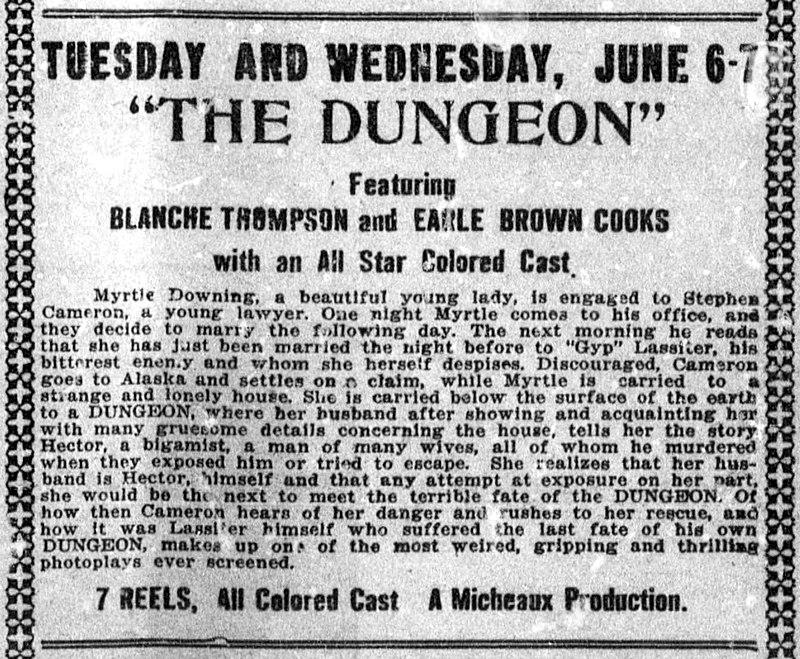
Body and SOul
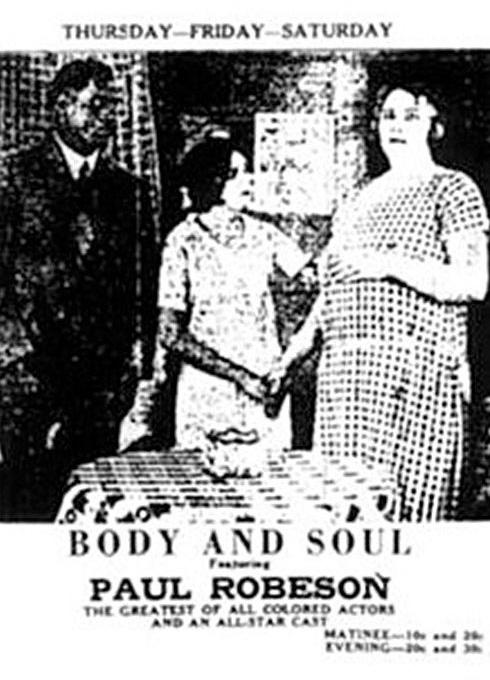
Wages of Sin
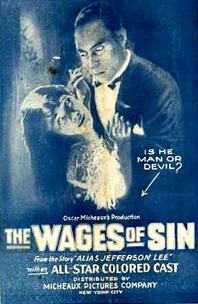
A daughter of the congo
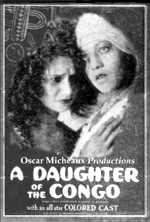
The Exile
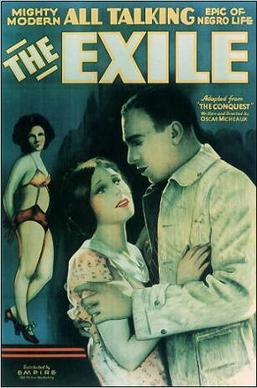
Veiled Aristocrats
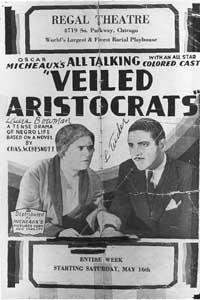
The girl from chicago
Murder in harlem
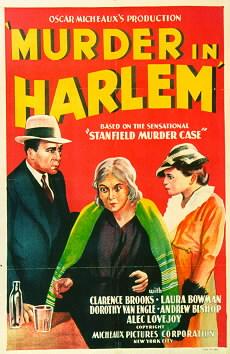
Underworld
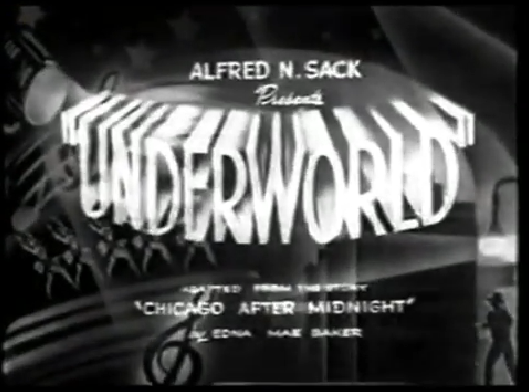
Gods step children
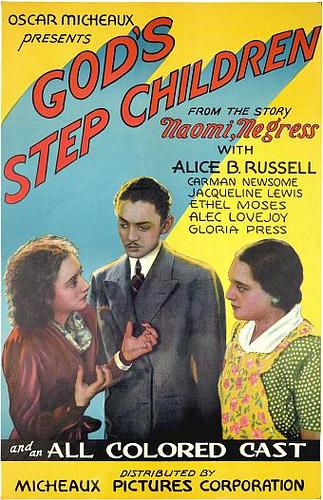
Swing
lying lips
The Betrayal
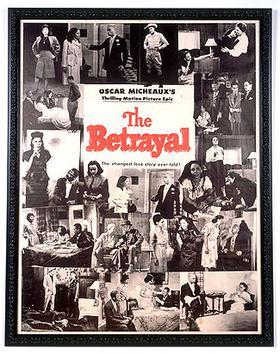
WORKS LIST
The Homesteader (1919)
Within Our Gates (1920)
The Brute (1920)
The Symbol of the Unconquered (1920)
The Gunsaulus Mystery (1921)
The Dungeon (1922)
The Hypocrite (1922)
Uncle Jasper's Will (1922)
The Virgin of the Seminole (1922)
Deceit (1923)
Birthright (1924)
A Son of Satan (1924)
Body and Soul (1925)
Marcus Garland (1925)
The Conjure Woman (1926)
The Devil's Disciple (1926)
The Spider's Web (1926)
The Millionaire (1927)
The Broken Violin (1928)
The House Behind the Cedars (1927)
Thirty Years Later (1928)
When Men Betray (1929)
The Wages of Sin (1929)
Easy Street (1930)
A Daughter of the Congo (1930)
Darktown Revue (1931)
The Exile (1931)
Veiled Aristocrats (1932)
Ten Minutes to Live (1932)
Black Magic (1932)
The Girl from Chicago (1932)
Ten Minutes to Kill (1933)
Phantom of Kenwood (1933)
Harlem After Midnight (1934)
Murder in Harlem (1935)
Temptation (1936)
Underworld (1937)
God's Step Children (1938)
Swing! (1938)
Lying Lips (1939)
Birthright (1939)
The Notorious Elinor Lee (1940)
The Betrayal (1948)
-
-

OverDrive: Record Number of Libraries Hit Million Digital Lend Mark
Leading library service provider OverDrive this week reported < https://company.overdrive.com/2022/01/12/over-120-library-systems-reach-1-million-digital-checkouts-in-2021/ > that a total of 121 public libraries and consortia across seven countries and 37 U.S. states surpassed one million digital lends in 2021. The number represents a significant jump from 2020, when 102 libraries hit the mark < https://company.overdrive.com/2021/01/12/over-100-public-libraries-exceed-1-million-digital-book-checkouts-in-2020/> , although more libraries (29) joined the million+ club in 2020.
According to OverDrive officials, 22 library systems made more than one million loans in 2021, with the Toronto Public Library leading the pack for a ninth consecutive year, while also achieving a new record for digital loans with nearly 10 million digital titles circulated.
The Los Angeles Public Library retained the #1 U.S. public library position for the third year in a row. In addition, for the first time, students from four K-12 school districts in 2021 accessed more than one million digital books with Sora, OverDrive’s student reading app.
In a blog post, OverDrive officials noted that libraries in 2021 continued to provide "a vital service to their communities during the COVID-19 pandemic," enabling library patrons "to safely seek and enjoy books from home." In addition, the growth in digital book clubs like Big Library Read "connected readers from across the globe" and promoted books and reading.
Last week, OverDrive reported that in 2021 digital lends surpassed the half a billion mark for the first time, a 16% jump over 2020.
The complete list of 2021 Million+ Circulation libraries can be found here<https://company.overdrive.com/2022/01/12/over-120-library-systems-reach-1-million-digital-checkouts-in-2021/> . The top circulating digital ebooks, audiobooks and magazines can be found here <https://company.overdrive.com/2022/01/05/public-libraries-and-schools-surpass-half-a-billion-digital-book-loans-in-2021/ > .
OverDrive's 2021 Top 10 library Systems in total digital circulations (e-books, audiobooks and magazines)
- Toronto Public Library
- National Library Board Singapore
- Los Angeles Public Library
- King County Library System (WA)
- New York Public Library
- Multnomah County Library (OR)
- Seattle Public Library
- Harris County Public Library (TX)
- Calgary Public Library (AB, Canada)
- Mid-Continent Public Library (MO)
OverDrive Library systems achieving Million+ Circulation status for digital books for the first time in 2021:
- Arkansas Digital Library Consortium
- eIndiana Digital Consortium
- Albuquerque Bernalillo County Library System
- Dayton Metro Library
- Fraser Valley Regional Library
- Nebraska OverDrive Libraries
- Winnipeg Public Library
- Western Australia Public Libraries
- Indiana Digital Download Center
- Fort Worth Public Library
- Jacksonville Public Library
- Brisbane City Council Library Services
- Okanagan Regional Library (Canada)
- Louisville Free Public Library
- Libraries NI (Northern Ireland)
- Baltimore County Public Library
- Kent District Library
- The Libraries Consortium (UK)
- Verbund Öffentlicher Bibliotheken (VÖBB) Berlin
- Houston Public Library
- Georgia Download Destination
- MELSA: Twin Cities Metro eLibrary
ARTICLE
-
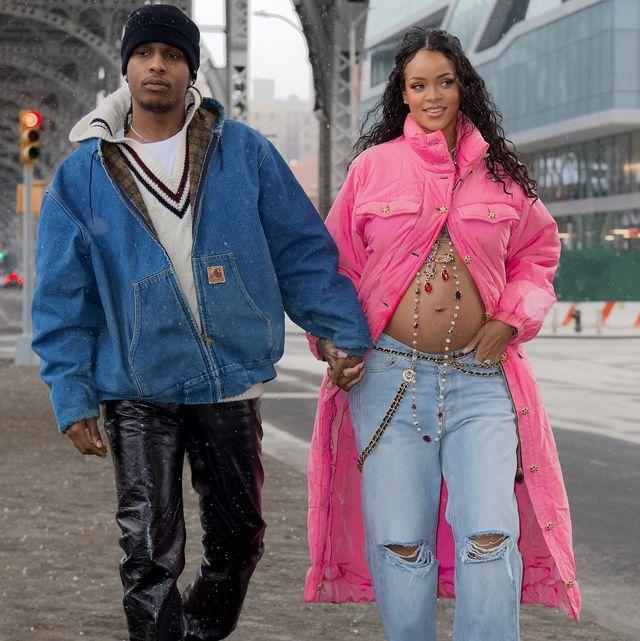
The issue is about the definition or usage of marriage as a communal construct. A subsidiary issue is the variance in said definition or usage in financial tiers in the black community.
What is the definition of marriage?
Some say it is when a man <defined as someone born with a penus> side a woman <defined as someone born with a vagina> decide to join eternally. Some say it is when a pastor as a christian church performs a ritual. Some say it is when a registration form from a government is issued. Some say it is natural law. Outside humanity, other children of earth have from ancient times lovingly or legitimately married in all forms: the entirety of life <eagles>, brave premortem <spiders> legendary multispousal <lions> proud single parenthood <tigers>, or more. I say marriage is as those involve want it to be. The imposition of the outsider to those in a marriage is the great flaw. to restate, if you wish to marry one way, why are others forced to use your method or be judged by your method.
The usage of marriage in non humans is ancient and like humans inconsistency exists. Non humans have many examples of mating outside species so that can be deemed no other than the variable forms in humans. Over time things can change. In the same way, many lions will not have a pride their entire life or lose a pride for the remaining years of their life. A human can be married in a christian fashion, and then end their life in common law.
SEquentially, the definition or usage of marriage doesn't have a standard, should not be viewed as something to gain concensus on or have a respectable form. It is for the marred to define or use, all others outside a marriage , if they want to do something positive, wish well, if they want to do something negative, judge or make determinants
Now, the last issue pertains well to Rihanna and that is marriage in financial tiers of the black community. History matters. For most of the post war between the states years in the usa, the financial aristocracy in the black community was over ninety percent male + christian. But today, in the year 2022, the financial aristocracy of the black community in the usa is not ninety percent male + christian. Said fiscal aristocracy has women, muslims, areligious, and yes... black people in the collage of independent or disconnected races called LGBTQ+. What does this mean for the fiscal wealthy? their attachments to the common marriage culture of black fiscal aristos dominant in the past is dead. And, in the usa, one other factor exists. The financial legality of divorce. In the usa divorce is a mess when one has money. It is a way for lawyers to make tons of money and a way for media to gain tons of clicks and should be avoided by anyone with money. But what is the only way to avoid that, while still having children, a marriage , comfortable home, is to not get married through the government or religion. And, to be blunt, absent a piece of paper from a government or clergy, if you live with someone, with the intimacy plus fights and possibly the children, that is called marriage. The good news is that using forms of marriage defined outside the christian community or government means breaking up is easier. And anyone who has been in relationships knows, breakups can happen.
So, I wish Rihanna side the baby, side her partner, all the best in the world.
FORUM QUERY
-

Someone in the internet said, Celebrities are not role models
In my mind the question is about guidance. ....If someone asks me, who have I most paid attention to in a reference to my life. It is my parents. BUT, some people are orphans. Some people have terrible parents. Some people have terrible school teachers. Some people live in terrible situations. The people one uses to help guide them in life can be anyone or anything. How many black people were guided by the Huxtable parents? And I have always professed a dislike for that show. I am not a fan of the cosby show. But, it doesn't mean that some black person somewhere can't be guided by the fictional huxtables. Some people are guided by Superman, a fictional character. As you read this, if you made it this far:) some kid is talking about Black panther or chadwick boseman. Do I feel the same way about boseman or black panther or superman? no, but that doesn't mean someone else can't ...This is why I always disagreed with charles barkley when he said that famously to himself. Anyone can guide another, be their role model. The most important thing is to never be a clone. Always try to be your unique self. This doesn't mean you can't do similar things. It means you don't have to.
-
-
Some one said that the issue of MAson Greenwood is the negative side of soccer. I suggest other or moreso using the following
IS it football or the larger humanity in general? Again, from financial corruption to assault, these are human issues. Women get raped by men everyday absent any penalty cause said men are not high profile players for manchester united in a country with the legal system or media of england. Firms all over the world cheat laborers or customers every day and escape penalty cause they are not entertainment publicly traded or scrutinized firms like sports teams or leagues or collectives. For me the greater issue is a young amn, well aware of media, was not frigtened of the penalty to his actions though that shaming/fear of loss/fear of imprisonment side exile is supposed to be the core weapon with METoo and Cosby and Weinstein or et cetera that is supposed to change male behavior. IF men from fiscally poor situations are still willing in places like england to lose millions of dollars with activities in their private life then the media as a tool to reduce abuse is not working
video 1
video 2
IN AMENDMENT
A side issue also exists, about the relationship of fiscally wealthy athletes to significant others; significant others being wives or girlfriends. I have been fortunate to know a few big time youth athletes in NYC. Females around them are usually, gushy. They functionally say, whatever you like. I think youth athletes need better guidance or management around their relationships. In the video they don't sound like a couple. They sound like two strangers who have an arrangement, a million dollar athlete who is mixed phenotypical race side a white woman who is meant for white owned media priase to him. My amendment point is to inevitability. If an athlete doesn't have a relationship of any value outside of media concerns, then is it odd that it devolves into abuse?

-
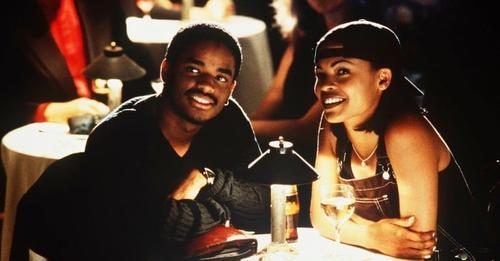
All were asked to the following article in the group Movies That Move We < https://www.youtube.com/channel/UCqYM90UgloorX_NbqqZRCfw >
Is there a film you would add to this list? Is there a film that you think shouldn’t be on this list? Name them and tell us why!
ARTICLE BEGIN
Five films that could never come out in 2022
OPINION: These movies aged like cottage cheese left out in the sun.
Dustin Seibert Jan 21, 2022
Being a Gen X-er/elder millennial all but demands that we scrutinize the media from our formative years.Unlike our Baby Boomer parents, who don’t really care as much about evolving social propriety, we tend to have an almost visceral response to the stuff we enjoyed in the 1980s and 1990s that didn’t age well. Presumably, it’s happened to us all: We watch the digital version of a film we used to wear out on VHS, or we stream a jam we used to own on cassette, only to clutch our teeth and let out an “Eeeeeeee.”
Below are several of those films that elicit such a response. In some cases, it’s one scene or plotline; in one case, you can just throw the entire film away. Note that this list is far from exhaustive and doesn’t include films in which the offensiveness is intended. (see: Blazing Saddles)Purple Rain (1984)
My favorite terrible movie of all time. I’ve seen Purple Rain more times than I can count over the last 38 years since my mama’s massive Prince fandom circumvented any concerns about her kid watching R-rated content.
But it was as an adult that I realized no one involved in the making of this film gave even a tincture of a damn about women. From The Kid’s interminable petulance (and ultimate violence) toward Apollonia (Apollonia Kotero) to tricking her into jumping topless in “Lake Minnetonka” to the marginalization of Wendy (Wendy Melvoin) and Lisa (Lisa Coleman) until it benefited The Kid, Albert Magnoli’s musical drama is steeped in Olympic-level misogyny.The worst scene, however, is when Morris (Morris Day) is confronted with one of his “sexies,” whom Jerome (Jerome Benton) picks up and tosses in a dumpster. Twitter would be on fire if, say, Bruno Mars made a movie pulling this s— in 2022.
The Best Man (1999)
Perhaps not as egregious as the other films on this list, but The Best Man delves into the Madonna-whore complex and what constitutes a “good” man, and, I think, inadvertently hoists up outmoded ideas.
The core conflict lies in a semi-fictional book that Harper (Taye Diggs) wrote based on his quartet of homies. Professional athlete and recovering man-whore Lance (Morris Chestnut) learns just before the wedding that fiancé Mia (Monica Calhoun) smashed Harper back in college while he was cheating on her left, right and sideways and is ready to blow the whole wedding to pieces over it. Because God forbid a woman demonstrates some sexual agency before she hangs it up.Shelby (Melissa De Sousa) is a one-note shrew of a girlfriend, and while the first film did well with Candy, the stripper with a heart of gold (Regina Hall) linking with the pusillanimous “good guy” Murch (Harold Perrineau), they throw the goodwill of that plotline out the window in the sequel, The Best Man Holiday, when Murch jeopardizes their marriage after receiving a video of Candy living her best sexual life before they met. Meanwhile, the capricious “bad guy” Quentin (Terrence Howard) is the only character living out their truth in either film.
The Best Man isn’t exactly unrealistic in its core depictions, but the original would light up social media if it were released in 2022.
Love Jones (1997)
Perhaps the most divisive film on this list (read: you might get cut amid debates), the entirety of Love Jones isn’t terribly problematic, and I appreciate the way it handles the complicated nuances of marriage via Isaiah Washington’s character.
But one sequence is a no-go: Larenz Tate’s Darius Lovehall shows up at the house of Nina Mosley (Nia Long) only because he jacked Nina’s address from a check she writes at the record store. And Darius’ girl, Sheila (Bernadette L. Clarke), who works at the record store, allows it.
The film presents it as a noble whatever-it-takes romantic gesture. But it screams “stalker,” and the 2022 version of Nina would’ve likely tased Darius in the nuts and called the cops.
Ace Ventura: When Nature Calls (1995)
Both of Jim Carrey’s star-making Ace Ventura films wouldn’t fly in the Age of Twitter—the first movie is rife with homophobia. But the sequel features a plotline involving a fictional indigenous African tribe whose customs are played for laughs in contrast to Ace’s western sensibilities. Any African stereotype you’d imagine white Westerners harbor is probably in the film.
Tommy Davidson portrays tribe member “Tiny Warrior,” speaking no actual words in lieu of animal noises meant to portray him as less human, more rabid rodent. That the film has the distinction of being America’s first exposure to the lovely Sophie Okonedo doesn’t absolve it of its sins.
Soul Man (1986)
The apotheosis of obsolete filmmaking, the most offensive thing about this film isn’t the fact that the protagonist Mark Watson (C. Thomas Howell) complains about tuition and fees at Harvard Law School totaling just over $10,000 (which will probably buy you one textbook and a sandwich in 2022).It’s that the entire conceit of the film involves a white man exploiting affirmative-action scholarship benefits by enrolling in and attending the school in blackface. Considering we’ve had a blackface reckoning in recent years that even caught up the beloved prime minister of Canada and that we’re forced to have the same god—m conversation with white folks every Halloween, Soul Man wouldn’t have made it past a first script draft in 2022.
Apparently, the film was even controversial when it dropped in the mid-1980s. But social media was decades away from being a thing, so it wasn’t around to prevent Soul Man from becoming a commercial success.
BONUS: Every black film that exploited LGBTQ+ people
It would probably blow the mind of your average 20-year-old to see how reckless Hollywood was with the LGBTQ+ community a couple of decades ago. Film and television were full of either latent or blatant examples of rank homophobia.A Low Down Dirty Shame (1994) featured Wayman (Corwin Hawkins), a gay Black man who existed only to be demeaned by Keenan Ivory Wayans’ Shame. The entire talky twist of The Crying Game (1992) involves the “reveal” of the deceitful trans woman.
Also, figure every film and television show involving a dude dressing up as a large, “unattractive” Black woman is predicated on some degree of transphobia. I’m looking at you, Wanda and Sheneneh.
ARTICLE END
A QUICK THOUGHT TO THE ARTICLE
It start with a lot of negative bias to those in certain age ranges, while supposes support to women from the physical violence or subjegation of men. It also has a large amount of cultural negative bias. Remember, race is any form of classification/rank/ordering from phenotype to gender to age to cultural beliefs to geography to releigion to religion to... you comprehend.
MY THOUGHTS TO EACH FILM IN THE LIST
Purple Rain is interesting. I remember hearing, a video recording of Prince, speak on a real event where a member of his team threw Vanity/Denise into his pool, and when I heard that story I thought of this scene. In the context of the article, it opens up alot in terms of the level of mysogyny.
But, the greater issue is misogyny. I saw a halftime show in which Purple Rain was chanted by many people who clearly were in the ambiance of the artist formerly known as Prince as well as their thoughts of loving ones whose spirits have flown, which the song alludes too.
Suggesting that this movie can not be seen, for a scene of abuse toward a woman from a man, is discounting how many people heard that song through the movie. Is it a wareranted sacrifice, I wonder?
As for Prince's characters mimicry of his father's abuse, that is actually the stories point. Prince's character was evolving in a film. Like bobba Fett from being the lone man killer that many of the characters fans demand or want to the killer who has gained from priceless experience a level of growth that in all living things, takes time.
The question is, does Prince's characters modulation not warrant to be seen? Is the argument from the philosophy the article writer espouses that the modern audience can not handle watching the change in a character, they can only accept witnessing the final result?I only saw a few scenes of the Best Man. I admit, I have little liking or patience to these black group film dramas. To those who enjoy that style of art it is entertaining but for me, I can't stomach it long as a genre.
I do know of the basic plot though. I don't see how the movie will be banned for portraying characters that share traits with many living people, in the same way, purple rain does to.
But that leads to another question, is this about presenting fantasy humans? I rephrase, is this movement of cancelling culture to only allow one cultural mold? if so, how can art be deemed in it free to express all culture?Love Jones scenario is like in the Best Man. Stalking is human, is it denied by not showing it in a film? and by not showing it is art improved.
I never saw any Ace Ventura film, so I admit, I can have it expunged as I am not a fan of jim carrey's comedy for the most part in general, yes I never saw Dumb and dumb series as well.
But to the theme, people who dislike homosexuals is not new nor will go away throughout all humanity. And, though few to no movies offer the reverse insult, many black people don't think positively of white communities.I want to speak about Rae Dawn Chong and James Earl Jones, when it comes to the film "Soul Man". Rae Dawn Chong contends the film isn't negatively biased. And this goes to the penultimate issue. In the end, who determines how another is meant to see the world/humanity/life?
This battle over what art should be viewed from the times when non white europeans were disallowed under white european domination or in the complex multiracial landscape of the usa, with each tribe trying to make one cultural perspective dominant, shows the dysfunction of the attempt. No culture ever truly dies, it at the most diminished becomes a private culture, but cultures never die.
Spike Lee and the impotent N.A.A.C.P. made this film a battleground but the issue of black owned film production or black people in the mechanics of the industry had no words from said people except one day it will happen or beg whites. Rae Dawn Chong was right, it was all talk. Talk for media points.A bonus, Al SHarpton who I do not usually concur too explained the idea behind the self righteous non violent movement, brilliantly. I paraphrase him. The non violent mantra is not merely about stopping those who utilize violence against you but not allowing yourself to utilize violence. This paraphrasing is the entire idea behind the bonus section in the article.
But, that is self righteous. To tell someone to hold themselves to a cultural view, regardless of anything is not only self rightoeus but goes back to the entire flaw of the cancel culture strategem or similar cultural blocks from the past from one community to another.
WHy don't black parents speak of Nat Turner or Jean Jacques Dessalines? what did either do wrong that does not warrant mention? they acted violently against those who were violent towards them?
Their actions have been cancelled by many black people long before cancel culture, but has that improved the collective lot of the black community, has it changed the lot of the white community ? the answer is no.NAME THE FILMS I WILL ADD? NAME THE FILMS THAT SHOULDN'T BE ON THIS LIST?
None and All. I will paraphrase a white jewish female writer: art can not be the battleground for culture.
I know she is right. Not seeing an action, does not delete an action. On the other hand, seeing an action does not embolden an action.
The whole concept of not showing certain arts based on the messages in them, is based on the idea that it will influence culture. But is that true?
I use two scenarios in human history as my proof they do not.
The Sars-Cov-2 era in NYC, specifically, when the city had a near total shut down of activity.
During that time in New York City, the advertised freethinking capitol in the United States of America, the levels of abuse from men to women, from adult male children to their senior female parents , rose by a huge percent. Was said increase of a certain activity based on a film? was said increase based on a music video or video game?
What does the first scenario prove? That misogyny's source is not media. When people were forced into their homes side their supposed loving ones they got more violent, not less. In particular men showed a increased dislike toward the women they live with, being forced to be next to them. IS media the source of the misogyny... or is it how we humans build or maintain relationships? The last point being, can not showing an action in media help to yield better relationships. I say no.The second scenario is media by people of color, people of color defined as non white europeans, in the age of white european imperial power. MEaning from the 1400s to the end of world war two < which began the first phase in the era of white statian imperial power, commonly called the cold war >
In the white european imperial power age people of color, made art that was often chastized, or burned, or blockaded from the view of people of color themselves, but they made it. This artwork didn't free people of color or stop white european power. But it was symbols of another culture than the one in power.
What does the second scenario prove? art doesn't change the alignments in humanity. It comes from the soul, and can inpsire humans, but can not deflect bullets, can not make laws. And it is bullets and laws that dictate the alignment of humans in humanity.Sequentially, I add no film to this and think all films should not be present in it. The list is dysfunctional.
I am not a NAzi, I have no desire to be white or german or aryan. But I think the night marches are beautiful from the nazis. The premise of waging cultural war through art is suggesting, the human individual or collective can be so moved by art that it dictates who they are or who they want to be. I oppose that viewpoint. I think history proves my opposition correct.Article U.R.L.
https://thegrio.com/2022/01/21/five-films-that-could-never-come-out-in-2022/
-
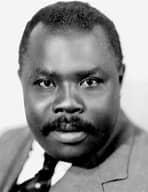
Happy Birthday to Marcus Garvey
Considering Marcus Garvey saw the caribbean or north america during his life as places that Black people needed to get away from, when you think of the struggles/challenges/unhappiness in Black Americans <Blacks or Negras
from Canada/USA/MExico/JAmaica/HAiti/Dominican Republic/Puerto Rico/Trinidad/Colombia/Venezuela/Brazil/Chile/Argentina or any other land in the American continent> in the American Continent, was MArcus Garvey proven right about the inefficacy of Black people living side Whites? Side the best efficacy of Blacks when they live mostly around Blacks?And today happens to be MArtin Luther King Jr Day
I quote MArtin Luther King Jr the third concernng voting rights legislation
""he would be greatly disappointed in the leadership in the Senate...that it's chosen so far not to get this done""
MLK the Third either is using very well constructed language or doesn't know his father. Disappointment today refers to an unfulfilled desire or want. Not, to remove from office. if MLK the third is suggesting MLK jr. will desire senators be disappointed. I 100% concur to that. MLK jr. always said in words how dysfunctional the class of elected officials are to the improvement of the populace in the U.S.A. If MLK the third is suggesting MLK jr. desired or thought the congress of the usa will act in the betterment of voting rights, Ihe doesn't know his father. MLK jr. wasn't an elected official for a simple reason. That path doesn't lead to the freedom leaded to tell the truth, to lead the people when what has to be said can't be a lie.Tomorrow is the anniversary of the battle of Hayes-Pond.
https://www.lumbeetribe.com/Happy birthday Sade
Nothing can come between us- For the distant lovers
The Sweetest Taboo- For the secret lovers
Love is stronger than Pride - For the long time lovers <NEar my favorite Sade song, though I don't have a clear favorite>
Smooth operator- For the players
Is it a crime- for the mistresses or ladies of the evening out thereAnd just so you know, Sade's early videos had an interwoven story about her and a guy if you notice:)
-
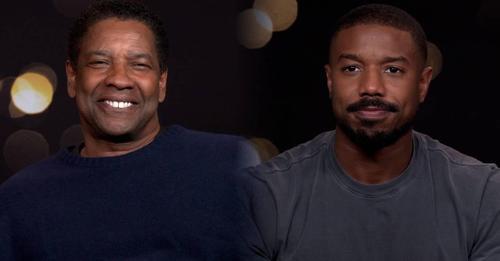
Before I read the article...hmmm, well, disney planned the avengers arc from the beginning of their acquisition of marvel. Now they are in the second arc stage so I am certain they have decided a multi media interwoven story between streaming/film/animated toons et cetera all involving kang the conqueror whose identity allows for kang to appear as a criminal or civilian in stories ranging from the highly technological to the magical to the streetcrime. KAng already set the groundwork in the loki miniseries. many kangs exist and they are in battle with themselves. but they each have different ways, different specific skills or interests or paths, some to dominate some not to, so this allows all types of marvel heroes to floruish. Characters like daredevil can floruish with kang as the center piece villain as opposed to a thanos who you can't imagine a street hero fighting. what does this mean for denzel washignton or michael b jordan's interest. Well, Jordan can sell to Disney a movie where denzel doesn't have to be in their main story line or prepared story line and they can fit him in a branch cause KAng comes in so many forms, outside of the various baddies in the universe. and that I think will fit denzel whose only franchise he has experience in is the equalizer which is based on him., and isn't a franchise in the volume of a marvel story arc and he may not want to be in something to grand. LEt alone if this activity from jordan is part of a conversation he had with Boseman about helping Boseman's mentor into the marvel universe that will not be commonly known. so, ... after I read the article... Denzel stated he is looking for a fatherly role, so supporting role is usually like that, not a black panther -esque role or any headliner. Also , nothing he needs to be tied into for a twenty year phase or something like that. Thus even if it is a leading fatherly role it isn't going to be heavily sequelled. So maybe a single role in three films. ... In conclusion, what roles? The cheapest answer is a film series, Wakandan Kings. Where Denzel plays a wakandan king of old, up in age, before t'chaka. That kind of film series can dive deeper into how wakanda related to the black community during enslavement by whites in the past. and can relate to kang as his activities are atemporal. While it also attaches to a well known franchise product. A riskier idea is to use lesser known characters. Maybe Jordan can be brother voodoo, and denzel can be papa jambo. IT is a lesser known character. IT is in the ghost rider zone of magical characters so it isn't in the high tech/outer space zone like avengers/guardians of the galaxy/black panther/spider man fame. THus the film has a space for potential as superhero films in the magical zone haven't fared as well. Blade started the modern superhero craze off, but blade, a vampire adventure, in many ways, like twilight, a vampire romance, has a more biology feel than spiritual feel. science or knowledge, not necessarilly superstition or curses. Maybe they can try denzel as an older night thrasher, and the film is the new warriors, I can't recall a film of teenage superheroes dominating. If Jordan is willing to be the financier it can work. they can bring in a bunch of young thespians as many of the new warriors haven't been in film yet, have a totally fresh story, and allow that fatherly role denzel wants. Disney will have their desires, jordan will have his ideas, denzel will have what he is willing to do. ... nobody will ask me:) haha
-
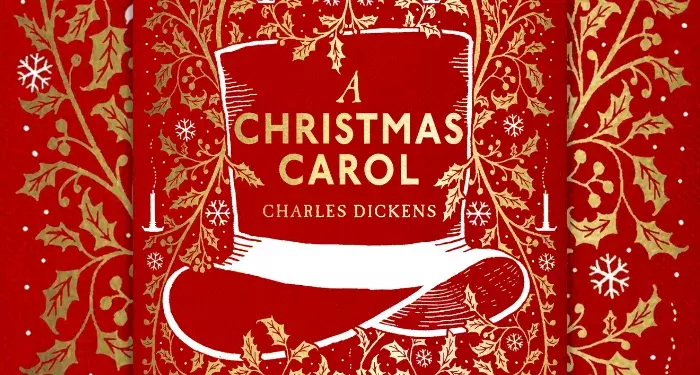
THE POLITICS OF A CHRISTMAS CAROL
By Walker Caplan
December 7, 2021, 11:18am
There is some debate over what, ultimately, the message is in A Christmas Carol by Charles Dickens. Is it pro-Christmas and Christianity? Anti-capitalism? Socialist? People have been arguing about the politics of A Christmas Carol since its publication in 1843, and will probably continue to do so for some time. Here’s what I’ve found — and please note that this will be a mix of facts and opinions. I’ll try to keep them straight.First, I started by actually reading this novel for the first time. I don’t know if anyone else has noticed this, but Charles Dickens was very good at writing! I must have highlighted a good 30% of the text (I read an ebook on my phone, but to be perfectly honest I highlight my paper books, too). Because I was already thinking about the politics (for lack of a better word) of the story, the moral if you will, I read it with an eye to authorial intent.
Now. I do not think that authorial intent is the be all, end all source of meaning in any piece of writing. What the reader takes from it is just as important! Sometimes more important! And of course, Dickens has been dead for some time and cannot exactly tell us what he meant to say by writing A Christmas Carol. Perhaps he merely wanted his penny a word*.
Dickens was not actually paid by the word, but by the installment of his serialized stories; it came out to about a farthing, or quarter of a (British) penny, per word. Adjusted for inflation, and assuming I have mathed correctly, an 1843 farthing is equivalent to something like £33 ($44 USD) today; I was paid 1¢ per word for my most recent story sale, 178 years later. Ebenezer Scrooge is implied to be the wealthiest man in his neighborhood; the wealthiest man in the world right now, Elon Musk, makes an estimated $16 million per hour. This is what we might call a wage gap.
Is it possible that A Christmas Carol is merely an ode to Dickens’s favorite holiday; that it is not intended as a morality story, but merely a moral one? I cannot say. I doubt it. But I believe he lays out at least part of his mission statement (via nephew Fred) early in the novel:
But I am sure I have always thought of Christmas time, when it has come round — apart from the veneration due to its sacred name and origin, if anything belonging to it can be apart from that — as a good time; a kind, forgiving, charitable, pleasant time; the only time I know of, in the long calendar of the year, when men and women seem by one consent to open their shut-up hearts freely, and to think of people below them as if they really were fellow-passengers to the grave, and not another race of creatures bound on other journeys.
Again at the end, when Scrooge wakes up and finds that he still has time to be the man he’s become on his journey, Dickens reminds us what story he is telling:
“I will live in the Past, the Present, and the Future!” Scrooge repeated, as he scrambled out of bed. “The Spirits of all Three shall strive within me. Oh Jacob Marley! Heaven, and the Christmas Time be praised for this! I say it on my knees, old Jacob; on my knees!”
He became as good a friend, as good a master, and as good a man, as the good old city knew, or any other good old city, town, or borough, in the good old world.
It seems to me that authorial intent is to show the folly of greed and selfishness by telling the story of a man remembering that he was once a person with feelings, seeing that his stifling of all such feeling in favor of greed has hurt the people around him, and wishing for more time with which to do good with what he has. Is this a Christian message? I suppose so, but not exclusively. Christmas (arguably the most Christian holiday, though I won’t argue with you over it) is the medium for the message, but it might just as well be something else.
Dickens certainly does not think the system — which boils down to capitalism, though it is different in several ways from modern capitalism — is a good one. He shows this especially blithely by having the Spirit of Christmas Present throw Scrooge’s own words in his face when he is concerned about the poor spirit children, Ignorance and Want, who cling to the Spirit:
“Have they no refuge or resource?” cried Scrooge. “Are there no prisons?” said the Spirit, turning on him for the last time with his own words. “Are there no workhouses?”
Having concluded that this was his intent as far as it was laid out in the text, I went looking for other opinions — perhaps even a few facts — and immediately found a Time article explaining that he had originally intended to write a pamphlet titled “An Appeal to the People of England on behalf of the Poor Man’s Child,” inspired by a report on child labor. Indeed, this report shows up in the text in the form of Bob Cratchit’s children Martha and Peter working to help support the family.
I also found an NPR piece calling A Christmas Carol unequivocally political. The author points out that in the same decade that he wrote A Christmas Carol, Dickens, living in the United States, was a vocal advocate for the abolition of slavery and for copyright laws. At a government level, what might the elimination of poverty — the real villain of A Christmas Carol — look like? Would it be charity, as represented by the prize turkey Scrooge sends to the Cratchits? Or would it be closing the wage gap, as represented by the raise he gives Bob the next morning?
Or is it simply a story about understanding one another’s humanity and showing friendship to each other?
ARTICLE
https://bookriot.com/the-politics-of-a-christmas-carol/
Enjoy, a white house carol
https://aalbc.com/tc/blogs/entry/133-a-white-house-carol/Sandra Newman is writing a feminist retelling of Nineteen Eighty-Four.
By Walker Caplan
December 7, 2021, 11:18am
As The Guardian reported this morning, George Orwell’s estate has approved Sandra Newman’s Julia, a retelling of Nineteen Eighty-Four from the perspective of Julia, the woman with whom Winston Smith has an illicit affair before they are captured and re-educated by their totalitarian government.According to The Guardian, Orwell’s estate said it had been “looking for some time” for an author to tell Julia’s story, and Newman “proved to be the perfect fit.” “Two of the unanswered questions in Orwell’s novel are what Julia sees in Winston, and how she has navigated her way through the party hierarchy,” said Bill Hamilton, the estate’s literary executor. “Sandra gets under the skin of Big Brother’s world in a completely convincing way which is both true to the original but also gives a dramatically different narrative to stand alongside the original.” According to Granta, Newman’s publisher, George Orwell’s son Richard Blair has also approved the project.
“It was the man from Records who began it, him all unknowing in his prim, grim way, his above-it-all oldthink way,” the novel opens. “He was the one Syme called ‘Old Misery.’ Comrade Smith was his right name, though ‘Comrade’ never suited him somehow. Of course, if you felt foolish calling someone ‘Comrade,’ far better not to speak to them at all.”
This project follows Newman’s upcoming novel The Men, which chronicles the events following the disappearance of every person on earth with a Y chromosome.
Article
https://lithub.com/sandra-newman-is-writing-a-feminist-retelling-of-nineteen-eighty-four/
What I like is the title of the article is false, this is not a retelling of nineteen eighty four, it is an addition to the telling, taking a character whose story is not fleshed out and fleshing it out
Cheugy, omicron and dogecoin among this year's most mispronounced words
William J. Kole · The Associated Press · Posted: Dec 07, 2021 12:14 PM ET | Last Updated: December 7, 2021
ARTICLE
https://www.cbc.ca/news/entertainment/2021-most-mispronounced-words-1.6276260
Glasgow (GLAHZ-go) ahhh for decades I didn't realize this:)REFERRING ARTICLE
https://kobowritinglife.com/2021/12/10/feminist-1984-a-nobel-winning-speech-and-cookbook-copyright-this-week-in-book-news/
-
May your spirit fly high Bell Hooks
hooks’s family said contributions and memorials can be made to the Christian County Literacy Council < https://www.paypal.com/donate/?hosted_button_id=CGQPNACBYNRZA > , which promotes reading for children, or the Museums of Historic Hopkinsville Christian County < https://www.paypal.com/donate/?hosted_button_id=CGQPNACBYNRZA> , where a biographical exhibit is on display.
ARTICLE
https://lithub.com/bell-hooks-generous-feminist-thinker-has-died-at-69/
What It’s Like to Have Your Book Banned by the School Board
BY MARY HARRIS
DEC 13, 20213:06 PM
Ashley Pérez used to teach English, down in Texas. Back in the early 2000s, that meant assigning the so-called classics—To Kill a Mockingbird, Of Mice and Men, Shakespeare. I asked her whether there were any books she wouldn’t teach. “I didn’t teach from my district literature textbook at all. Actually, we used them as doorstops,” she said. “I think that when literature is put in a textbook, it stops seeming alive.”Pérez writes young adult books now, but the way she said that last bit—the way she talks about literature being “alive”—I felt like I was back in the classroom with her, feeling the muted thrill of AP English. Because Pérez taught mostly Black and Latino kids, she thinks a lot about how to make books like hers welcoming for all kinds of readers. That means thinking about the hidden messages her stories can send.
But finding Pérez’s book in a school library has gotten a lot harder over the past year. That’s because, as careful as she is about being inclusive when she writes, some people say they feel left out of the narrative. And those people are showing up at school board meetings, demanding books like hers get pulled off the shelves. The American Library Association has called this year’s spike in book banning a “moral panic.” On Monday’s episode of What Next, I spoke with Pérez about what it’s like when your book is the one getting yanked out of libraries. Our conversation had been edited and condensed for clarity.
Mary Harris: Before we get to the backlash over your book, Out of Darkness, can you describe the work, in your own words?
Ashley Pérez: Out of Darkness is a love story. It’s an interracial romance between a Mexican American girl named Naomi, who comes to East Texas from San Antonio, and an African American boy named Washington—Wash is what he goes by. And it’s set against the backdrop of a historical event that occurred about 20 minutes from where I grew up, which is the New London School explosion. A lot of people have never even heard of this event, but in March of 1937, there was a natural gas leak in the school that, when it ignited, caused a huge explosion and the estimate of deaths is close to 300. They never knew for sure because all the school records were destroyed in the explosion.
Something else I noticed when I was reading about Out of Darkness is that I don’t think it’s an easy read. The New York Times review is written by a pretty grizzled reporter, and he wrote, “I actually had to close the book at one point to seek respite with Facebook. And puppies.”
Yeah, I remember that. I agree completely. And often when I hear from folks about the challenges of reading it, I can only respond with understanding, because I lived inside that story world. My heart is still buried in that book. But it is a challenging narrative. It’s a book for a student who is willing, wishing to engage with some very difficult histories. They’re histories of racial violence, histories of sexual abuse, histories of misogyny—those things are all there in the book. There is also a lot of love and family and playfulness and joy that’s happening in spite of those ever-intensifying pressures and constraints.
Pérez says when Out of Darkness was released back in 2015, she braced herself for some kind of pushback. But in the six years the book had been out, she never really got any. That is until she got word back in the spring that it had been put on a “pause” in a Central Texas school district. Then, over the summer, a video emerged. It shows a parent, Kara Belle, objecting to a passage in Pérez’s book. She’s speaking at a school board meeting just outside of Austin.
The words Belle’s quoting in the video do appear in Out of Darkness, but she is compressing an entire scene into a string of buzzwords. In this scene, Naomi, the main character, has walked into a new school. Her classmates recognize she’s the prettiest girl there. But they dismiss her because of her race. “A Mexican is a Mexican is a Mexican,” one girl says. And the boys? They daydream about sexually assaulting Naomi.
In September, I had the pleasure of seeing Kara Belle do a dramatic reading of a series of snippets from a chapter of Out of Darkness in a school board meeting in a video that went viral. It circulated with headlines like, “Texas Mom Loses It Over Anal Sex.” She was reacting to the inclusion of the word cornhole in a passage that was from the perspective of white high school students in this 1930s Texas school who were objecting to the arrival of a Mexican American student in their class and we were seeing how the young men in the class were viewing her as a sexual object, etc.
And we should contextualize the video. This mother goes to a school board meeting. She’s just yelling words at you, and you don’t really know what she’s talking about
Nor does she know what she’s talking about, right? Because she definitely hasn’t read the book.
When I reacted to this, my brain was just kind of scrambled because I was like, “What is going on here?” But those are your words. How did you react?
It’s so painful to hear something that you’ve worked incredibly hard to shape and to present in a way that is part of a literary whole—to see someone just yank those phrases as if any of the phrases that she’s using are things that I endorse. Several of the things are dialog, and the whole point of the passage is to show readers what the main character has to endure, what she has to navigate, the ideas and perspectives and limiting beliefs that are circulating in the school space where she has to spend eight hours of her day.
But this parent is not interested in the function of that passage in the work as a whole, nor is she interested in the work as a whole. There’s a reason she’s reading from something in the first 30 pages. These parents have been steered toward particular books by websites like No Left Turn or Moms for Liberty, so they’ve already decided that this book needs to go, and they’re just looking for what will be the most attention-grabbing. Particularly this individual knew, I think, that her presentation of the topic was going to grab attention. And that was the goal.
You pointed out too that what the district did here—because this woman did win, and the book got taken off the shelves—violated their own policy. Their policy was that they might review a book, but during that time, the book would remain on the shelves. That’s not what happened here.
No. And unfortunately, in these challenges that are happening all over the country, we’re seeing that over and over. Districts have these policies for a reason. If I, as an English teacher, was afraid that one parent complaining would mean that all the books I was teaching were going to be removed, then what am I going to teach? I’m not going to teach the thing that’s challenging and controversial in some way. I’m going to teach the most unobjectionable thing. And that’s kind of the goal here is to chill discourse and intimidate teachers and librarians. So it’s not even just about removing Out of Darkness from the library. It’s about creating an environment in which the librarian, the next time they order books, is going to think twice before choosing a book that engages with difficult histories in our nation or that engages with LGBTQ identities or that engages with teen sexuality in some way, even if that book is highly recommended in professional journals for school libraries.
Another thing that bothers Pérez is that while parents are often complaining to their schools about the sexual content of books like hers, that doesn’t seem to be their true objection to what she’s written. And she feels like that because she sees the books that aren’t getting banned.
I portray these events to challenge them, not to endorse them. Now, I often bring up the Bible because I grew up in a Bible church and I know that book really well, and I ask, “Do you think that the Bible is grooming young people to be sexually abused or gang raped or to engage in incest, because all of those situations occur in that text?” There’s just no denying the pattern of which books are being targeted. Even though the most common reason given is sexual content, it is not the sexual content that these books have in common. These books have in common centering characters or experiences from nonwhite, nondominant communities. If I could make a stack of all of the books in the high school library with sexual content and make a stack of those that feature straight white middle class characters, that’s going to be the highest stack. But those are not the books that are being challenged. And every middle school and high school in Texas, I’m willing to venture, has copies of the Bible. So this idea that this content is unacceptable in some books but fine in others is where I feel the actual intentions, and what kind of message is really being sent becomes clearer.
Part of the reason I wanted to talk to you was this statistic from the American Library Association, which found that these conversations about banning books in schools, they’re happening more often this year than last year. And it seems like a major spike. Given that statistic, I had this question for you: Do you think there are any books that should be banned from schools?
No, I think once a book is included in a school library, I trust the librarian’s judgment. Although there’s no comparison in terms of volume of challenges coming from folks who identify as conservative versus folks who identify as liberal, there have been a handful of cases where there was a call for the removal of To Kill a Mockingbird or Of Mice and Men. And I firmly believe that those books do belong in school libraries.
We should be clear that the reason why I think many educators have become uncomfortable with To Kill a Mockingbird is that it puts forward a white savior narrative.
Yeah, but discomfort is not danger. Teaching To Kill a Mockingbird in an unqualified way, without contextualizing those issues, is at this point irresponsible. But to teach it in ways that highlight and address those problems can be very powerful. And frankly, our literature is full of narratives that are problematic in many of these ways, and we don’t have to teach every one of those problematic narratives. But to find opportunities—even if it’s saying, OK, I’m teaching this other novel, but I’m going to step to the side and have my students read a chapter or two from To Kill a Mockingbird so we can talk about the difference. What’s different when African American characters are portrayed as having agency in their own lives versus when they are portrayed as secondary to the actions of a white character?
One parent in Houston who successfully petitioned her school into getting rid of a couple of books, not your book, explained herself by saying that she’s not into censoring. That’s not what this is about for her. She sees this more as we filter students internet access. We have keywords and trigger words. We know people shouldn’t have access to certain things as a minor. Why isn’t this the same process in school libraries? And I wonder what you’d say to that.
Well, what’s missing from that is attention to what is the material. It’s not a website, it’s a work of literature.
What’s the difference?
Whenever folks are talking about, “We have filters for these other things,” I want to say libraries have those filters, too. They come in the form of professional reviews, librarians referring to the recommendations of professional journals. They can’t read every book. That’s true. But there are resources that guide their selection. So there’s already been filtering. And in the case that they include something that has sexual content, like Out of Darkness, there is a track record of professional, trustworthy organizations evaluating that content and saying, “Yes, this is functioning as part of a literary whole.” It’s not there to glorify the situation. It is part of a story that complicates and challenges that.
It’s not the same as accidentally clicking on pornography.
Exactly, and to imply that it’s the same just reveals a lack of understanding about what it is to engage with literature.
The increasingly heated rhetoric I’m hearing right now when it comes to what kids can and can’t read, the entry point for a lot of parents—what seems to get them so upset—is sex. I wonder a little bit what you make of this sexual panic that is focused on books that deal with race. If you look at the Virginia governor’s race, there was a lot of talk about the book Beloved. Another book that has gotten a lot of attention in the past year was this book Lawn Boy. There’s a very similar school board meeting to the one that happened for your book, where a woman gets up and reads passages where it’s really frank conversations about gay sex, being a queer kid, being a fourth grader having sexual thoughts—stuff that’s tough and stuff that’s challenging.
It’s stuff that’s tough. It’s stuff that’s challenging. But it’s also real. And again, that’s where I come back to: Who am I serving? And I certainly care about parents and their perspective, but I am not writing to please parents. And also, you can’t create literature if you are trying not to offend people. Literature has always taken me to the far, far edge of what I can bear. I’m never comfortable when I’m writing because the things that are worth writing about challenge us.
Can you tell me how your life changed after this video went viral of a woman just dragging your work?
Yeah, my editor called it vandalism, and I appreciate that. The most significant effect has been that because this was so high-profile, my book, which is perhaps more widely read in Texas, since it’s set in Texas, all of a sudden is on the radar of basically every parent participating in this kind of orchestrated challenge. I have been sent lots of materials from private Facebook groups in these communities where my book’s been challenged, removed, or banned. And this is going to sound cynical, but the reason so much of this focus is on sexual content is because folks know they can’t challenge something with a focus on the race of characters or the sexual orientation of characters.
What do they say in the Facebook groups that makes you think that?
I’m going to paraphrase this, but basically, “When you challenge these books, focus on the sexual content, do not use the words gay sex, do not use LGBTQ, do not talk about race. Books can’t be removed for those reasons.” It’s that clear. So while some parents may be there objecting because of the sexual content, there’s clearly an agenda that’s about other issues. It’s about reclaiming this idea that somehow education has been taken away from conservative communities, or that their stories are no longer central. It is really that explicit.
I’ve heard from many school leaders that they’re overwhelmed and exhausted with public information requests. Parents are showing up, even though they’ve passed the number of requests you can make for free, who have no issue running up bills of $500, $600 because they have funding.
And they were requesting like emails or communications?
Purchase orders from the library, beginning of year surveys to check if teachers ask students for preferred pronouns, things like that. They are basically looking for signs that the way things are being conducted in the school somehow violates the principles that they think should govern education.One thing I always want to say really clearly and strongly, especially when being asked about my experiences with this situation, is that what we as authors are going through when these books are removed is a fraction of the struggle and suffering that is occurring for the librarians and the teachers and, above all, the students in these communities. Because trying to learn, trying to teach in an environment of such hostility and opposition is unfathomably difficult. And I hear from teachers and librarians all the time who are at their limit.
The thing I wish I could say to middle-of-the-road parents—parents who might hear a video like that and think, Oh, I don’t think anal sex is the best thing for middle school. Maybe that parent has a point. I would want them to understand that what is happening is that teachers’ and librarians’ and schools’ resources are being pulled away from teaching students and being sucked into these manufactured controversies.
ARTICLE
https://slate.com/news-and-politics/2021/12/texas-school-board-banned-books-ashley-perez-out-of-darkness.html?utm_source=Sailthru&utm_medium=email&utm_campaign=Lit Hub Daily: December 15%2C 2021&utm_term=lithub_master_listPRH and S&S call the lawsuit against them “legally, factually, and economically wrong.”
By Walker Caplan
...
Besides wanting the merger to happen, Penguin Random House has another incentive to fight the DOJ’s lawsuit: according to the New York Times, if the merger doesn’t go through, Penguin Random House will have to pay ViacomCBS, Simon & Schuster’s seller, a termination fee of about $200 million.
...
ARTICLE
https://lithub.com/prh-and-ss-call-the-lawsuit-against-them-legally-factually-and-economically-wrong/REFERRAL ARTICLE
https://kobowritinglife.com/2021/12/17/a-misguided-lawsuit-barack-obamas-faves-and-the-loss-of-two-literary-giants-this-week-in-book-news/
-
FROM : MAd SKillz < skillzva on facebook>
I may get crucified for this but its how I feel.(just jokes)
 I grew up in a similar situation...no father tho. And I NEVER IN MY LIFE seen a woman with this many morals. EVERRR BRUH. Being that poor and having those kind of morals never made sense to me. Black Jesus brought yall good luck? You made James take him down. James finds 5k? You make him give it back. They wanted yo ass to star in a PAID Vita Brite commercial? You didnt do it cuz it had alcohol in it. James going to the pool hall cuz yall bout to get evicted? You made him put the pool stick back. They pass JJ up to the 12th grade? You made him go back to the 11th. Preacher wanted to take James on the road to do the "Im healed" scam? You made him stay home. The projects were not the villain of this show. FLORIDA WAS. YOU WERE THE BIGGEST HATER ON TELEVISION.
I grew up in a similar situation...no father tho. And I NEVER IN MY LIFE seen a woman with this many morals. EVERRR BRUH. Being that poor and having those kind of morals never made sense to me. Black Jesus brought yall good luck? You made James take him down. James finds 5k? You make him give it back. They wanted yo ass to star in a PAID Vita Brite commercial? You didnt do it cuz it had alcohol in it. James going to the pool hall cuz yall bout to get evicted? You made him put the pool stick back. They pass JJ up to the 12th grade? You made him go back to the 11th. Preacher wanted to take James on the road to do the "Im healed" scam? You made him stay home. The projects were not the villain of this show. FLORIDA WAS. YOU WERE THE BIGGEST HATER ON TELEVISION. 

 check my story for the proof.
check my story for the proof.
MY REPLY
Where do I begin?
Lets start with his points and he made many.
I will iterate the points
POINTS
1) he grew up similar to the scenario in good times, and he mentioned no father specificially.
2) he never knew a woman with this many morals
3) being fiscal bottom and having high morals never made sense.
4) the projects, the white system, wasn't the criminal, Florida, the specific moralled black matriarch wasMY THOUGHTS TO EAH POINT
1)If I ask the average person in the usa today, who are the richest people in the usa as a group, what is their phenotype. They will say, most fiscally rich people are white, a label referring to their average skin tone , which does merge into the mulatto range, ala passing. The next question is, how do they get their money? Most will say the truth, inheritance, their forebears had money and gave it to them.
Now, if I ask most people, why are black people poor? Most will say, Black people don't know how to play the game. Black people are lazy. Black people need to improve themselves, learn to strive more. Few will say the simple truth, Black people have no one to inherit money from. The next question is why? And this goes to history.
One of the problems with the black community in media, is that our poverty is rarely comprehended as simple as it needs to be. Two cultural institutions in the usa didn't allow for black inheritance. First was slavery, second was jim crow. Slavery predates the usa, which is another truth I find most in the usa don't seem to comprehend. Slavery is from the european colonial era but it survived in tact , unblemished, after the creation of the articles of confederation or the constitution, thus why most free blacks fought against the usa in its earliest wars. Slavery ended with the thirteeth amendments and the destruction of the southern states, and the desire of the northern states to eliminate the financial competition with a slave based society utilizing industrial tools. But after a very short respite <solid seven years > called reconstruction commonly, Jim Crow was born from the dead carcass of slavery and continued the goal of denying inheritance to black people.
That is why the black community in the usa is fiscally poor. Jim crow ended , in my assessment, in the 1980s. So from before the usa was founded till the 1980s, Black people were in majority <yes, exceptions always exist in life but they are not stnadards or pathways or rules> denied inheritance. The projects themselves were never meant for black people. If you know the history of the projects, they were meant for poor working whites to have a place in an urban setting to refind their fiscal bearings, starting in the 1950s. White flight from big cities and continual movement to big cities by non whites made the white city governments change course and offer projects as dens for people not white mostly to congregate in the city. A eternal source of cheap labor and fiscally poor people. Whereas projects in the 1950s had storefronts, the latter ones did away with that and just became housing.
Did you know that when the vietnam war ended, vietnam had hundreds of thousands of orphans from usa soldiers and vietnamese women living in orphanges? now, why does this matter?
It connects to slavery/jim crow, and relationships between child bearers. Slavery plus Jim crow denied inheritance for black people. The primary tool was violence. but a secondary tool was separation. To be blunt, during slavery black people were not married in majority. Black women were property of the master. the master, to use crude language, tapped that ass , more than the property of the white man she called her black husband. So since the community of the usa is from the european imperial era, for most of the history of the usa or what preceded it , black children have not had either parent. I am not saying that to reject anyone's emotions, but to bring a historical reality to black people's narrative around child raising which rarely admits reality about our community in the usa. Jim crow is what rebuilt the south and spurred the usa industrial machine. That is another historical fact that goes absent. Jim crow was powered by black men in prison on false charges. These men were given sentences meant to be for life, for the purpose of rebuilding the usa. The 13th amendment says slavery can still exist in prisons so white people in power ushered black people, specifically black men, into prisons.
I was raised by both my parents who are still together and loving, through many challenges. And my family is upper poor, not the fiscal bottom.
But, white or black filmmakers push two narratives, for different reasons that are lies. The narratives are: black people's poverty is a modern thing not from a lack of inheritance over centuries, the black family unit has its members to blame for its history of fissure.
Good times, written by whites, uniquely has a loving black father, who died because of Amos disagreement with the studios. But his death fits the truth, the environment for the black community which has been engineered by whites over centuries has successfully hindered black people, is not meant to, has hindered. And, the black people who traveled to the north to escape being burned alive and possibly find work, found fewer fires up north but less fiscal potential. But whether in the south or north the reason is a lack of inheritance, not lazyness or anything else.2)+3) I must combine. His comments prove how many black people either do not know the history of black people in the usa or have a false interpretation of it.
The Club Women was a group of black christian women who believed that if black people educated themselves and showed utmost manner that will overcome white violence. The sit-ins was based on a similar principle. This was black people saying I will go into a story where a sign outside says for people like me to NOT ENTER. The result is obvious, you enter a place where you are told by its owners for you not to come, you get your ass beat. Hell, most people know about romeo or juliet but what do you think the capulets and the mantagues were like? What is funny about the usa and the sit-ins and the club women is how , in human history it is so common for groups of people to ban others. In northern ireland they have many places where catholics can't go and protestants can't go.
So, When he says he didn't know any woman with this many morals, I will not deny his statement. But it proves he didn't know enough older black people who could tell him of many who did such things. Remember, non violence isn't merely about the white man not being violent to blacks but it is about blacks not being violent ourselves even when faced with reason to be.
Most black leaders, including MLK jr, never prescribed to such extreme views of non violence personally. but, the black community in the usa from the time of reconstruction has a long history of it.
Now is, Florida a caricature? of course she is. BUT, she reflects the truth of the black community from the end of the war between the states to the 1970s. I know that some black people who were land owners told relatives to not fight whites and sent them away. I do not concur to the idea of fighting wars with morals, but that was and is a residual from slavery and jim crow.
And that comes to his dysfunctional allusion. Black people were not merely poor during slavery or jim crow, we were impotent. Fiscal poverty is one thing, but when one is fiscally poor PLUS under constant assault. It changes ow you view things. Again, I can tell you I know of black people off line who were alive in decades past and admitted that every black women in their town was raped by whites. every black woman.
When your community is under assault , and under watch for any action that is deemed illegal /criminal/amoral, it can teach you to desire morality not for god but for self. if you can't stop your wife from being raped, your child from being spat at, yourself, from being put in prison, and you don't have arms, you don't have resources, you don't have a community enabled, then following a higher moral code can be deciphered as your only defense.
Again, Florida is a caricature, but what she represents is truth. Any one's Esther Rolle's character's age knew that the system will destroy any black person it finds doing a simple crime. My great proof of that is the rockefeller laws, initiated in the 1970s. In NYC, white men could sell cocaine in mountainfulls and get lesser to no sentence that black men selling a bag of marijuana. That is why Florida feared crime, feared illegality. IT wasn't cause she feared or opposed money. But what if? What if the white man knew? what if the white man discovered? Just remember, the chicago police department went into fred hamptons house and murdered him, absent any crime. In that kind of environment, you are so keen to risk?
Some, yes, but Florida is not that big a caricature. She is, but not that big a caricature based on the black community in the usa.
The problem with black or white filmmakers is black goodness is touted as religious, spiritual, never historical, never based on life.
The goodness isn't about christianity , it is about a fear of the system treating you unfairly, which it will, which it proved over centuries it will do and is still doing. Movies from all sort of directorso or writers make is religious, and that is the flaw. Florida is scared. She has been scared her entire life and will die scared.
In the great Daughters of the Dust, the gullah live in those spare island lands, surrounded by bayou and absent any infrastructure, but will rather that than live exposed to whites. That is fear. The people of Tracadie in nova scotia, survived cause they lived so far away , in a wilderness, they were free from assault, whether they committed an illegality or not, and that is why Florida feared in her urban project surrounded by whites, in the heart of the white kingdom.
His point is to invalidate her fears by suggesting her morality is based on morals, but her morals are based on fear.4)LAstly, his final thought. The criminal wasn't the white system , it is the black moralled matriarch.
Of course he is wrong, he admitted he is joking. But, I will defend his hypothesis with a little fortune telling. Slavery plus Jim crow denied black inheritance. But, after jim crow, I will call it the rainbow era, Black people in the usa have acquired and started to inherit fiscal wealth. Florida's fears was suitable in the days where black people were denied by white people the ability to inherit fiscal wealth. But, when one is wealthy, one must take risks, and though most risks fail in fiscal capitalism , some will succeed.
The black community isn't potent. My proof is simple. Name me one city with a financial growth in the usa, where over half the cities fiscal quality/industry is owned by blacks? I will help you, you can't find one. So, Black people are not in some place of suitability yet. But, it will happen eventually. That is why whites blockaded black inheritance. when one inherits, money is different.
Back to movies, hollywood hasn't found a way to approvingly display multiracial wealth. We all know in modernity, black millionaires or billionaires exists in the usa. But, hollywood usually places fiscally wealthy black characters in fiscally white characters roles. The problem storytelling wise is simple. Being rich is being rich but in different communities, the collective path to being rich matters. The black fiscal elite, live as gluttonous as the white, but they have subtle variances and hollywood or independent film, has not found a set of films to visualize that difference. In the show atlanta, the black rich are ugly, but mirrors of white rich and that is not exactly true. As F Scott fitzgerald said, the wicked rich, I concur to that, but they have variances. My proof is fiscally rich white jews in film. in films, fiscally rich white jews are as corrupt as other fiscally rich white people but their is anuance to their design which shows, the other.
Films have yet , black or white made, to solidify the other aspect to the black fiscal rich which is clear to see, but not such a great selling pointIN CONCLUSION, history is important, but also challenging. The challenge in history is when it forces you to look at scenarios you can't control or undo that are not merely negative, but have a lasting communal impact. The nonviolent community , based in the black church, near 170 years ago, rejected violence, rejected a mass movement away, rejected a foscused movement in the usa. The nonviolent movement had three main strategies. No violence against whites, a focus on individual liberty to black people wherever we live, a responsibility on black individuals or the black community to maintain the nonviolent stance while moving ever upward in the fiscal or governmental halls in the usa.
Today is the result of that plan in the usa. it didn't fit all black people, it wans't meant to. It had casualty, though all black paths were and will have casualties. But, in the same way, Florida is chided while Mrs. Huxtable is beloved, the modern reality has meant a cultural precipice has been reached that isn't defined by either woman or their larger media spaces. Neither is an enemy, but neither reflect a black community that can finally , in peace, inherit.-

Was Florida Evans the criminal? is the question.
Lets take a look at her crimes. All her crimes he listed involve her hesitation at opportunities from luck,system, illegality.
Luck is black jesus/finding 5,000/Vita brite commercial
System is JJ passed up a grade
James Pool stick/Preacher scamFrom Slavery which predates the founding of the usa and was unchanged through the founding, thus why most free blacks fought against the usa, to the end of Jim crow, which in my view ended in the 1980s as a holistic system, but started immediately after slavery ended, Black people were denied the ability to inherit/have stable homes. Remember, the murdering and imprisonment of blacks, who mostly lived in southern states, started while the war between the states was finalizing. And before said war was slavery, where most black people were property not free. The black woman who calls that property her husband is in error. That black man who calls that property his wife is in error. The child in her belly is not their's. Their child is property of the person who owns them.
Now you can say, Rich, you just said Jim crow ended in the 1980s. Goodtimes is 1970s, can't Florida Evans let all the past go. Florida evans is a caricature, any extremity in any human character is a caricature, but her problem isn't morality or living in the past, her problem exists in most black people. Said problem is fear.
Florida is afraid. Black people today, who live better than black people ever before, as a community, in the usa, don't seem to realize, most black people in the usa or the european colonies that preceded it were terrorized. Slavery or Jim crow are mostly remembered as fiscal scenarios. One is absent money, but these scenarios also came with an equal share of terror. You cut the foot off a slave to terrorize, you whip a female slaves skin off to terrorize, you burn black towns or communities down to the ground to terrorize. You place false and exorbitant charges on a suspect to terrorize. The goal is to make the person you are terrorizing fear everything.
This is what the poster miss about Florida Evans. Just remember, Fred Hampton was murdered in his home no different than medgar evers was murdered outside his.
The christian god gives you luck, but what about the devil. You find 5,000 but what happens if someone comes to claim it. You are in a commercial but what if your hungry neighbors find out or your fellow church members see you in an alcoholic commercial. JJ is passed up a grade, but what has he truly merited. James is gambling but what happens if he wins and someone kills him for it.
Fear. And Black fear in the usa is well founded. Yes, Florida is a caricature. But, the history of the black community in the usa is full of reasons to fear, especially to those of her age.
Sequentially, why Mrs. Huxtable is beloved far more than Florida Evans. MRS Huxtable is afraid to. Why do you think she acts like the governess to everybody? She is no different than Florida in fears or matriarchal tactics. The difference is her husband was fortunate/lucky to become a doctor at a time when whites were willing to pay black doctors. Remember, black doctors have been in the usa since the 1800s, but getting paid fairly, fairly, was a modern inviention circa the 1980s.
Florida is a woman of her times, reflecting, even as a caricature, the warranted fears of a nonviolent community in majority denied: income/inheritance.
Black people for the first multiple of decades in the history of the usa or the european colonies that preceded it can now inherit. With that inheritance and all that it implies comes a lofty perch that it is easy to look down on those far less fortunate. Even if you are merely joking.
-
-
Someone ask me: what will the novels of the future be if all the protagonists do everything online? You wouldn‘t have the romcoms with Julia Roberts meeting Hugh Grant in a bookshop…
He originally asked me but i feel the question is good for all to answer
My answer is in sections: epistlary fiction/subordinate characters/the modern readership-viewership-listenership
Epistles are merely letters and online communication, whether people want to admit it or not are letters. Human beings are accustomed to epistlary work. Many segments of the bible are letters. Books of letters , linear or alinear temporally, were a fiscally profitable genre in various times in the white european literary industry<said industry includes the usa or australia>. Historically, precedence exist for financial viability of or customer desire to epistlary fiction.
Modern customers of fiction love the visual,they love visual description, pseudo realism, fantastical visions. At the core of epistle is the letters are not bound to give all details, to explain all events. Writers can choose that path of creation but it isn't mandatory. Sequentially, why many writers use letters as tools for a specific purpose in a non epistlary work. But, if all the protagonists and I add antagonists use letters, then for action , descriptive action, you need subordinate characters. not supporting but subordinate. to be blunt, you need robots, you need characters that can not act alone or are extensions of the protagonists or antagonists but individual enough to have a physical identity one can write about. In parallel, think of a doctor that performs surgery remotely. The doctor actions are in the same way as writing a letter, the machine that translates the doctors motions/words/typing into action on the patient, while it does not act absent impetus from the doctor is had individual elements. its programming/its energy/its maintenance/ its environment all can have a positive or negative influence on itself that can lead to scenarios many will call drama or definitely action. But they are not protagonists or antagonists.
Customers matter, they always have and always will. Art has no bounds. Many people today apply their opinions as rules of art but the truth is, art has no ruleset to it. In parallel, making money with art is where all the judgements have value and where many artists or readers , do not speak enough of their purpose in their judgements. to that end, the modern readership , as the questioner stated individually had problems with epistlary fiction. But the reason is complex.... Most human beings are not online nor do they have money. But to the humans who have money, many are online, many are multilingual. The buyers are used to reading epistlaries every day, tweet streams, facebook streams, instagram comment streams are all epistlaries. not written by a steven king or jk rowling, but a sequence of unknown strangers, but the readers are used to reading epistlaries full of drama.
I conclude with a question, based on what was said, what kind of work epistlary can bridge what the customers do every day, with fictional characters? In the film world you already see movies that use message screens in the films. Like any style, when it doesn't have many financially successful examples, the judgement passion in literary or art circles is silent cause they have nothing to base a judgement on. So, it is an open multilog financially, like writing modern epistles with online messages.
Now, what say you all?
- Show previous comments 1 more
-

A REPLY
Have you seen the recent movie Zola? It's based on a bunch of Tweets and it's a masterpiece
...it's not for the faint of heart but I enjoyed the style, story-telling and acting -

A REPLY
'Live Free or Die Hard', no lV of the Die Hard movies, was supposedly about cyberterrorism, at least for a little while, until the computer screens got so boring that the 'Analogue cop in a digital world' started to explode into the most ridiculous special effects, e.g. shooting down a helicopter with a jumping car…
...
The opposite extreme is Daniel Glattauer's delightful 'Gut gegen Nordwind', a totally epistetolary novel that consists exclusively of the email exchange between two unknown people (a love story). Enjoyable, but it felt like a one-off gimmick. But I thought the same when the first 'rap' song appeared …
My Response
when a book doesn't have a financially viable genre isn't allowable to be called a gimmick? -

A REPLY
I fear I didn‘t understand your last paragraph. Could you explain this again? First paragraph: yes, the issue of letters within writing/films is endlessly fascinating to me too, but is it to everyone? Second: here it seems that the future of mankind - or at least literature - desperately rests on the hope that somewhere, somehow there are still a few renegade people who actually do other things apart from tapping or swiping on their phones. Things with theatrical slapstick potential.
My Response
I can restate the last paragraph, succintly. Customer taste matter more than art when it comes to fiscal profitability of art. Not the quality of art, but the fiscal profitability of art.
-
I saw this posted somewhere online
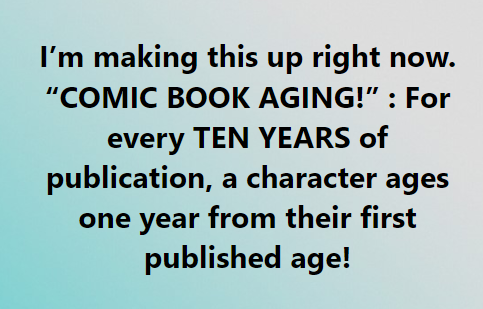
THE FOLLOWING IS MY REPLY
To me, the issue you raise is powerful. To be blunt, many in the industry, many fans, many et cetera oppose aging of characters in general and want ways to avoid aging, ala alternate worlds and dimension jumps because a central idea exists in comics in the usa. A comic imprint losses money if the title character is aged out. I will restate, taking away characters who were written long lived naturally, like kal-el or diana or thor or silver silver or similar in the us comic book world, can the comic book imprints of aquaman/batman/flash/greenlantern/shazzam/green arrow/zatana...spider man/wolverine/iron man/daredevil/hulk/captainamerica/luke cage survive if the characters naturally moved on and were replaced by this thing called time? I say yes. The problem is, most in the industry, most of their imbalanced research, many fans <can't say most> say no. Thus, the age problem in the usa comics industry. I argue, when we talk about characters changing in comics, that the absence of them changing naturally with time aids in their inability to be changed well culturally. I will end with Milestone. One of my biggest sadnesses is that Milestone chose that same model when they restarted their comics. I wish I had power or control to demand they continue those comics from when they stopped. Why not an older icon and rocket, with rocket who is human, not an older woman with a mature child. maybe she has already passed the mantle of rocket to her child. I think that is an interesting story, of an extraterrestrial , convinced to be a superhero by a human and continuing to be a superhero with the child of the human who convinced him , who he helped raise. I like that idea. No need for a reboot. What about a Hardware who is still working for alva industries but is a shareholder publicly, while privately still the superhero. What does that mean when one achieves a level of freedom as an engineer, which si what I felt hardware was about , but is not older and settled in? who are his villains? what about a family? What about an older static? living on his own? maybe a family? does he leave dakota? static was a teenager, does he leave dakota? What about hsi relationship to being a superhero? when I think of child actors and how many do not end up actors, I think that rejection of ones childhood job is alive with static. Shadow Cabinet is obvious? what intelligence agency ever stays the same over time. If anything the question is, where are the original members and how did they survive or get killed.? Xombi is much like the hulk in one way. How can a human man, with a condition that grants a sort of immortality survive as an outcast in humanity, forever, at some point, this human must be healed or this human must exist as an outcast on their own accord in the truest sense. And that connect to the natural immortals i mentioned above, at some point, they should , I have to leave? I never forget being told by a reader to a story I wrote, that superheroes don't want to give up superheroing? And I still think that is a false mentality. Just cause one has powers means they are infatuated with being a superhero. I think that is a lie, and explains the problem in superheroes is readership views towards what it means to be a superhero.. continuing... Kobalt, like any vigilante ala the punisher, suffers the most storywise. how does a street hero not get killed over time more quickly? i am not suggesting someone else can not pick up the mantle, but kobalt, punisher, come on, they haven't been injured very badly at least, in their entire tenure as a street hero? come one. And lastly, my favorite Milestone imprint, blood syndicate... What about blood syndicate! as an older gang ? the city has allowed this section of the city to be operated by them eternally. the bureaucracy of a city and their illegal existence alone demands a very lively existence that can't just be sunday mornings with the super villains for decades. so, time matters. I oppose faux immortality in my stories and I reject it when I appreciate others.
-

A REPLY
Well, it would kind of be the same as creating a new character. Sure the name is the same, and sometimes the costumes are the same, but the person inside isn't and that makes a difference.
At this point, with everything that has been going on in comics that fans don't like change. They don't like for new people to take up the mantel (except for maybe a story or two), or to see them age, or whatever.
I said before the issue stems from all this talk about realism. If not for that people wouldn't even think about characters aging.
People reading comics in the Golden Age or even the Silver Age didn't think much about characters aging, there was just a vague timeline, people stayed the same age for years and the only people who even commented on (as far as I ever heard) were non-comic book readers who would make fun of it.
To me, as long as you don't comment on it or make a thing out of it I don't think anyone really cares that much.MY RESPONSE TO THE REPLY
I see your comment as true, but I will adjust some wording from my own interpretation of the issues you bring up, I don't iterate symmetrically to you....1) I know people who read comics. Most comic book readers in the golden or silver age didn't care, but not all. Yes, majority rules, I didn't say you were wrong, but, how many are in the minority matters. and if it 30% not 10% then... 2) most people are making a realism argument but I am not. i am making a writing argument. I think its poor writing. most of the most beloved superheroes can have 90% of their comics eliminated and the remaining 10% can cover every story they ever had. I use la morte d'arthur as an example. Most people know the basic frame story in the death of arthur. But what is the difference between arthur and superman? Arthur has no new stories. people merely recreate what is already been written. Superman keeps getting unnecessary additions. Just recreate. Superman is in a never ending, never changing story for the most part. I Argue it is poor writing and I argue that readers are poor. I believe in this very group I have spoken on my view that readers are poor at reading. If la morte d'arthur was a usa comic book, mordred would be fighting arthur now, in another new attempt, to do the exact same thing 80 years ago. That is bad writing for me. Just reissue the comics, or just have artist redraw the comics, but keep the story, no need for anything new. 3) I want to restate, I said in my original comment the financial reality. So, i am not refuting marker research. I am not refuting <this is symmetrical to your paragraphs> a) comic book buyers reactions b) comic book buyers revenue response , though I think readers or buyers in the usa are poor at it c)the majority arguments made , though they are not mine d) the majority of readers or buyers ways in the past, though not all in the past were like that e) most modern comic book fans don't care , though I and others in minority do care for varying reasons 4) this brings me back to milestone... and I think our dialogs have reached the same place before in this group where, milestone as a more recent company, in all earnest , has acted inappropriately in mirorring dc or marvel. and I say this comprhending DC still has large say or ownership over milestone so it isn't technically that free from dc but back to my point, I don't see why. Milestone is modern. why? I can comprehend, DC or Marvel all started by whites, lets be honest, all started in the 1940s or 1950s but why Milestone. Started by Blacks. Started in the 1990s. why? and I am not asking you to answer that question. I will love to get Cowan's answer. That is who I want to answer the question and I already asked through polite channels and got no reply. ... And as someone who submitted to the milestone initiative, I realize, Milestone at the moment is looking for artists who go alongside your thinking or the thinking of your realists, but I am not in line with either of you and Milestone isn't considering that angle at all. so , stings as milestone is my favorite usa comic label.
... And as someone who submitted to the milestone initiative, I realize, Milestone at the moment is looking for artists who go alongside your thinking or the thinking of your realists, but I am not in line with either of you and Milestone isn't considering that angle at all. so , stings as milestone is my favorite usa comic label.
-

A REPLY
Another thing about comics, and I heard one of the youtube comic book channels point this out as well, is they're not really built for people to read them their entire lives.
They tend to repeat themselves because they're more intended for people to get into them when they're young than age out after about 10 years or so (a recent video put the point most people ' outgrow' comics at around 16).
That was then, now you have people who are into them their whole lives and either stay the whole time or dip in and out (which is what I did).
In some ways, I would say they're like American soap operas that are built to run in circles, endlessly (or where since most of them, as far as I can tell, have been canceled at this point).
Let's say that DC decided way back in the Golden Age to let Superman, Batman, and Wonder Woman age normally (I don't think Wonder Woman was immortal at that time and I don't think anyone had pulled 'Kryptonains age differently than humans' card at that point). What then?
Do they just die and are then forgotten and replaced by new characters or do the pass on the mantel and do we get Dick Grayson as the second Batman, another am*zon come in and become a new Wonder Woman and, I guess, a new Kryptonian shows up to become a new Superman?
Is that what we're talking about here? Either Superman, Batman, and Wonder Woman live and die and the world moves on or do we get new ones, every decade or so?
Is that really sustainable? Would DC and Marve even exist today under these conditions?MY RESPONSE TO THE REPLY
Chris McWilliams to answer your questions. and I answer this first one knowing it is a pure thought experiment, in no way will the owners of dc allow it, but 1>Superman at age 150 to me has white hair and wrinkes, and is still stronger, faster, higher jumper than any human. Yes, not as high /strong/fast as at 1940 but in no way human. That slow decline I think is interesting. Don't you? It isn't real, there is no superman and I wrote years ago, my technologically advanced alien race doesn't all die except for a baby sent into space by a lone couple while others ignore their dying sun, they terraform a planet for many children. To be blunt, my kryptonians did it a while back:) but anyway, to what was written, throughout that 20-150 life span, his relationship with louis will change, cause it isn't just kal-el who ages but louis too, the aging isn't just for these main characters. Does louis want kids? is not that a decent question to ask for any female character? She can say no, but some kind of discussion, right? I would eliminate all the aliens criminals and even though I love braniac, that includes braniac:) and keep superman with the originals criminal set. And in tandem, don't they ever try to band together and kill everybody around superman, the reporter lois lane, her friend, clark kent, the photographer, jimmy olsen, perry white and his newspaper, Superman is a legend but can he really save the daily planet if the criminals act together? and then the government. I can see the government framing superman and forcing him on the run, ala bruce banner. At some point clark kent has to die or retire, not superman , but clark kent. I think many stories abound. To Wonder Woman, in the same way as kal -el, diana is made of clay from the gods, I say she never gets old, isn't immortal , meaning she can be killed but not by time. I think it make senses with her golden age story. And with the tech plus magic of the amazons in the golden age, I can see it with her, so she will not look physiclaly different over time, but I think her consciousness need to evolve. meaning, Diana left the island to learn about man plus protect man right? i think diana is a world traveler, literally. in her comic, we can watch her travel with steve all over the world, literally. Humanity isn't the usa, it isn't white europeans, it is all humans and since she is from that island, she covets the earth too. and I think that love of nonhumans, as well can be mephasized. so that is where I will take her. On that journey it begins with steve but eventually steve may die or leave, maybe she becomes pregnant, she doesn't have to but a man and a woman traveling, never get it on, come on:) Fantasy can become stupidity at times. I am not suggesting reality again, I don't even comprehend why diana want to leave thymyscera honestly, but... And lastly is the batman, I think batman needed to be the same way robin is. Robin has versions but so should had batman. let's be honest. I can see Bruce's batman older being accompanied by nightwing/grayson , gordon/batwoman , drake/robin, I can see Grayson being batman with drake as robin. I can see gordon as batman with jason todd, My idea is, Bruce is the original batman but as he gets older and batman's job descript grows, managing the justice league or et cetera to do all this he will need the others in the clan to done the bat, and instead of it being clayface, why not grayson? ...2> so bruce wayne eventually dies but he dies replacing alfred in alfred's role, but readers of the comic will have been engineered since the 1950s to expect different members of the bat family to done the cap and cowl and nightwing, like I can see , Grayson as batman- Todd as Nightwing and Drake as Robin, do you see where I am going? Each batman can have unique elements, so for example, only bruce's batman talks with commissioner gordon or goes to the justice league headquaters as batman. I think women will love the gordon batman episodes. it opens up batman to be a rite of passage, each bat family member gets their own batman guise, and if a male junior gets a robin guise, female junior batgirl, and then batwoman, but everybody gets to be batman. if you start of this process in the 1950s i think readers will accept it. not now of course. and to the question of succession, one day grayson takes bruce's place as the new alfred, you know. This allows for easier continuity up to batman beyond in all earnest. for wonder woman, based on her original creation, i say she doesn't age once mature, she is made of clay:) formed by the gods, come on magic right, it doesn't mean she can't be killed, but time doesn't whither her. So she si wonder woman all the way but, I would bring her away from this american thing, i think wonder woman is a global citizen. which i think is interesting storytelling. imagine wonder woman in the soviet union, comprehending the way of the life in the soviet union in a positive way, and doing the same in the usa. she is trying to help all of humanity, not support one part of it. Now after 60 publication years of traveling all over the world, a complex relationship with steve rogers, she can say she has learned all she can from all in humanity and saved many but now what to do, I have no clear idea but the next writer can take the helm. As for kal -el I said he can be 150 and still a superman. I do think him plus lois after 60 years of comics, might finally have a kid? moreover, based on my 150, like diana, he would still be powerful in the year 2021, but is lois still here? is jimmy olsen still a photographer:) One of the problems with age in comics is everyone focuses on the main character and forgets everyone else. PErry white is still running the dialy planet:) 3> is that sustainable, would dc or marvel exist today? unfortunately, I can't say yes or no. The reality is, industrial history can be statistically assessed, but assessing what would had happened if industries had different managements in history is impossible to do. It is all false assumption cause how can any of us know what human beings will do unless we have raw truth. Computer simulations are by default a lie when it comes to assuming industrial replies by consumers in the past. so I can't speak for MArvel or DC. MErely theory:) and , even for Milestone, I can't assume the response if they had restarted the way I wanted. my argument is, and I know dc has influence regardless, restarting similar to the way I suggested was clearly worth attempting over a near century old comic book firm like dc or marvel.
-
-
PASSING BY MOVIES THAT MOVE WE
MY THOUGHTS
2:14 Many people I know have said the topic of passing is heavy but I don't see it that way. Yella people pass cause they are phenotypically closer to white. The real issue for me is the one drop rules great dysfunction in the usa. The one drop rule favored white european purity.
6:56 great personal story from Nicole Candace about passing in her bloodline. The key issue is just because one isn't white does that mean one isn't black.
9:02 Carol Channing was not black. I don't care what anybody say. She was Yella. It is time for Black folk to use Yella as an official label.
11:43 Yes, Harlem at a time was somewhat of a bubble, not completely. But Colored women, Black or Yella, still try to protect colored children by not admitting the culture they live in.
13:24 In the same way Irene's husband and IRene have disagreement about their association to the usa, has that difference of opinion on the USA between black women side men still exists? even if it isn't advertised.
17:00 good point in how these two women deemed black are both unhappy in either situation.
19:25 well, I think an open secret in the room is how yella women have a long history of being abused, by black men who want a trophy wife and white men who want a woman to abuse or own.
21:59 all our names, funny , Nicole
22:44 My Little Nig by THomas G Key in 1845 Signal of Liberty poetry section < https://aadl.org/signalofliberty/SL_18450303-p1-02 > Here is "My Little Nig" reused in the book Clotel by William Wells Brown < https://etc.usf.edu/lit2go/161/clotel-or-the-presidents-daughter/2842/chapter-11-the-parson-poet/ > Signal of america was an abolitionists newspaper < https://aadl.org/papers/signalofliberty>
25:15 PReach Nike, Negras are not blancos but the idea of being latino in the usa is predominated by what are called mestizos in latin america.
27:13 Nicole, I will love to know what black women think on yella/white skinned women choosing the blackest black man so to speak?
28:29 The director, geniously or in the spirit of larson, realized the two women are in a trap as individuals and they both are dealing with realizing their uncomforts. The story destroys the tragic mullattess
35:22 Clare is releaved when she is amongst black people cause she has spent years worried at every gesture, while Irene has yearned for more than her comfortable life.
38:43 interesting, the director maintained that query. I offer a question. Imagine being two women , who are phenotypically white, as children, alone among a midst of black children. It will pull both female children together. My point is, when people are pushed into proximity to each other against all others, it creates a closeness to each other that may not lead to intercourse but comes as praise or adoration.
43:39 Interesting Nicole, I think Larson was trying to get away from the tragic mulatto , but you are saying the director pushed the tragic position. HAHA! PAssing 2!:) I know the title for PAssing 3, it is PAssing 3 the grands Great point by Nicole
Great point by Nicole
45:30 Like the book, the movie ends on the cliffhanger , like a who dunnit detective novel, all we need now is the stuff dreams are made of:)
46:40 I agree, a sense of total failure, exists, but it isn't merely the lies, it is the bad marriages, it is the country. Two men who don't know their wives good enough. Children who don't know their parents. Look at the RHinelander trial, that LArson admitted knowing about < https://en.wikipedia.org/wiki/Rhinelander_v._Rhinelander >
49:20 Nicole makes an interesting point, to out Clare is to out himself , specifically, to injure his social standing. Some white men will not associate with clare's husband if they found out.
51:24 Yes, there was a time where the black community in nyc in particular had the wealth and had a cultural desire to be considered upstanding. Most black people lived in the southern states and were dirt poor. Well, that harlem is gone, and the architecture of harlem was meant for whites, rich whites, so harlem itself in some way was passing. The polo grounds was meant to play polo, not baseball, like the ny giants or ny yankees that played there. So, harlem's architecture was meant to be for wealthy whites. but black people got harlem cause rich whites went away.
55:36 good point about the reality in another time Nicole, it works for all things. Ala the people of Hong Kong and their britishness.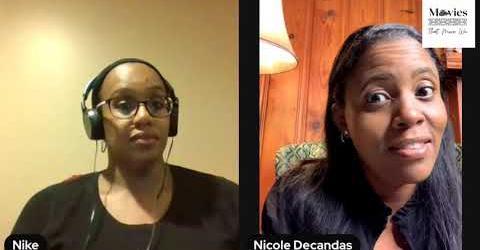
Video Link- if embedding fails
https://www.youtube.com/watch?v=y0DnBaH5KDoIN AMENDMENT
CLotel more information : https://en.wikipedia.org/wiki/ClotelA lasting thought was about the label Karen. Do we need to use the label Irene for Yella black women that like to be uppity? OR use the label Clare for Yella black women that want to be blackity black?
-
Audiobook Stylistics: Comparing print and audio in the bestselling segment
Karl Berglund
,
Mats Dahllöf
November 02, 2021 EDTThe Study is from Sweden, but consider it for your region
Hollywood Loves Books
By Kate Dwyer 13 Days Ago
When author and illustrator Ariella Elovic drafted her book proposal for Cheeky: A Head-to-Toe Memoir, she never considered that the graphic memoir about body acceptance might one day become a television series. Growing up, her biggest insecurities were her visibly hairy arms, sideburns, unibrow, and upper lip hair; as a young adult, she created an illustrated alter-ego to help her process all of the ways her body was changing. When she signed with literary agent Meredith Kaffel Simonoff of DeFiore and Company, the agent offhandedly noted that she could see the world of Cheeky expanding on a streaming service such as Netflix or Hulu. After the book was finished, Simonoff’s coagent at United Talent Agency (UTA)—one of the four major Hollywood talent agencies—presented Cheeky at a general meeting where talent agents brainstorm creative partnerships between their clients. Throughout the summer of 2020, Elovic, 30, took the resulting one-on-one phone calls with actors, directors, and showrunners looking for a partner with whom she clicked creatively. She hit it off with an established comedian. “It basically felt like what we would create together would be a really strong combination of our two brains,” Elovic says. Though the partnership has yet to be announced, the pair are working with a production company on a “mini-pilot” to pitch to streaming services. A few weeks ago, the author quit her day job as a project manager at Paperless Post. It’s a big commitment, she says, but “I figured at some point, I [would] have to quit my job to help prep material. I’m going to want to give it my all.”
Cheeky was not a bestseller, celebrity book club pick, or runaway hit at launch. It received positive reviews and a decent amount of attention. Its Hollywood prospects are not noteworthy because of being extraordinary, but rather, increasingly ordinary. In 2020 alone, streamers produced 532 new television shows. Their appetite for content is fueling a golden age of adaptations, according to Michelle Weiner, head of the books department at Creative Artists Agency (CAA), which includes the book-to-film department and the publishing group. “The volume of film and television being produced has increased dramatically,” she says. “A book is one of the greatest story bibles”—what TV producers use to track details about characters, plots, and more—“that a television show or a film can have. It has a fully-fleshed-out plot, highly sophisticated characters, and, often, a very inventive world.” As a result, there is more opportunity than ever for authors who wish to adapt their work for the big (or small, or even pocket-sized) screen.
Every year, the streaming industry becomes even hungrier for intellectual property to adapt. “What Hollywood needs is more and more content because of all the outlets,” says Knopf editor-at-large Peter Gethers, who previously ran Penguin Random House’s book-to-film department and now co-produces projects for Universal Studios, STUDIOCANAL, and Food Network. But in many cases, before studios buy the rights to a book, they “need some form of validation, so they know something is good.”
Of course, production companies, like readers, can make judgements via reviews and The New York Times bestseller list. But increasingly, producers look to celebrity book clubs to help figure out which titles could become blockbuster streaming hits. CAA—an agency that represents not only authors but also screenwriters, directors, and some of Hollywood’s top actors—has worked with clients such as Reese Witherspoon and Emma Roberts to create those book clubs. Weiner calls the platforms “a win for every aspect of our business,” because the featured authors increase their audience sizes, while their projects become attractive to film and television buyers who then feel like they’re investing in a project that has a larger, built-in viewership. (It sounds like a circular system because it is.)
Some of these high-profile book clubs shepherd projects directly into the adaptation pipeline. Reese’s Book Club produces adaptations through Witherspoon’s production company, Hello Sunshine, and Roberts’ book club, Belletrist, is working on Victoria Schwab's teen vampire drama “First Kill” for Netflix, among other projects. “The exact role the author plays differs in every situation, but we always do our very best to make sure the original storyteller feels gratified by the way his or her material is adapted,” says Lauren Neustadter, Hello Sunshine’s President of Film and Television. “In the case of Little Fires Everywhere, Celeste Ng handed off the adaptation to Liz Tigelaar and our writers room and cheered them on. In the case of From Scratch, Tembi Locke was intimately involved in the adaptation and her sister Attica was the showrunner.”
Obviously, authors make money if their book is optioned, but sometimes factors—like celebrity hype, great reviews, and a place on the bestseller list—combine to create the kind of deal literary dreams are made of. Take Brit Bennett’s number-one New York Times bestseller The Vanishing Half, which landed a splashy seven-figure deal at HBO, with Bennett attached as executive producer. The Vanishing Half rights were the subject of a heated 17-way auction. Other high-profile examples of authors signing onto their adaptations include Lisa Taddeo producing her number-one New York Times-bestselling nonfiction debut Three Women for Showtime (following a hot bidding war for the rights) and Taffy Brodesser-Akner spearheading the FX adaptation of her novel Fleishman Is in Trouble (also following a 10-way scramble to own the rights).
Taddeo, who is mid-production on Three Women and in development on a handful of other projects, admits to experiencing a steep learning curve when she first started working in Hollywood. There, the author is just one more voice in the room. “Writing books is a solitary enterprise, and then an editor is involved, but the experience is much more author-focused,” she says. “On a TV show, there are many pluses to having lots of brains on a project, but there is also a dissipation that happens. Sometimes the force of a single voice can be weakened by the ideas of many. Other times the opposite is true. It depends, project to project, partners to partners. There are just so many more variables.”
The latest novel of Alexandra Kleeman, a critically-acclaimed author and professor at The New School, Something New Under the Sun, follows an author who flies out to L.A. to work on the adaptation of his novel, and then gets relegated to the role of production assistant. This would never happen in real life. “I don’t know if I would say that authors have more control, but I would say that authors seem to be more visible in Hollywood,” she says. Featuring authors so prominently in the media, Kleeman believes, “offers a guarantee of artistic merit and announces the prestige quality of the project.” Influencer book clubs and brand collaborations like Warby Parker x The Paris Review deal in this same brand cross-pollination. In exchange for a brand giving the author a wider platform, an author gives the brand a deeper sense of authenticity or cultural cachet. “I’m like an artisanal baker or jam maker or something, making stories in the slowest possible way,” Kleeman says.
Weiner says well-regarded partners, like the famed comedian Elovic is working with, are key for authors looking to make the jump to screenwriting. “There are a great number of established screenwriters who are incredibly open to mentoring authors to adapt their work,” she says. (To clarify, those experienced screenwriters are also paid by the studio.) “We've seen authors who start as producers on their first book, and then learn and absorb as much as they possibly can, and then end up writing and producing on their next [book’s adaptation].”
For every author like Taddeo who had the clout to maintain significant creative control over her project, there are many other authors who aren’t as lucky. “Screenwriters are not given the same amount of respect by the studios and by the directors that book authors are given by their editors and publishers,” says Gethers. “So they ultimately, in screenwriting, have much less control, except for very few who have a good amount of control, but there are very few of them.”
Still, authors are scrambling to join the supposed gold rush of TV or film writing. “I’ve heard friends in the writer community say, ‘I think I wrote that book because I thought it would make a good movie,’” says Kleeman. “I see Hollywood picking up options on things that wouldn’t seem very Hollywood before, things that are difficult to film,” she says. “It’s become very common to talk to another writer about [the status of] their project in Hollywood as a catching-up sort of question, when it used to feel rarer and more exceptional.”
As for the money? “The TV-writing money can be really fantastic,” says Will Watkins, Literary Agent at ICM Partners. “Because if you get a show on the air, you can make well in excess of a million dollars. You can even make that if you don't get a show on the air, if it's the right deal.” Writing a pilot script can garner “at least” six figures, he says, and options for even not-so-competitive titles could run in the low-to-middle five digits. The upside for those lucky authors is that this “can kind of liberate them from having to do all these other things [podcasting, teaching, copywriting] to make ends meet, depending on what's going on on the publishing side.”
Midlist authors (i.e. authors whose books get less of a marketing push, therefore garnering fewer readers) are not necessarily set for life when their film rights sell. Sure, the pay is “better than books,” says Maris Kreizman, publishing-world insider and host of “The Maris Review” podcast, but “it’s not that every person who writes for TV is wealthy and set up and doesn’t have to worry about money.” Most adaptations in development don’t even get made. Of the ones that do, it’s ever harder for a show to become a hit, explains Kreizman. “How many of them get made and get lost? It’s almost as if Netflix is inventing a midlist again. There are so many shows, not all of them can rise to the top.”
Authors have historically tended to also be teachers or professors and vice versa. Many writers share their tradecraft in Masters of Fine Arts (MFA) programs, which boomed in the late 20th Century and are still going strong. “I don't think [exclusively] writing books ever was a way to make a living,” says Gethers. “I mean, in the old days, authors were doctors and lawyers and had real jobs. Writing was rarely considered a full-time job. The difference is now, there are so many other opportunities for authors to write.” Many full-time writers operate similarly to startup founders or gig workers, writing across podcasts, journalism, books, even video games, to make ends meet as professional storytellers. Before Taddeo went into production on Three Women, every workday was a balancing act. She started her career as a freelance writer juggling articles for a range of New York publications, and sold a novel that was never published. Flash forward to June 2021, and her day might include a book interview for her novel Animal, a Zoom meeting with a director for the Three Women TV series, another Zoom meeting with a producer for Animal (which is in development for TV), and an interview with a reporter for a women’s glossy magazine. Then, she might sit down to write an article, since she’s still a practicing journalist. “It feels like I never have my feet in one area,” she says.Sweetbitter author Stephanie Danler, who co-wrote and executive-produced two seasons of a Starz series based on her book, is now a prolific screenwriter and co-founder of Desierto Alto, the wine store and specialty shop near Joshua Tree, California. “Scripts are very creative and I feel lucky that I get to write as a day job,” she says. “I’m still thinking about characters and momentum and pacing and story and plot.” In her experience, a novel can take years of mostly solo work, while a script is more collaborative (with actors, directors, other writers). “I think being an author is sacred in a way,” she says; it’s more of a vocation.
The Hollywood book boom comes at a time when corporate consolidation in the publishing world threatens authors’ abilities to profit off their work, making TV writing a necessary second career. “Penguin and Random House merged, and if they end up acquiring Simon & Schuster as well, there will be one behemoth where you can publish and three other smaller places and many other micro places that absolutely can’t compete,” says Kreizman. Say the merger does go through and a book doesn’t find a home at Penguin-Random House-Simon & Schuster, an author would automatically be looking at a smaller advance elsewhere, since the monopoly would give authors and their agents less negotiating power. Regardless of whether the merger happens, midlist advances against royalties (authors’ up-front paychecks) are dropping across the board, so authors who don’t have full-time jobs face greater pressure to generate multiple revenue streams through storytelling. “It's harder to make a living as a [genre] book writer or midlist book writer probably than it's ever been before,” Gethers says. [On November 2nd, the Biden administration sued Penguin Random House to prevent the deal from happening.]
Agents also play a vital role in setting their authors up for success in Hollywood. “There are those of us that feel very strongly that authors can and should stay on their own projects, as long as they have the interest to do so,” Weiner says. “There are many authors who have successfully done it, which also paves the way for others.” Think: Gone Girl author Gillian Flynn, Stephen King, Cormac McCarthy, and The Hunger Games author Suzanne Collins.
“I want the author as involved as they possibly can [be], as much as they want to be,” echoes Heather Karpas, a former publishing agent who spent nearly a decade representing authors at ICM Partners, and now leads scripted development at Richard Plepler's Eden Productions, which has an overall deal with Apple TV+. “Authors often know more about the topic than anybody else in the room,” she says. “There's a wealth of knowledge there that ought to be tapped into."
But not every author is suited to the adaptation process, where style and nuance is often sacrificed for story. Gethers knows some writers who “shy away from [screenwriting] because it can be heartbreaking,” he says. “It's much harder to let go of your darlings—to kill your darlings in a book—if you're the actual author of the book. And often that's what has to happen in a movie.” Others are not interested in the politics and compromise of Hollywood, and their agents encourage them to take the money and run. In book publishing, Karpas says, “there is one person's name on that cover, and it is the author's name. That is the closest to complete control is as you're going to get. In Hollywood, that's just not the nature of the beast.”
What If We Taught Writing the Way We Teach Acting?
Jaime Green
Nov 10, 2021Actors studied movement, script analysis, emotional connection, our bodies, our voices. In my writing MFA, we got . . . workshop.
READ THE REMAINDER IN THE ARTICLE LINKED IMMEDIATELY BELOW
REFERRAL LINK
https://kobowritinglife.com/2021/11/12/spotify-audiobooks-library-audits-and-a-bestseller-study-this-week-in-book-news/
-
HEAVY METAL Exclusive Preview: NEVER NEVER #5 (OF 5)
Never Never #5 hits your local comic book shop and digital platforms on November 10, but thanks to Heavy Metal, Monkeys Fighting Robots has an exclusive preview for our readers.
The book is written by Mark McCann, with art by Phil Buckenham, Agnese Pozza drops the colors, and you will read David Withers’ letter work. Christopher Lair created the cover.
About Never Never #5:
In the final issue of the series, armies of killer king Petros strike the heart of the pirate stronghold, and Winter must make a last effort to free the denizens of the Never and get back home. Aided by the fairies, will it be enough to get past legions of feral boys and the killer king himself?Enjoy the preview below BY CLICKING THE PREVIEW LINK!
-
The Library of Congress will no longer use “aliens” and “illegal aliens” as categories.
Original article by By Walker Caplan
November 15, 2021, 2:20pmAt a regular meeting of their Policy and Standards Division, the Library of Congress confirmed it will replace the cataloging subject headings “Aliens” and “Illegal aliens” with the terms “Noncitizens” and “Illegal immigration.”
This decision comes after a long conflict between advocacy groups of the changes and elected officials representing populaces that didn't want the change. In 2014, students and librarians at Dartmouth, submitted a formal request to the Library of Congress for the “Illegal aliens” catalog heading to be revised to “Undocumented immigrants.” The Library of Congress announced that they would not change the heading; subsequently other librarians, including the American Library Association, continued to petition the Library of Congress to revise the heading.
The Library of Congress agreed to replace the subject headings in 2016—but a group of elected officials in Congress following their voting populace, added a provision to an appropriations bill that required the library to keep the “Aliens” and “Illegal aliens” headings.
"as expeditiously as possible. ...This update better reflects common terminology and respects library users and library workers from all backgrounds,” said ALA president Patty Wong in a statement responding to the change. “It also reflects the core value of social justice for ALA members, who have been at the vanguard of this change for years.”
MY THOUGHTS
I think patty wong is incorrect at a level. She says the terms: noncitizen or illegal immigrant are in line with common terminology but that is not true. If you go through legal papers from the states or the federal government it is clear, the most common terms historically are "aliens" or "illegal aliens". I am not suggesting they are sensitive terms, or unthreatening terms, but they are the common terms. In the same way colored or negro or blacks were the common terms for the often called african or afro american or black american in modern usa. She also is wrong. No terms respects all people. The people who didn't want the term changed are not being upheld by this terminology change. One of the great flaws in modernity, meaning the now, is the idea that a certain is better for all people even when it clearly is against the wishes of a segment of all people. And, utilizing another term isn't a negative or positive, but, when we lie and suggest it is common instead of radical, it is a dysfunctional act in the goal for better discourse.
ARTICLE LINK
https://lithub.com/the-library-of-congress-will-no-longer-use-aliens-and-illegal-aliens-as-categories/Nobel winner Orhan Pamuk is under investigation for insulting modern Turkey’s founder—in a novel.
Original article By Walker Caplan
November 16, 2021, 12:48pm
Turkish novelist Orhan Pamuk is being investigated by the government of Turkey.Earlier this year, Pamuk was investigated on criminal charges of insulting the Turkish flag and Mustafa Kemal Atatürk, the founder of modern Turkey, in his latest book. Nights of Plague, a historical novel about a plague epidemic on a fictional Ottoman island, features a character—Major Kamil—who was read by the prosecutor as a parody of Atatürk. Pamuk and his publishing house denied the allegations, and the case ended in non-prosecution due to lack of evidence.
But the lawyer who made the initial complaint—Tarcan Ülük—appealed the case, and now, the investigation has been reopened. If Pamuk is found guilty under Law 1816 of the Turkish Penal Code, he could receive a sentence of up to three years in prison.
In 2005, Pamuk had to go to court after he told a Swiss newspaper that around one million Armenians were killed on Turkish territory in the early twentieth century. In 2020, the Turkish government jailed at least 25 writers and public intellectuals for their writings—the third-highest number of writers and public intellectuals jailed globally by one country that year.
“Pamuk’s writing has had a profound impact on the literary world, yet his reputation for having courageous and uncompromising politics has made him a target of the Turkish government’s ongoing and systematic effort to silence dissident voices,” said Karin Deutsch Karlekar, director of free expression at risk programs at PEN America, in a statement. “[The reopening of the investigation] points to the overall climate of repression against writers in Turkey and demonstrates how the legal system enables appalling authoritarian restrictions on free expression and creativity.”
MY THOUGHTS
Artist's are all alike in at least one way, where they live may or may not be comfortable to what they create. But, a question arises. Is Pamuk Turkish? Now many will say, of course, he is. But I argue, like many who were raised in schools that mirror the culture of the white western european christian community, he has a mental rearing that reflects a non turkish culture and there lies the problem. The culture of the majority where an artists live need not be the culture of the artists, but the artists judgements of that larger culture warrant reprimand. When sojourner truth wrote about the essence of freedom, was she writing something indicative to the white majority of the time? no. Does this mean I oppose her writings? no. But I comprehend the risks any artists take when they have a stance that many in their geographic proximity oppose. And if you take the risks then you have to be ready to handle a potential burning. The USA loves to use the imperial demand through filtered reconnaissance, in this case pen america, and it is sickening. Turkey is not the usa, legally. And, Pamuk knows this. Is he writing with respect to Turkish law, or not? Should turkish law reflect the legal code of the usa? I say no.
ARTICLE LINK
https://lithub.com/nobel-winner-orhan-pamuk-is-under-investigation-for-insulting-modern-turkeys-founder-in-a-novel/THE BLOOMINGDALE STORY: READ THE NEVER-BEFORE PUBLISHED PATRICIA HIGHSMITH DRAFT THAT WOULD BECOME CAROL (THE PRICE OF SALT)
A rare gem from Highsmith's newly released diaries and notebooks, with annotations from the author and her editor.
NOVEMBER 16, 2021 BY PATRICIA HIGHSMITH
VIA LIVERIGHT PUBLISHINGThis draft of “The Bloomingdale Story” was written by Patricia Highsmith in 1948. It would later be expanded and significantly reworked before being published as the novel The Price of Salt, later titled Carol. The draft is included in the newly released book, Patricia Highsmith: Her Diaries and Notebooks, 1941 – 1995, published by Liveright Publishing, which has made it available here. Notes presented in the right margin were made by Highsmith upon revisiting her notebooks at a later date, accompanied by explanatory notes from her longtime editor, Anna von Planta.
READ THE COMPLETE DRAFT IN THE ARTICLE LINK
ARTICLE LINK
https://crimereads.com/patricia-highsmith-bloomingdale-story-draft-carol-price-of-salt/
Fragment of lost 12th-century epic poem found in another book’s binding
Scholars knew the work about Guillaume d’Orange and the bloody siege of his city existed, but until now believed it had been lost completelyAlison Flood
Thu 18 Nov 2021 07.32 EST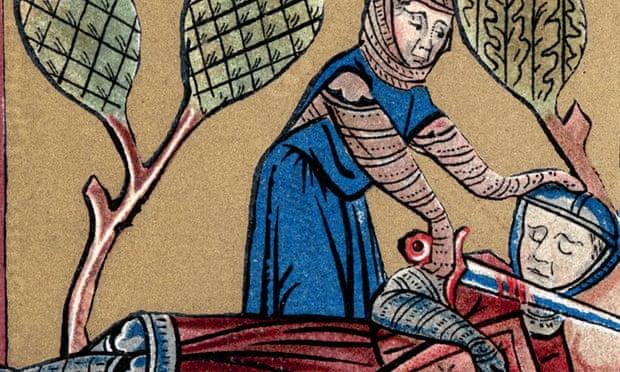
Guillaume kills a giant in an illumination from 13th and 14th century manuscripts of the 'Chanson de Guillaume d'Orange.' Photograph: Granger Historical Picture Archive/AlamyA fragment from a 12th-century French poem previously believed to have been lost forever has been found by an academic in Oxford’s Bodleian Library.
Dr Tamara Atkin from Queen Mary University of London was researching the reuse of books during the 16th century when she came across the fragment from the hitherto lost Siège d’Orange in the binding of a book published in 1528. Parchment and paper were expensive at the time, and unwanted manuscripts and books were frequently recycled.
Scholars had believed the poem, which comes from a cycle of chansons de geste – epic narrative poems – about Guillaume d’Orange, existed, but there had previously been no physical evidence that this was true. The fragment only runs to 47 lines, but it proves the existence of a poem thought to have been completely lost.
The poem is set in the ninth century, during the reign of Louis the Pious, Charlemagne’s son and heir. Atkin said that while it is believed to have been composed in the late 12th century, the fragment itself is from a copy made in England in the late 13th century.

A fragment from the Siege d’Orange. Photograph: Tamara Atkin/Bodleian Libraries“Il li demande coment se contient il? / Mauuoisement li quiens Bertram ad dit / Tun frere n’ad ne pain ne ble ne vin / Garison nule dont il puisse garir / Mais ke de sang li lessai plein Bacin,” runs an early section of the fragment, which Philip Bennett, an expert on Guillaume d’Orange from the University of Edinburgh, has translated as: “He asks him, ‘How goes it with him?’ / ‘Badly,’ said Count Bertram. / ‘Your brother has neither bread nor corn nor wine; / He has no supplies with which to save himself, / Except for one basinful of blood, which I left him.’”
The quoted lines come as Bertram begs the king for help relieving the siege of Orange, a city in the Rhône Valley, describing the dire siege conditions. “In later parts of the fragment we hear him berating the queen (at one point he even calls her ‘pute russe’ or ‘red-headed whore’), who has objected to her husband leading a relieving army south,” said Atkin.
Atkin also found a parchment fragment from Béroul’s Roman de Tristan, telling part of the story of Tristan and Iseult, in the same book. The 12th-century poem is one of the earliest versions of the medieval romance, and until now the only evidence of its existence had been an incomplete 13th-century manuscript in the Bibliothèque Nationale de France. The fragment found by Atkin differs “significantly” from the manuscript, and shows the poem was circulated more widely than had previously been thought.
“When you find manuscript waste in a 16th-century book, it tends to be in Latin, and it’s almost always something theological or philosophical, and from the point of view of modern-day literary scholarship, perhaps not that interesting. But the fragments in this book were different,” said Atkin. “They were in French, they were in verse, and in one of the fragments the name Iseult immediately jumped out. I’m not a French scholar, and I realised I was going to need to bring in some collaborators. From there, it’s just been really fun and exciting.”
She approached academics from the universities of Bristol, Edinburgh and British Columbia to help. “I knew it was something important,” said JR Mattison, a French-manuscript specialist from the University of British Columbia who helped to identify the Tristan and Iseult fragment. “This piece of the poem comes from a significant moment when Iseult speaks with her husband King Mark. This fragment expands our knowledge of the poem’s audiences and its changing meaning over time and contributes a new perspective on how Tristan legends moved across Europe.”
Bennett said there had been “no physical trace” of the Siège d’Orange poem before. “There is much evidence from other chansons de geste that a poem about the siege Guillaume d’Orange suffered in his newly conquered city must have once existed,” he said. “The discovery of the fragment we now have fills an important gap in the poetic biography of the epic hero. This is a most exciting addition to the corpus of medieval French epic poetry.”
The team will now work to discover more about when and where the fragments were copied, and how they came to be bound in the 1528 book. “That manuscripts were made at all reflects the value once placed on the texts they contain. But manuscripts that were dismembered and reused as waste were no longer valued as texts. Their only value was as a material commodity – parchment – that could be used to reinforce the binding of another book. The manuscripts containing these French poems were probably recycled because the texts were considered old-fashioned and the language outdated,” said Atkin.
“It’s fantastically exciting to discover something that’s been lost all this time, but I do think it is also worth simultaneously holding the thought that actually, the only reason these fragments have survived is because at some point, someone thought the manuscripts in which they appeared were not valuable as anything other than waste. There’s a sort of lovely tension in that, I think.”
ARTICLE LINK
https://www.theguardian.com/books/2021/nov/18/fragment-of-lost-12th-century-epic-poem-found-in-another-books-binding
WHY SHOULD CHILDREN READ DARK BOOKS?
Katie Moench Nov 12, 2021Scary books made to give readers the chills may not be the first thing that comes to mind when thinking of “children’s literature.” Horror, whether it be books, shows, or movies, is often thought of as a more adult genre, especially when it depicts violent situations of terrifying outcomes. Death, dismemberment, and masked men with sharp, stabbing knives aren’t exactly the stuff of bedtime stories, and no parent could be blamed for wondering if their kid will never sleep again after reading ghost stories. But even though darker subject material may not be the most common type of children’s book, it can play an important role in the emotional development of young readers.
When children encounter new situations in books, whether scary or not, it gives them a chance to think through how they would handle such things, as well as experience new emotions from a safe and hypothetical place. As children’s author Cavan Scott puts it in his workshops on juvenile horror, “the world is a scary place.” By giving children scary books, Scott argues, young readers can be “pushed to the edge of their comfort zone,” but still get a resolution at the end. Since books for younger readers tend to end at least somewhat happily, children get the experience of being scared, but aren’t necessarily exposed to the more ambiguous endings dark books for adults might contain. If kids are not allowed to read anything frightening or shocking, then they won’t be able to develop the coping skills they’ll need when scary situations arise in their lives.
In addition to allowing children to develop skills for navigating difficult situations, scary stories can also warn young readers about dangerous situations. Even now, I can still remember moments where my favorite charcters in childhood books were put in danger, and how they reacted. Though it’s not healthy to be fearful all the time, books can impart important lessons, from the dangers of getting too close to wild animals to the need to be cautious around strangers. Kids can also think about, and discuss with the adults in their lives,how to stay safe and what kinds of choices they would make in such situations.
And, of course, dark reads can appeal to young readers simply because kids, like adults, like them. Children, in my experience, are their own best judges when it comes to what they find interesting to read and how difficult of stories they can handle. Many otherwise reluctant readers might love the Goosebumps or Tales from Lovecraft Middle School series, precisely because they are full of exciting and nerve racking characters and events, and reading these kinds of books can set children up as lifelong lovers of horror. When kids find books that engage them and that they enjoy, they are more likely to view themselves as readers and to feel like they have a place in the world of books.
No matter how much we might wish otherwise, children, like all humans, experience fear. We are programmed to fear new experiences and unknown things, and even if worries about monsters under the bed or shadows lurking in the dark might seem silly to grown-ups, to children they are very real dangers. Additionally, situations like starting at a new school, dealing with a divorce or death in a family, or moving to a new house can all bring up feelings of anxiety or even dread for kids learning to work through the emotions surrounding such events.
Whatever our age, books, and stories give us the opportunity to process situations outside of ourselves and to draw inspiration and comfort from how others have coped with similar, scary situations. While an adult might not immediately see the connection between being the new kid at school and a book about a kid who hunts ghosts, for a young reader, it’s an opportunity to see someone their age being brave. Just as the best horror novels play on our realistic fears, dark reads for kids can help them emotionally explore frightening situations through the safety of a book. Plus, kids might find they really connect with darker reads, and it can help set them on the path to being engaged and lifelong readers! If you’re looking for dark reads for the kids in your life, hand them some of the books below.
USE THE ARTICLE LINK BELOW TO VIEW THE ENTRIES SUGGESTED
ARTICLE LINK
https://bookriot.com/why-should-children-read-dark-books/REFERRAL LINK
https://kobowritinglife.com/2021/11/19/book-bans-the-national-book-awards-and-a-lost-poem-fragment-this-week-in-book-news/
-
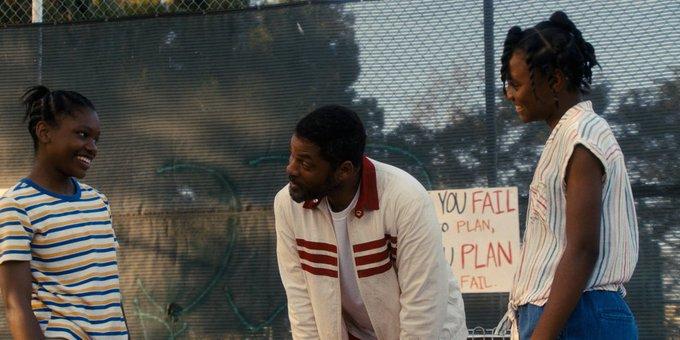
My father love pop williams. I can see similarities between pop williams and my father. But the biggest question I have is, where are black parents? I remember as a kid people asking me, who do I idolize, and my answer was and still is, my parents. they are the finest people I know. I like or love pele, HArriet tubman, fred hampton, malcolm, shirley Chisholm, fannie lou hamer, Akhenaton... I like Lewis Hamilton, the williams sisters, Simone Biles, tiger woods, michelle obama. but I don't idolize any of them. I am not inspired by them. And I think that is what black people need, we need to be inspired by our parents to a level in which we do not need others
a question, what does being a champion mean?
serena williams, venus williams, will smith cover shoots
Venus in the dress, stills
Video Venus williams in that dress:)
kyle on Twitter: "Venus Williams looks STUNNING #KingRichard https://t.co/uQzAGLKh29" / Twitter
-

in amendment, like althea gibson, like arthur ashe, black individuals have always reached the heights in tennis while the tennis community doesn't change and the reason why is clear.
And a note to the film industry, I don't know how long black amazement as seeing black people in big budget films can last as an alternative to the comic book owned property film era.
-
-
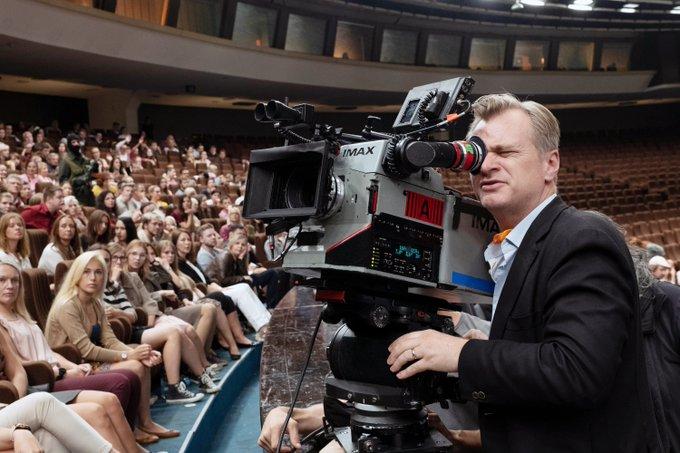
I quote Variety:
By backing #Oppenheimer, Universal is making a bet that the right director can still get audiences excited to visit cinemas for original content. The film, which isn’t due in theaters until 2023, will need to defy the odds to become commercially successfulThe article
Why Christopher Nolan’s $100 Million WWII Drama ‘Oppenheimer’ Could Be the Last of Its Kind
By Rebecca Rubin < https://variety.com/author/rebecca-rubin/ >
Christopher Nolan’s next movie “Oppenheimer,” a $100 million-budgeted historical drama about physicist J. Robert Oppenheimer and the creation of the atomic bomb, could be considered one of an endangered species.
These days, it’s rare for traditional studios to pump nine figures into a film that isn’t inspired by popular toys, novels or comic books. Even before COVID-19 upended the moviegoing landscape, audiences had been gravitating toward superheroes and science-fiction spectacles — and not much else. That reality has made it increasingly difficult for Hollywood to justify the economics of greenlighting expensive movies that aren’t based on existing intellectual property. They’re a bigger risk, not only in recouping investments for studios, but also in generating profits, spawning sequels and leveraging consumer product riches. No matter how well people receive Nolan’s film, it’s unlikely J. Robert Oppenheimer’s face will adorn t-shirts or lunch boxes.
By backing “Oppenheimer,” Universal Pictures is making a bold bet that the right director can still get audiences excited to visit cinemas for original content. The film, which isn’t due in theaters until 2023, will need to defy the odds to become commercially successful. On top of its $100 million production budget, the studio will need to spend $100 million more to properly promote the film to global audiences. Because Nolan’s contract guarantees he receives first-dollar gross — an increasingly uncommon perk that grants the filmmaker a percentage of ticket sales — it will take $50 million to $60 million more to achieve profitability than it would take another film of similar scope. Consequently, insiders at rival studios estimate “Oppenheimer” will need to generate at least $400 million at the global box office in order to turn a profit.
That box office benchmark is one that Nolan’s films haven’t had trouble clearing in the past decade, with the exception of “Tenet,” which opened in theaters at a time when COVID-19 vaccines were still months away. And despite the circumstances, the Warner Bros. cerebral thriller — starring John David Washington and Robert Pattinson — managed to collect $363 million worldwide. “Tenet” cost more than $200 million, making it nearly impossible to turn a profit in those conditions. When it comes to Nolan’s other original properties, 2010’s “Inception” grossed $836 million globally, 2014’s “Interstellar” made $701 million globally and 2017’s “Dunkirk” collected $526 million globally. In other words, Nolan is a filmmaker with an enviable box office track record.
Those who closely follow the industry point out that “Oppenheimer” won’t be the kind of gripping mind-benders that audiences have come to expect from Nolan, such as “Inception” or “Memento.” Instead, it’s a historical drama that’s firmly rooted in fact and physics. Unlike “Dunkirk,” which captures the heroism of British forces during the early days of World War II, “Oppenheimer” tells a darker story, one that exists in the moral murk of the past and is not only divisive, but firmly American. That could limit interest overseas, where Nolan’s films tend to make the bulk of their revenues.
None of this means people in the movie theater business are betting against Nolan. The reason that Universal’s chairwoman Donna Langley made it her mission to court Nolan after his relationship with Warner Bros. grew strained is that he’s one of the few directors who can take a bold swing and rake in hundreds of millions at the box office. It’s especially valuable at a time when Hollywood appears to be scraping the bottom of the barrel for IP that can be spun into cinematic gold. Case in point: There are (real) movies in the works based on the card game Uno, the crunchy snack Flamin’ Hot Cheetos, and the invention of Viagra. Because not every project can be derived from Marvel, Star Wars, James Bond, Jurassic World and Fast & Furious, studios are turning to filmmakers with unique perspectives who can launch a film based on their name alone. Privately, other Hollywood players have voiced their desire to see “Oppenheimer” succeed because it would encourage studio executives and financiers to take more chances on new ideas.
“[Nolan] is a unique talent with a very loyal fanbase. If you were to say someone else was doing a period piece about J. Robert Oppenheimer, I would say it would be difficult to get made,” says producer Peter Newman, the head of NYU’s Tisch School of the Arts’ MBA/MFA program. “Here, you know you’re going to get something different and original.”
There aren’t many filmmakers who are given the opportunity to create movies around new and unfamiliar ideas at that budget level, at least, not at traditional studios. (In a sign of changing times, Steven Spielberg, once a streaming service skeptic, forged a partnership for his company Amblin to produce new feature films yearly for Netflix.) When they work, in the case of Quentin Tarantino’s ode to 1960s showbiz “Once Upon a Time in Hollywood,” the studio and filmmakers alike can reap the benefits. Sony shelled out roughly $90 million to produce “Once Upon a Time in Hollywood,” which starred Leonardo DiCaprio, Brad Pitt and Margot Robbie and grossed $375 million at the global box office. When they flop, like Ridley Scott’s big-budget period piece “The Last Duel,” starring Ben Affleck, Matt Damon and Adam Driver, or Roland Emmerich’s $100 million-budgeted war drama “Midway,” the losses can be ruinous.
Filmmakers like Jordan Peele and Judd Apatow have a similar ability to churn out hits, but their movies don’t cost nearly as much to make. Recent would-be blockbusters or adult-targeted movies with sizable budgets, such as Michael Bay’s “6 Underground,” Aaron Sorkin’s “Trial of the Chicago 7,” David Fincher’s “Mank” and “Red Notice” starring Dwayne Johnson, Ryan Reynolds and Gal Gadot, were set up by or sold to Netflix. The streamer, as well as its competitors, doesn’t report box office grosses and relies on luring subscribers with fresh content, so it’s impossible to know what kind of financial impact those movies had.
Nolan could have easily sold “Oppenheimer” to a streaming service, which would have guaranteed him a massive payday without being subjected to the scrutiny of box office reporting. But he’s a big supporter of the big-screen experience and the struggling film exhibition industry.
Since “Oppenheimer” isn’t expected to debut in theaters until summer 2023, plenty could change in the movie theater business by then — for better or worse. There’s a chance it could launch in an environment that’s even more hostile to tentpoles that aren’t of the comic book ilk. Or, moviegoers could be ready to look beyond the constant drip of Batman, Superman and Spider-Man adventures and watch something that doesn’t involve grown men in tights.
With an original property, marketing executives have to familiarize audiences with the property while also enticing them to watch the story in theaters. In the case of “Oppenheimer,” Universal has to make people aware that Nolan has a new movie and convince them they simply must watch the story behind the Manhattan Project on the big screen. Nolan is assembling an A-list ensemble — Emily Blunt, Matt Damon and Robert Downey Jr. — around Cillian Murphy (who is playing J. Robert Oppenheimer) to elevate the movie’s profile.
Another challenge will be reaching its target demographic of adult crowds. They may be more eager to go to the movies two years from now, but while COVID-19 is still lingering, the age group has been most hesitant to visit their local cinemas.
“There used to be at least one level of uncertainty in how movies perform: execution dependent,” Newman says. “Now, it’s not only execution dependent, it’s pandemic dependent. It takes over a year to make a movie like this, and nobody knows what the health situation will be [at the time it comes out].”
MY THOUGHTS
If I am honest, I think this movie dies hard. When M Night Shamala did Lady In The Water or Last Airbender, it sounds a lot like Oppenheimer from Christopher Nolan. A director with a set of fans who expect a certain kind of narrative in a film and who will not be happy of the course change. The article says directors like Nolan can be banked on money but admitted, the failures of big budget films, like Ridley scott's , The Last Duel, or similar are examples to show it doesn't work and has many recent examples of failures.
The one name the article doesn't mention is clint eastwood. It refers to Jordan Peele or Judd Apatow but to be blunt, Clint Eastwood is the quiet king of the low budget hit machine, starting decades ago. And to that end is where I think directors like ridley scott/christopher nolan/shamala all made the mistake. The reality is, big budget movies from the usa need to be the providence of comics/superheroes/fast and the furious/toys. The article didn't even mention Villaneuve, who did the Bladerunner sequel and Dune and in both cases, you can argue for failure financially.It is an art directing a low budget picture , it demands the director stop all the bells and whistles and simply tell a good story and pick wise actors to present their characters as compelling within the framework of said story. Nolan will get paid regardless, but I expect this film will be an end and I don't think it is a problem.
I end with a simple truth. No one is stopping original ideas from being made into films. if viewerships or audiences are too stupid or too manipulated to give movies a chance beyond metacritic scores and various judgements of others, then the audience or viewership is the problem.
POST SCRIPT
The point they made about Netflix's films is very poignant. Who can know a streaming service has success with a film? is it number of streamers growth? If quantity of streamers, people who paid for a subscription, doesn't elevate then how is a film on a streaming service financially profitable, outside stock price speculation
-
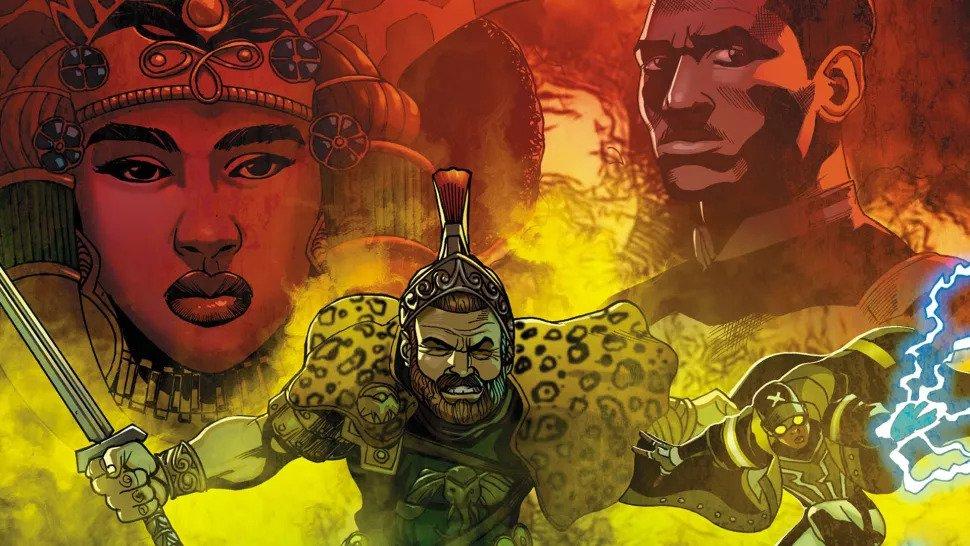
DC pairs Milestone heroes with real-life Black historical icons for Black History Month special
By Chris Arrant 1 day ago < https://www.gamesradar.com/author/chris-arrant/ >Static, Icon, and Rocket paired with Hannibal, the Queen of Sheba, and more
DC has revealed details on Milestone Media's 2022 Black History Month anthology announced back during the 2021 DC Fandome. Milestone Media will veer away from superhero fiction for true-life stories of real-life Black heroes from human history for the 96-page anthology graphic novel Milestones in History.
There will be stories about real-life historical icons including:
Hannibal, the Carthagian general who fought the Roman Republic
The mythical/historical Queen of Sheba
Alexande Dumas, the writer of The Count of Monte Cristo and the The Musketeers
Eugene Bullard, a World War One fighter pilot who was an American but served for France
DC says the writers of Milestones in History will include Reginald Hudlin, Alice Randall, Touré, and Michael Harriott. The publisher says more writers, as well as the artists, will be named at a later date.And although Milestones in History is non-fiction, there's still room for Milestone's heroes - Static, Icon, Rocket, Hardware, and more will act as narrators of these true stories of world history.
For February 2022's Black History Month, DC also has planned the massive 1300-page MIlestone Compedium One < https://www.am*zon.com/Milestone-Compendium-One-Dwayne-McDuffie/dp/1779513100 > , a collected edition of the recent Static: Season One, as well as a series of Black History Month-themed variant covers across the entire DC comics line.
This follows a similar female-centric anthology DC published in 2021, Wonderful Women of the World - retelling stories of real-life women but themed around Wonder Woman. Could this be the start of an informal series of non-fiction anthology graphic novels with its superheroes as the narrators? We'd love to read a true crime history anthology narrated by Batman.
Doug Braithwaite will draw the main cover to Milestones in History, with a variant cover planned by Chriscross.
DC/Milestone Media's MIlestones in History goes on sale on February 15, 2022.
These Black superheroes changed the face of comic books.
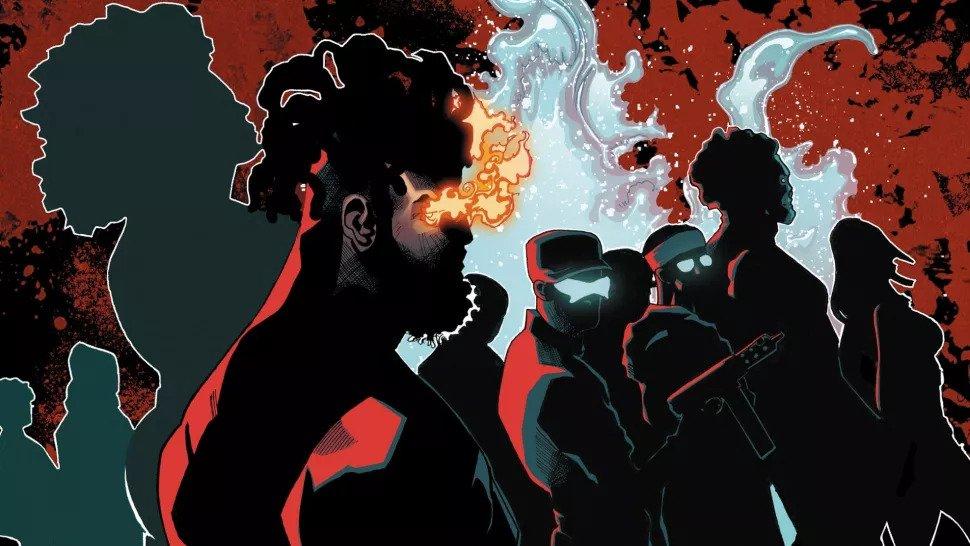
Blood Syndicate returns to comics and Milestone gets animated in 2022
By Michael Doran October 16, 2021 < https://www.gamesradar.com/author/michael-doran/ >All the Milestone news from DC Fandome 2021 including a DC/Milestone Black History Month anthology
The new Milestone Initiative program to "identify, educate, spotlight, and empower" the next generation of Black and diverse creators in the comic book industry wasn't the only Milestone announcement from 2021's DC Fandome.
In a discussion moderated by actor Echo Kellum (Curtis Holt/Mr. Terrific on Arrow), Milestone Media producer Reggie Hudlin and Milestone co-founder Denys Cowan announced more new projects from their DC partnership and the Dakota Universe comic book universe, including a new Blood Syndicate comic book series for 2022.Hudlin and Cowan did not announce the creative team but the publisher did release a promotional image and the duo talked about how Blood Syndicate has been the Milestone property fans have been clamoring for.
Originally published for 35 issues from 1993 to 1996 and created by the late Milestone co-founder Dwayne McDuffie, writer Ivan Velez Jr., and Cowan, the Milestone team book starred a loosely affiliated 'gang' of superheroes, most of whom were former street gang members who gained powers during the Milestone 'Big Bang' origin event and used their powers for the greater good.
Cowan (Hardware: Season One) and Hudlin (Icon & Rocket: Season One) also confirmed that there are plans for "Season Two" of each series and that their characters will appear in each other's titles, reestablishing a shared Dakotaverse.
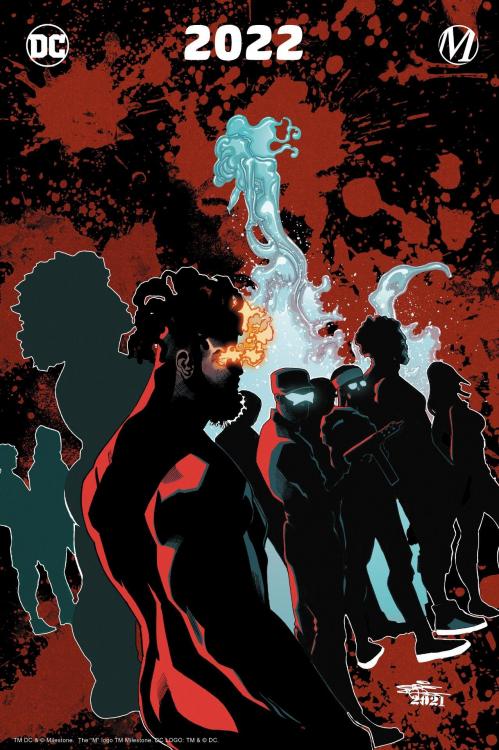
The characters will also appear in a Milestone anthology scheduled for February 2002 as a part of DC's Black History Month celebration, which will also feature the release of Milestone Compendium One on February 1, 2022 - which Cowan revealed his cover.And in Milestone multimedia news, Hudlin and Cowan confirmed writer Randy McKinnon is currently writing a script for a Static Shock feature film in production with Warner Bros. and Michael B. Jordan's Outlier Society production shingle, and Warner Bros. Animation and Warner Bros. Home Entertainment are developing a Milestone animated movie based on a screenplay by Hardware: Season One writer Brandon Thomas (who is also co-writer of the upcoming new Aquamen DC series).
"This has been the thing that Milestone fans have been dreaming about for a long time, and we're happy to give it to you, finally," Cowan says during the Fandome event.As the promo image featuring Static, Rocket, Icon, and Hardware released by DC Saturday indicates, Cowan described the film as being about more than one Milestone character, suggesting it's more of a Dakotaverse film than a solo story.
MY THOUGHTS TO THE FIRST ARTICLE
Technically, Hannibal was phoenician not carthaginian. Carthage was the capital of the phoenician empire which controlled the south of the meditteranean while the roman empire, centered on Rome controlled the north. But, the phoenician community had changed its center from the eastern mediterranean to the center. Part of it was the influence of Kemet/Hellens/Persia in the east. As the roman empire would eventually absorb kemet/hellens and create something akin to a USA/USSR dichotomy commonly called a "cold war" with each other.
Sheba is historical in that history shows Black female queens/leaders in the lands now commonly called ethiopia. The myth is the unfortunate truth, the various wars in that region have destroyed alot of ancient monuments.
While I comprehend the time period of Hannibal or Sheba gives them precedence in these sort of artistic endeavors. I will add to and if I can not add replace Hannibal with Jamal-ud-Din Yaqut while Sheba with Dandara and add Jonas Caballo of the Seminoles. I think the legend of all three is needed. The reality is being black, is a phenotypical designation. It isn't about being african. And, i think more black people need to see Black people with cultures that are not african based. And need to see that the white/black dichotomy exist within being asian, within being latino. and, the violent/non-violent dichotomy exist within the descended of enslaved in the usa. Black is one thing. African is another. They are not synonomous. To be blunt, Hannibal is mulatto. Jamal ud Din and the later Janjira state is a part of Black history in asia that is, ignored, not wanted, not presented. In the larger black world or in the asian world. I am not hating on Hannibal. I know his legend well And his legend warrant telling. But, I think this book should focus on legends not talked about alot. And Jamal-ud-Din's military greatness is equal to Hannibal's but his existence in asia, as a siddi, gives him a relationship to ancient Kemet, where it is known traded with the various peoples of what is commonly called today the indian subcontinent. The existence of black peoples from the indigenous Negrito or Aborigina of Australia to the transported Siddi needs a champion. Jamal-ud-Din for me, is that champion.
Dandara , like Jamal-ud-Din, is not as old as Sheba or in relativity Hannibal. but, like Jamal-ud-Din fits the same category as HAnnibal. Dandara fits the same category as Sheba. Wife to a legendary leader. Warrior woman. A woman disputed in historian circles, a woman disputed in the brasil in which she lived. A latino but she J-Lo. She was a negra, not a blanquito, or mulatto or mestizo. All terms still valid in latin america today. so... I think she needs to be in it. Not the convenient Sheba, who is not known while well known.For me Jonas Caballo needs to be in it cause Black people in the usa continually reject Nat Turner or similars. To be blunt, for all the talk black people in the usa have about forebears, people like NAt Turner/Jonas Caballo are not given their due. But why? the why is their violence isn't contained. Black cowboys violence is contained within the usa. Jonas Caballo was fighting against the usa in what is now the state of florida. Nat Turner was fighting against the white community with the same energy as Haiti's initial forebears<dessalines to henry christophe>. BUt, the black community globally , to be blunt, despises them. Why? cause they can't place them in the convenient bubble of nonviolence and anti revenge. Nat turner/Jonas Caballo/Ann Nzinga/Menelik II are heroes but they are violent ones, who also had success militaristically and the black community globally, is led by anti violent zealots.
Dumas will be interesting. I think Milestone missed a trick. While Dumas's Black saint domingan <not Haitia yet> grandmother and White french father produced his military schooled mulatto father. Pushkin is clearly the best legendary Black writer of Europe to use, for a story. His ancestor was Gannibal. An East african, raised as a show slave by Peter the great of Russia , who became a statued military hero and teacher in Russia. And Pushkin's great grand children were members of Eastern European regal aristocracy.
Eugene Bullard, in the end, Bullard for me is black not american. People have this wierd way of attributing every person born in the usa as american based on nothing but they were born in the municipal bounds. but, Bullard after his world war exploits, came back to the usa to be a janitor, a elevator operator. In france he actually owned a business. The article says Bullard is american . I don't see him as american or french. His geographic designation is stateless. He was a black man who happened to be born in the usa and happened to fight for france. I like the choice of Bullard but I can already tell where the storytelling is going will not be to my liking.
I hope the best for the book.
MY THOUGHTS TO THE SECOND ARTICLE
Blood syndicate is my favorite Milestone title and I am saddened some others will take it cause I am certain they will turn it into what I will dislike. HArdware is black iron man meets lewis lattimer with edison. Icon is black superman as a conservative with a black supergirl who is liberal and not truly a blood relation to him. With the brilliant story caveat that Rocket is why there is icon. Static is spider man with a nod to the first black comic book character in the usa to get their own book, black volt or bolt. But ...
The Blood Syndicate is something else. They are pure Dakota for me. You can not find a similar story like Blood Syndicate in DC or Marvel. And the reason why is Blood syndicate reflects black cultures unique reality. To restate, Blood syndicate reflects what Blacks don't have in common with whites. And that is special to me. It must be nurtured in the same way I want the Black latino, the Black asian, the Violent Black to have their due, I want this imprint to be free of the Static/Icon and Rocket/Hardware dogma. Those three in the modern version have been made lackies to the rebooting culture that plagues usa comics. From the first crisis in the DC universe circa 1985 to now. I don't want Blood syndicate to be part of some Black lives matter riot turned wrong. I want Blood syndicate's story unchanged. It was the big bang, they are the survivors of a big gang fight. the police department plus a white industrialist sickened and killed them. They are the survivors and they exists in a poor sector of the city , in the same way the hookers run a part of the town in sin city. Nothing needs to change for blood syndicate and listening to denis coan side others, I know they have already decided things will change.
My blood syndicate, hurts, hurts bad, knowing what will become of them.IN CONCLUSION
I wish Milestone well, I did as a fan club member , I did never having watched the static tv show but supported it in all other ways, I do now. Even if I am not chosen to be a part of their development <yes, I applied to the milestone initiative>. But, gardless of how successful Milestone is. A space exists for black superheroes of the many other ways. And, history , the teaching of history, needs the philosophical naysayers out of its telling. Just cause you don't concur or agree or like the path of one in history doesn't mean you dismiss them through never speaking their name. Comprehend the people in the past. ... Would Germany had been better eternally indebted to england or france?
-
MY THOUGHTS
Night of the living dead
circa 6:47 I have one of those:) I got mine traveling the motherland. Woosah moments!We're coming to get Nike , Nicole, He's over there:)
The first thing I want to know is what either of you will do if a man tries to scare you at a cemetary like that.Great Trivia Nike, the first film was Night of the Living Dead, the last was Ganja and HEss. Dwayne Jones did an interesting role in a film around the City College of New York.
Ladies, night of the living dead 1968 is one of those old black and white movies that is rarely shown. In the war film categry think paths of glory. A legendary film, like Night of the living dead, but one that predated the 1980s media surge, and didn't have the annual television power like star trek/twilight zone/its a wonderful life
Nicole, I think it is called listening to a story. The USA during the late 1970s to today was raised on the idea that visual interpretations need to be scientifically honest aside plot quality. Before, people had the idea that special effects was merely entertainment, not a mandate .
Nike, I don't think Night of the Living dead's plot is so silly. The mist thing from space can be acceptable. But the movie's genious is the explanation to how this scenario came about is in the background, it isn't pushed forward in the story. The genious in the screenplay is, the focus on what do you do if the situation applies is the premise of the plot. The initial character is the woman fleeing from someone formerly dead. Why he is formerly dead doesn't matter. IT is alluded to but it doesn't matter.
Nicole, well said, they came all this way to abduct somebody. Are all humans jesus or something?
Yes Nicole, the movie forces the question of survival onto the audience. If you are into the story, you aren't interested in aliens or nuclear winds, you are interested on what you will do if surrounded by your parents/children/stranger in the street that are now undead and need you for food.
Good trivia Nike, interesting, Germany banned it for the blood. Outside the usa, the rearing of children or guidance of media is not the same as in the usa.
Yes, Nicole, but Grimm's fairy tales were softened versions of the original german tales meant for all ages, not just merely children like Grimms.
Nike, good point, the military is "heroes" in the story, and the usa film industry supports positive images of the military usually.
Nike, more importantly, than who survived is how they died, i think each character in or about that house's death served a narrative purpose on failure to survive and how it works.
good question on film influence Nicole
Ladies, Funny how Diahann Carroll was not allowed to be the love interest in Paris BLues in 1961 to Paul Newman or for Sidney Poitier to have a white female love interest in the same movie, while in 1967, Poitier has a white female love interest, who was to be fair, a teenager in guess whose coming to dinner and Diahann Carroll had her own show.
Nike, the sporting world in general was the only place black or white men had any battles in media. Your correct boxing was the only purely violent place.
I will give Night of the living dead a 5 then or now. I think the story or acting still holds up.
Nicole GREAT POINT, the reason they bring back things is cause they have fanbases and it is financially safer to make a remake over new ideas.
I comprehend your point but the financial model of film/streaming/cable wants the best return and a totally new story.
:) good memory Nike 38:59 your reaction Nicole:) thank you jesus, rocky horror picture showI agree to you ladies, but the reality is, when was the last time the top ten movies were all based on an original idea.
https://www.youtube.com/watch?v=1nFruH-5TT0 -

Cool resource alert: Variety has reported that Solange, through her Saint Heron studio, is launching a community library of “esteemed and valuable” books by Black creators. Readers can borrow any book from the collection of rare, author-inscribed and out-of-print literary works to up to 45 days, free of charge in the U.S. According to Saint Heron’s materials, the library’s focus is “education, knowledge production, creative inspiration and skill development through works by artists, designers, historians, and activists from around the world . . . We believe our community is deserving of access to the stylistically expansive range of Black and Brown voices in poetry, visual art, critical thought and design.”Rosa Duffy, founder of For Keeps Books, an Atlanta-based community bookstore and reading room, has guest curated the first season of the Saint Heron Library; in collaboration with Saint Heron, Duffy has curated over 50 available titles including a signed first edition of In Our Terribleness by Leroi Jones, Meren Hassinger 1972-1991, a signed The Meeting Point by Austin Clarke, My One Good Nerve Rhythms, Rhymes, Reasons by Ruby Dee and Ossie Davis, inscribed by the authors to Maya Angelou, and more. The first season, supported by Aesop Skincare, will run from October 18th until the end of November.
“The Saint Heron Library continues the work we have been building by preserving collections of creators with the urgency they deserve,” said Solange in a statement. “Together we seek to create an archive of stories and works we deem valuable. These works expand imaginations, and it is vital to us to make them accessible to students, and our communities for research and engagement, so that the works are integrated into our collective story and belong and grow with us. I look forward to the Saint Heron library continuously growing and evolving and over the next decade becoming a sacred space for literature and expressions for years to come.”
You can read an interview with Rosa Duffy, guest curator of Saint Heron Library’s first season, on Saint Heron’s website.
SAINT HERON website: https://saintheron.com/
ARTICLE By Walker Caplan
https://lithub.com/solange-has-launched-a-community-library-of-rare-books-and-art-by-black-creators/When her phone buzzed on June 6, Iole Lucchese was still absorbing a shock that had come the day before. Her longtime boss, M. Richard Robinson Jr., the chairman and chief executive of the Scholastic publishing company, had died suddenly while taking a walk with one of his sons and his former wife on Martha’s Vineyard.
Now, Scholastic’s general counsel, Andrew Hedden, was on the phone, delivering a second surprise.
He had called to inform her that Mr. Robinson, 84 — who turned his father’s book and magazine business into the largest publisher and distributor of children’s books in the world, known for thousands of beloved series, including Clifford the Big Red Dog, Hunger Games and Harry Potter — had left Ms. Lucchese 53.8 percent of Scholastic’s Class A stock. The company where she had worked for 30 years, rising from a junior employee in the Canadian market to one of its top executives, was now a company she controlled.
“It was overwhelming,” Ms. Lucchese said in an interview at Scholastic’s headquarters in SoHo, water towers punctuating the cityscape behind her.
Being handed control of the company, which is valued at $1.2 billion, has made Ms. Lucchese, 55, one of the most powerful women in book publishing, and the stock provides her — the daughter of a construction worker and a homemaker — with significant wealth. The gift also shifts the business, which had been passed from father to son, to a person outside the family and puts Scholastic in an extremely unusual position for a public company: adapting to a succession plan many key players did not know was coming.
In his will, Mr. Robinson described Ms. Lucchese (her name is pronounced YO-lay lew-KAY-zee) as “my partner and closest friend.” But an article in The Wall Street Journal described them as “longtime romantic partners.” Six former employees, who spoke on the condition of anonymity because they were reluctant to cause further embarrassment to Mr. Robinson’s sons, confirmed to The New York Times that the romantic relationship between Ms. Lucchese and Mr. Robinson had been well known among many Scholastic employees.
“We were great business partners and close friends,” said Ms. Lucchese, a senior executive responsible for strategy and the company’s entertainment division.
She declined to address The Journal’s claim that she and Mr. Robinson had been involved in a relationship, which the employees believe ended a few years before his death.
This was Ms. Lucchese’s first interview with the news media since the death of Mr. Robinson, whom everyone called Dick. She was joined at a round conference table by Peter Warwick, the company’s new chief executive, and flanked by two publicists, one from Scholastic and another from the public relations firm Edelman.
“Dick understood that I shared his passion for Scholastic, and what this company means to the teachers we serve, to the children we serve, to everyone,” Ms. Lucchese said of his decision to leave his Class A shares to her. “He trusted me with that legacy, and I think it’s because we worked together and he knew that we were aligned.”
That bequest bypassed his two sons, John Benham Robinson, 34, known as Ben, and Maurice Robinson, 25, known as Reece. Mr. Robinson’s sons declined to comment for this article.
Scholastic said in a statement that the board had regular discussions about succession at the company.
The publisher's offices are in a warehouse-style building with exposed bricks, subway tiles and a giant sculpture of Captain Underpants busting through the lobby wall. On the day of the interview, the offices sat mostly empty as many employees continued to work from home because of the pandemic. Any silences in the conversation hung heavily in the air.
Sometimes confining herself to one-word answers, Ms. Lucchese discussed her career and the unusual situation of being both a longtime senior executive and now also the chairwoman. A stack of Harry Potter books kept watch from a large wooden bookshelf over Ms. Lucchese’s left shoulder.
“He’s the boss,” she said, motioning to Mr. Warwick, who, as chief executive, in one sense outranks her.
“But I do report to the board,” he answered.
Scholastic did not seek publicity for its new chair, the first woman and the first person outside the Robinson family to hold the position in decades. A few days after the news of the personal complexity around the succession had broken in The Journal, the company, known for its stable of beloved childhood classics, became an object of tabloid interest — “How ‘chameleon’ Iole Lucchese won $1.2B Scholastic empire,” read one New York Post headline.
When a reporter for The New York Times emailed Scholastic in August requesting an interview with Ms. Lucchese, Ira Gorsky, executive vice president at Edelman, the public relations company, called to inquire about whether Ms. Lucchese would be asked about “the alleged affair,” saying, “You can see how this is offensive, how the allegations implied that she has not gotten to her position because of merit.”
Mr. Gorsky said that as “a ground rule for giving an interview,” the Times reporter could not ask Ms. Lucchese about a personal relationship with Mr. Robinson. When the reporter declined to agree to such limitations, Mr. Gorsky responded: “Then we’re done.”
Ms. Lucchese did eventually agree to be interviewed, and no one representing her asked again for restrictions on topics or questions. Aside from an hourlong conversation with Ms. Lucchese and Mr. Warwick, preceded by a tour of the company’s archive led by a librarian, Scholastic declined to make any other employee available.
Her supporters say that as a 30-year veteran and a longtime senior executive of the company, she represents continuity and is qualified to lead it. Any skeptical reaction to Mr. Robinson’s choice of Ms. Lucchese is “laced with sexism,” said Erik Feig, the founder of Picturestart, a media financing and production company that Scholastic invested in and where Ms. Lucchese is a board member.
“She understands every brick of the literal and metaphorical building of the company,” Mr. Feig said.
Wall Street does not know her as well as some players in Hollywood do. Scholastic’s largest investor, after the Robinson family, was not aware of Mr. Robinson’s succession plan. “On a number of occasions, I asked Dick,” said David Wallack, a portfolio manager for T. Rowe Price, the Baltimore-based investment company, which holds more than 18 percent of the company’s common stock.
“He would tell me, ‘When I die, there is a safe, and there is an envelope in the safe, and the board of directors will open the safe and see what my wishes were,’” said Mr. Wallack, who was in regular touch with Mr. Robinson for 20 years. “I thought it was hyperbole.”
In its statement, Scholastic described the transition process this summer as smooth and efficient, saying that an interim team had taken over, as planned, immediately after Mr. Robinson’s death and that six weeks later, Mr. Warwick and Ms. Lucchese had been appointed to their new roles.
“Throughout this period — which was also set in the challenging landscape of schools reopening after Covid-shut downs — the company ensured the seamless continuation of operations, supporting teachers and students during a historic back-to-school season,” the statement said.
Mr. Wallack said he had hoped that after Mr. Robinson died, the board would conduct a broad search of internal and outside candidates for the chief executive role and elevate a board member to chair. He said that in July, when the board named Mr. Warwick, a board member since 2014, as chief executive and brought Ms. Lucchese onto the board as chairwoman, “we were shocked for sure.”
He said Mr. Robinson had never spoken to him of Ms. Lucchese and had never shared any information with him about her contributions to the company.
Mr. Wallack said that he couldn’t assess her skills himself. “I have never met her,” he said, “and none of my colleagues have met her.
After she was named chairwoman, Mr. Wallack waited to hear from Ms. Lucchese. “We are the largest shareholder after the family, and you would expect the company chairman to reach out and have a conversation with the shareholders she is supposed to represent.”
Mr. Wallack contacted an investor relations representative in June and again in September to request a meeting with Ms. Lucchese. “We were told they would let us know when she is available,” he said, adding that he was still waiting.
Mr. Hedden, the company’s general counsel, a board member until this summer, and the coexecutor of Mr. Robinson’s estate, said in a statement that he was not aware of Mr. Robinson’s plans. “From my knowledge of Dick, I know that he made his decisions around his will privately, as was his nature,” Mr. Hedden said, “and that he had the best interests of Scholastic and the continuation of his legacy in mind.”
But Mr. Robinson’s legacy includes a messy succession drama that spills into family drama as well. His will names Ms. Lucchese a coexecutor and gives her his personal property, “with the request, but not the direction” that she distribute it to his children in what “she believes to be in accordance with my wishes.”
The fact that the leadership of a public company hinged on the surprising bequest could represent a breach of duty on the part of the board, said Jeffrey Sonnenfeld, senior associate dean of leadership studies at the Yale School of Management.
“If he were 40 years old, they should have had a plan,” Professor Sonnenfeld said. “And when you’re talking about an octogenarian, the odds are not in his favor.”
Ms. Lucchese was raised in Toronto, the younger of two sisters, and went to the University of Toronto. In 1991, she recognized the Scholastic logo, a little flying book, on a job board at the university’s career center and applied for a position at its Canadian book club division. Since 1948, Scholastic has sold books to students through catalogs and fliers distributed in schools, and one of Ms. Lucchese’s tasks in those early days was to help make the fliers given out in classrooms, sometimes with X-acto knife and glue in hand.
It was through her new job that she met Mr. Robinson in the early 1990s. Ms. Lucchese said she had been walking through the office on her way to the graphic art department with book club paste-ups in her arms when Mr. Robinson stopped her and asked what was listed in the fliers. Her work at Scholastic — and connection to Mr. Robinson — began at a time when fewer rules and guardrails existed around what a relationship with a superior could mean for the course of one’s career.
Early on, Ms. Lucchese tried to expand the range of books offered through the club, moving beyond classics to include more contemporary and commercial titles students would be eager to read. “You can try to push them to read the classics or what was your favorite,” she said, “but it’s really going uphill until that spark happens with a book that they love.”
She worked her way up through the Canadian book club division and then the Canadian corporate office, becoming a co-president. In the years that Ms. Lucchese worked in Canada, annual revenue grew to 150 million Canadian dollars from 25 million Canadian dollars, according to her biography on Scholastic’s website.
She was made the corporation’s chief strategic officer, then added executive vice president to her string of titles, charged with duties like streamlining areas of the business. To compensate her for her growing role, the board gave Ms. Lucchese a raise and a bonus in 2019, which brought her total compensation to nearly $1.2 million.
Around the time she moved to New York, Mr. Robinson bought an apartment for Ms. Lucchese’s use in the same building in which he was living, according to someone involved in the transaction who spoke on the condition of anonymity because the person was not authorized to speak to the news media.
Ms. Lucchese has focused much of her attention in recent years on her additional role as president of Scholastic Entertainment, pouring her time into film and television projects like “The Magic School Bus Rides Again,” a Netflix series in which the eager teacher Ms. Frizzle takes her students on magical scientific adventures to places like outer space or to the bottom of the sea.
The goal, Ms. Lucchese said, is to focus on a small number of quality productions that reflect the vision of Scholastic and its authors, in hopes of converting watchers into readers. “Ultimately, for us, it’s about selling the books,” she said.
It was while discussing these ventures that Ms. Lucchese was most animated, describing particular projects like the forthcoming movie “Clifford the Big Red Dog.” She gave a little cheer (“Yay!”) when she learned that a reporter’s children were fans of “The Magic School Bus Rides Again.”
“Clifford,” which was filmed before the pandemic, is scheduled to be released in theaters and on a streaming service in November. The adaptation places Clifford in New York City, away from his usual home on Birdwell Island. Jordan Kerner, one of the producers, said he had given Ms. Lucchese credit as a “producer” rather than the more ceremonial “executive producer” to reflect her day-to-day involvement.
“We were worried that Scholastic would react to Clifford being in New York, but she understood the comedy of it, of New Yorkers looking at their phones and not looking up at 10-foot dog,” said Mr. Kerner, who also produced the 2006 live-action “Charlotte’s Web” film and “The Smurfs.”
In the interview, Ms. Lucchese did seem to have thought quite a bit about how the big red dog would find life in the big city, and how he would adapt.
“Clifford is as big as a house if you read the books, but in order to make him interactable in the live-action movie, he has to fit in a room,” she said. “So he had to be a puppy.”
Since M. Richard Robinson Sr. founded the company in the sewing room of his parents’ house in Western Pennsylvania in 1920, Scholastic has been a family business. Dick Robinson’s siblings still own about 47 percent of the Class A shares, which are held by trusts.
Barbara Buckland, one of Mr. Robinson’s sisters, said the two of them often had dinner together on Sundays, though he would cancel if he was able to dine with his sons instead. She said he had come to her home for dinner shortly before he died and had been “full of his usual vim and vigor and all kinds of questions.”
“We’re saddened, but we know the company is in good hands,” said Ms. Buckland. “Nobody has any intention of selling. Nobody is worried. We are all sad.”
Despite Mr. Robinson’s age, his death came as a surprise to many in his personal and professional lives. A daily exerciser, he was fit and in full control of day-to-day operations at Scholastic, and anyone who knew him even a little bit would say the company was his life’s obsession.
A cartoon of his face, showing him looking off into the distance like a superhero, hangs on a gallery wall in Scholastic headquarters, near portraits of Harry Potter and Clifford. Ms. Lucchese said that when the office was redesigned a few years ago, Mr. Robinson hadn’t wanted any pictures of himself displayed but Ms. Lucchese said she sneaked that one in.
Mr. Robinson made it no secret that he wished Scholastic to remain an independent company, even as consolidation within the publishing business sped up around him. Penguin Random House, itself the product of a 2013 merger, is in the process of trying to buy Simon & Schuster. If approved by federal regulators, that deal would create a colossus far larger than any other publisher in the country.
But the remaining large houses will want to bulk up to compete, especially by acquiring rich “backlists,” catalogs of older titles that are reliable, long-term money makers — which is sure to make Scholastic an attractive target.
The company’s new leadership team appears to share what was perhaps Mr. Robinson’s most precious goal: Ms. Lucchese and Mr. Warwick expressed no interest in selling.
“We’ve got the resources ourselves to go forward at the pace that we want to go,” Mr. Warwick said.
Given Mr. Robinson’s devotion to Scholastic, it was fitting that his memorial service was held there last month. A virtual event with just a few people in attendance, it included a video eulogy delivered by his son Reece. “We will cherish the memories of the holidays and weekends we spent with him during Covid when he wasn’t working 12-hour days,” Reece Robinson said of his family’s relationship with his father.
The service had all the star power of a Hollywood collaboration, with video messages from Goldie Hawn, Bill Clinton and J.K. Rowling punctuating remarks from former employees and board members. The final speaker, Alec Baldwin, described the friendship he had developed with Mr. Robinson as neighbors in a downtown apartment building and expressed his condolences to Mr. Robinson’s family, the Scholastic community and Ms. Lucchese. He was the only speaker who mentioned her name.
Mr. Wallack, the portfolio manager for the company’s second-largest shareholder, had twice contacted investor relations at Scholastic to request information about Mr. Robinson’s funeral, he said. But no one alerted him to the memorial service, he said. “I was hopeful to have been invited to that,” he said, or at least sent a link. (In response, a company spokeswoman said the event was publicized on social media and the company’s website.)
Ms. Lucchese, one of Mr. Robinson’s closest business associates and the woman in control of the company, chose not to deliver remarks herself. Instead, she wrote a note in the program that appeared under a picture of Mr. Robinson’s broad smile.
“Dick knew that Scholastic could uniquely empower children to overcome obstacles,” she wrote. “He knew this work was worth doing, and he inspired in all of us the passion to get it done.”
The message was signed, “Iole Lucchese, Chair of the Board.”
Susan C. Beachy contributed research.
Katie Rosman is a features reporter who covers a range of topics including media and celebrity. She joined the Times in 2014. @katierosman
Elizabeth A. Harris writes about books and publishing. @Liz_A_Harris
ARTICLE By Katherine Rosman and Elizabeth A. Harris
https://www.nytimes.com/2021/10/18/business/scholastic-iole-lucchese-succession-battle.html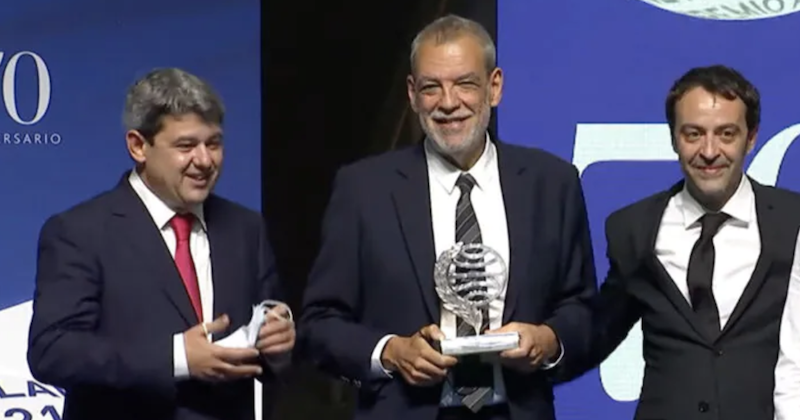
This week, the winner of the Planeta Prize, a Spanish 1-million-euro literary award, was announced: Carmen Mola, a famously private crime thriller writer. All that was known about Mola, often referred to as Spain’s “Elena Ferrante,” is that she was a university professor in her mid-40s living in Madrid with her husband and three children; three years ago, she told Spanish newspaper ABC that she used a pseudonym so as not to disrupt “an already-formed life that has nothing to do with literature.” But at the Planeta awards ceremony, the real reason for the pseudonym was revealed: Carmen Mola doesn’t exist. Instead, she is the product of three male screenwriters—Agustín Martinez, Jorge Díaz and Antonio Mercero—who showed up in person to pick up their prize money. According to The Guardian, their credits include television shows Central Hospital and Blind Date.
Some readers were irritated by the idea that the three men had used a woman’s persona to market their crime novels. Most of Carmen Mola’s novels center around detective Elena Blanco, a “peculiar and lonely woman, lover of grappa, karaoke, classic cars and SUV sex.” (The book that won the Planeta is not a Blanco novel; it centers around the search for a serial killer dismembering girls during an 1800s cholera epidemic.) Spanish newspaper El Mundo noted the Carmen Mola identity’s role in drumming up publicity: “It hasn’t escaped anyone’s notice that the idea of a high school teacher mother of three children who teaches algebra in the morning and in the afternoons, then writes novels of ultra-savage and macabre violence in her spare time, is a good marketing operation.”
Beatriz Gimeno, former head of the Women’s Institute in Spain, critiqued the trio on Twitter: “Beyond the use of a female pseudonym, these guys have been answering interviews for years. It is not only the name, it is the false profile with which they have scammed readers and journalists. Scammers.” (Last year, a regional branch of the Women’s Institute recommended Mola’s novel La Nena (The Girl) on a list of work by female authors that help readers “understand the reality and experiences of women at different times [in history] and make people aware of their rights and freedoms.”)
Twitter user Jenne Popay, responding to The Guardian’s coverage of the hoax, wrote, “Men use a woman’s persona—not just a name—to sell novels about extreme violence often against women & in the case of this prize dismembered girls! And they are awarded a prize?”
For their part, Martinez, Díaz and Mercero deny that their choice of a female pseudonym was calculated. “Choosing a woman’s name was not a thought-out thing,” Diaz told El Mundo. “We didn’t want to send any message. We could have put R2-D2 on it, but we named it Carmen Mola.”
“There is something very healthy in eliminating this obsession with the author, to know who they are, how they dress, what life they have,” Martinez added. “If Carmen Mola has worked it is because the readers have liked the stories. Getting rid of the ego is difficult, but we try to leave it out of the room. Deep down, we do not matter so much.”
ARTICLE By Walker Caplan
https://lithub.com/a-woman-won-a-million-euro-writing-prize-then-turned-out-to-be-three-men/
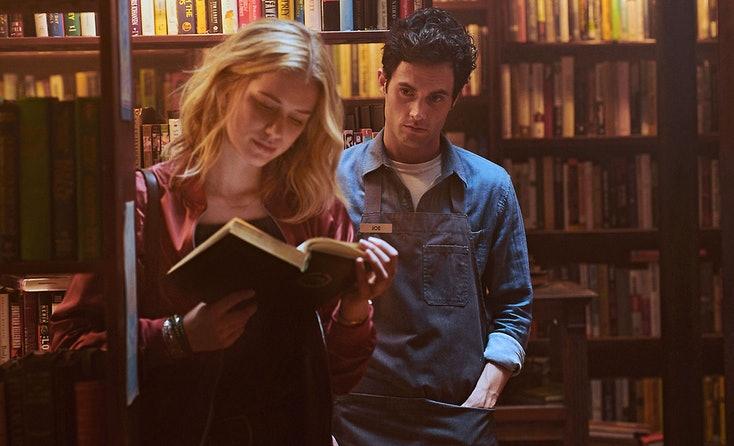
I AM HAUNTED BY JOE'S STUPID LITTLE BOOKSELLING APRON
...
The truth is that it is rare to be idle working in a bookstore, let alone stay romantic about it. Someone leaves a used tissue on the handrail, folded over and tucked onto itself like a diseased cravat. UPS just delivered a ton of shipments and half of them are either torn open or full of titles you didn’t order. The book that you love that you constantly try to push on customers hasn’t moved off the shelf in weeks. Meanwhile, you have to check if there’s any backstock of The Alchemist because, for some reason, we’re always selling out of The Alchemist. And The Four Agreements. And The Myth of Sisyphus. And, weirdly, the fifth My Struggle book (just the fifth one).
Obviously this wouldn’t make for very compelling TV, which is fine. Viewers prefer to see Penn Badgley, with his handsome, sculpted face, and his insane, incomprehensible apron idly put a few books on a shelf or ring up the odd tourist. But it irks me to no end. If anyone has to pop out it’s for some light stalking, not a run to the bank. No one is lifting heavy pieces of furniture or rearranging shelves. No one ships out orders. No one sets up book displays. No one even orders their books. At one point in You, Joe is shown opening a box of books that seem to have been teleported to him by God before putting them out directly onto the shelves. Questions abound. Why is there only one box? Why isn’t he drowning under the weight of at least ten more? Doesn’t he want to at least label the merchandise first?
Onscreen booksellers should, at the very least, be tired. Or stressed out, or pissed off, or shown to be doing something that they don’t have time for. Toilets have to be cleaned. There’s an old man on Line 1 who wants to know why we don’t sell a book that he can’t recall the title of but remembers seeing in a window once in 1998. That part in You’ve Got Mail when Tom Hanks’ Joe Fox shops at Kathleen Kelly’s store and balks at the full price? Yeah, that part, always, forever. Skull-face Bookseller Honda-san, a manga and anime featuring Japanese booksellers wearing armored helmets and plague doctor masks, is perhaps the only truly accurate depiction of bookstore life. Customer interactions are stressful, everything breaks, everything is heavy, there’s no room to put books out, there’s both too much and not enough time.The only trope more common than the perfect little bookstore is the bookstore that’s about to go out of business. People wearing shirts that say something like “My life is better with books” remind you that this book, every book, is much cheaper on am*zon and that e-readers are more convenient. All this can make a bookseller (me, I’m the bookseller) mean, which is why there is something recognizably funny and a little awful about people like Joe from You or Bernard Black from the British sitcom Black Books, who owns and runs the titular shop. Joe lords his pretentious literary authority over strangers. “These books are more alive, more worthy than anyone I know,” he says, the world’s most inept serial killer, television’s most negligent bookstore manager. Meanwhile, Bernard is constantly trying to get people out of his store. In one episode, a customer walks in during business hours and Bernard screams to his coworker, “Why didn’t you lock the door?!”
...Something about books, or the way we talk about books, stuns people into an obnoxious reverence about all the places that sell or borrow them. As my friend, who used to be a librarian and is now a best-selling author, told me recently, “Working in a library is like working in a coffee shop and by that I mean people don’t see you until they need something from you and then they ask for a sip from your mug.”In every Instagram photo of a perfectly sunlit stack of books labeled “a good bookstore is my happy place” there is someone who is extremely undercompensated just out of frame waiting to reshelve those titles they used for props. Bernard Black says, “The pay is not great, but the work is hard.” Sometimes you meet cool people, sometimes you get to push a book into someone’s hands that changes their life for a little while. You’ll likely never know if or how. You’ll likely not have a fulfilling interaction like that for many weeks or months! Then again, there’s always more work to do. Like explain to people that the new James Bond isn’t based on a novel or why we don’t have an edition of Dune with Timothee Chalamet’s face on it.
Nicholas Russell is a writer from Las Vegas. His work has been featured in The Believer, Defector, Reverse Shot, Vulture, The Guardian, NPR Music, and The Point, among other publications.
ARTICLE from NICHOLAS RUSSELL
https://www.gawker.com/culture/why-did-joe-from-you-wear-an-apron-to-sell-books"Imposing a minimum shipping cost for books would weigh on the purchasing power of consumers," am*zon told Reuters in a statement.
That is an undesirable consequence government officials are wary of at a time President Emmanuel Macron administration is scrambling to head off growing discontent over rising energy prices six months from an election.
More than 20% of the 435 million books sold in France in 2019 were bought online and the market share of France's 3,300 independent bookstores has been slowly declining because of competition from online retailers like am*zon, Fnac (FNAC.PA) and Leclerc.
French law prohibits free book deliveries but am*zon has circumvented this by charging a single centime (cent). Local book stores typically charge about 5-7 euros ($5.82-8.15) for shipping a book.
"This law is necessary to regulate the distorted competition within online book sales and prevent the inevitable monopoly that will emerge if the status quo persists," the ministry told Reuters.
Virtually-free delivery allowed book lovers in rural areas to buy books at the same price as someone who could walk into a bookstore -- precisely the spirit of the 1981 law, it said.
ARTICLE By Elizabeth Pineau
https://www.reuters.com/business/retail-consumer/france-moves-shield-its-book-industry-am*zon-2021-10-25/
REFERRING ARTICLE
https://kobowritinglife.com/2021/10/29/saving-french-indies-a-new-fsg-president-and-old-book-smell-this-week-in-book-news/
-
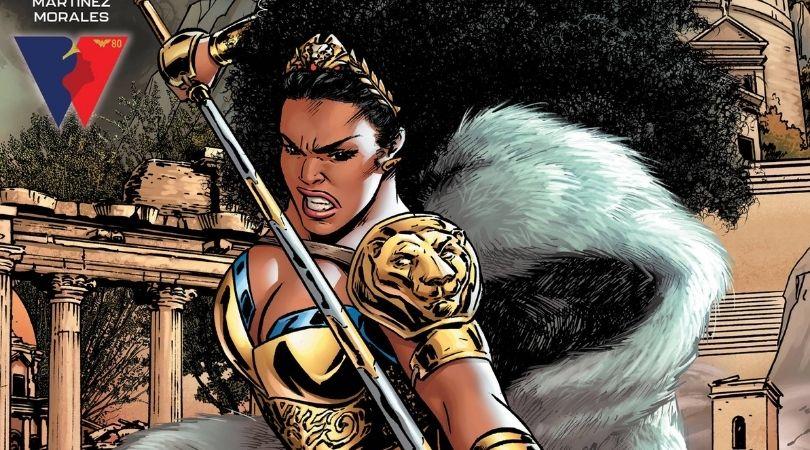
My thoughts to an interview between Collier "CJ" Jennings side Stephanie Williams , co author of "Nubia and the Amazons"Love the cover image, warrior woman kill!:)
The first question asked about what comics the writer likes and her artistic introduction to comics. Interesting how influenced she was and is to telenovelas. I near despise telenovelas or anything similar. Fabricated drama is ... not for me, at the least.
The second question ask about Williams relationship to the character Nubia. Williams lies in my eyes, when she said :"She’s such a unique character in the way she’s been around for so long but has little history to carry her." . That isn't true. Nubia by 1979 is the leader of an island full of men. Made by the god Mars, to attack the women of paradise island. He stole Nubia as a baby, since Hyppolita made two babies made of clay, not one.
I think that is a lot of character. Nubia is the lone female on an island of men. But she is the ruler by her strength, literally. She has a lot of years or experience. I haven't read the comics, but what happened to the island kingdom Nubia governed? Is it gone?
Now, prepare for a rant reader. If you are still here.
I despise... no I hate... no I am nearest to hating as possible, the comic book industry in the usa's penchant for rebooting. It is ugly storytelling. DC Comics in the early 1980s committed the greatest storytelling sin in the global comic book world; the global comic book world is: bande dessinee of Europe+Manga of Japan+ Comics of the USA+ all other similar art craft. The crisis of infinite earths is the great moment of stupidity that spawned a culture that has never died in the usa and I wish it would and will.
The original author of wonder woman did not make thymesecra a prison or a gateway to hades or hell. It is sinful that was added to the wonder woman world that had been around for decades. What sense does it make to add something into a world of that magnitude after it has been around for decades.
The doom's doorway was introduced in 1987. Nubia was first introduced in 1973. Wonder woman first comic was in 1942.
Arrest my case. can you imagine some writer being allowed to make under Camelot, a secret portal to Avalon. Its awful storytelling. You have to change the entire epic.
Williams said:"I always felt there was enough foundation from her initial introduction to build a sturdy framework from it, and that’s the part that’s been the most exciting when it comes to writing her. Like, there is no doubt that this character is strong, formidable, and fierce, but exploring her wants, desires, fears, and how life sequestered away guarding Doom’s Doorway has impacted her gives us so much room to play with."
I oppose her interpretation to this character. She suggests this character doesn't have enough initially to grow from but, per her penchant for drama which she said herself, she likes the idea of a gateway to hell under Thymeiscara, as some secret job of women.
The original creator to wonder woman , in my eyes , had it right. The amazons are meant to be, a set of heterosexual women, women defined as humans born with a vagina, who are masterful warriors and after ages of battles/wars/fights, the ancient gods granted them what they earned, an idyllic island. That is it.
SOme people on earth have drama-less lives. It may be hard for many to comprehend but some people do. I like the idea that Diana , unlike superman who is the last of his kind or batman who is the last of his bloodline , knows where her family is. She knows where her people are. She knows her people are safe, happy, content. She chooses to be among her outside world because she wants to. This isn't something that fate forced on her or made her choose, she simply wants to do good to those she has no need to. I like the concept. MAking the amazons wardens of a prison is ugly. You change diana into a woman that has happiness inside into a woman who comes from some tradition of keeping the world safe. I think it is an ugly change.
And, add to the fact, Nubia's island had little discussion. If any thing , the crisis writers and afterward missed the true trick. The island that wasn't developed wasn't paradise island aka thymyscera, it was the slaughter island. I don't mind adding to a story, but add where the space is. I repeat a creed of ancient warrior women who don't allow men into their community , earning an island of PARADISE after ages, thousands of years, of battling as part of humanity isn't a bad or outdated story. Women in modernity, in the year 2021 in militaries get raped or violated by their male peers. Is it so hard to see how a sorority of female warriors after thousands of years of fighting, earn a place of peace by the gods?
How is that story outdated. I oppose the idea that is it. Yes, all women are not included. Yes, all women are white. Yes, all women are hetero. But, Nubia already shows that other women have a place in that world. And, Nubia showed it from the original writer's concept. Don't destroy it, cause the work around is beyond your ways as a writer.
Good information
http://www.carolastrickland.com/comics/wwcentral/misc_indexes/nubia/nubia.htmlThe third question ask Williams what she Nubia/Wonder woman plot points she is most interested in dabbling in. I quote williams: "As I mentioned earlier, Nubia and the Amazons is just as much of a reintroduction to Nubia as it is to the Amazons of Themyscira and life there. "
First she wrong, this isn't a reintroduction cause it isn't along how wonder woman originally was. For the record, I have no problem with a black warrior woman, or a black warrior woman queen, or a black warrior woman queen who is referred to in an ancient hellenistic/roman cultural frame manipulated in modern taste.
My issue is, why not make a new character. I can take any character, any world, and add to it without changes to its plot. I am not making myself out to be a writing god, but it is about telling stories that don't require large manipulation of their prior telling and that is what I find is a constant disease in the usa comic book industry.
I quote williams again: "Themyscira seems like a utopia at first glance, but with us bringing Doom’s Doorway back into the mix, the perspective kind of changes. "
Sequentially, WIlliams is going back to her drama roots, and that is the primary problem with her storytelling. She likes bringing drama where their was intentionally no need nor no plot purpose. Again, paradise isn't a prison, isn't a gateway to prison, it is a place of peace, pure or simple. And it isn't weak or less than to come from a place of peace. The idea that "The Gods" are human by making paradise island a prison gateway is bad storytelling for me. Nonhumans are non humans, not secretly human. The gods shouldn't have intentions like human beings.The fourth question ask Williams why Nubia or why now. To be blunt, the why Nubia is simple. DC doesn't own the rights to all characters in imagination and wants to use characters they own the rights to as well as the oldest possible characters and in the USA, USA only, with MEtoo plus black lives matter after over multiple centuries of women or blacks nonviolently battling white men for rights led to this time.
Williams like many artists, incorrectly or dysfunctionally, makes it seem like it should had been or was a long time coming which is a falsehood. Remember, anyone who reads this, never ignore the power of money.The fifth question asks what Williams want to do in the future with Nubia. Read the article link below for that.
The sixth question ask, what fans or potential fans will get from the Nubia comic. Read the article link below for that,
In Conclusion, please buy the comic, and enjoy it. The writer or artists are clearly having fun and it seem very interesting or engaging. And , even if you oppose the storytelling or art in any way, remember, you are free to create your self, so enjoy the work of others.
Article Link
https://butwhythopodcast.com/2021/11/03/interview-stephanie-williams-on-updating-themyscira-in-nubia-and-the-amazons/?fbclid=IwAR24-isJsRlK4Itl2Y6a0YYYKr3mFXMvZZ0qo2py6WZRXIjW6Hpo0eotqEo
I learned about this in the SOULar powered : Afrofuturism Slow-Reading Group
https://www.facebook.com/groups/770376743046286/about/Two Thought Experiments
1. What if the gods knew Mars would steal Nubia , while they gave Diana plus Nubia the power of the gods?
2. What if the Dooms Doorway was on Slaughter Island? -
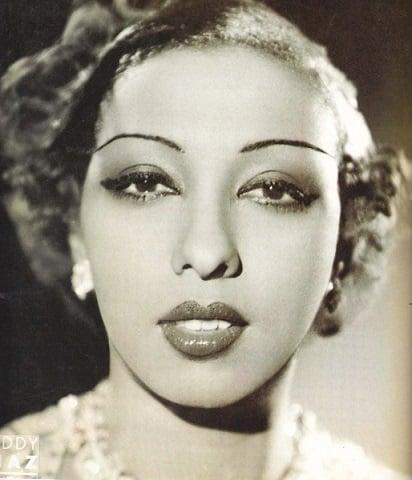
"All men can live together. If they wish to."
- Actress and civil rights activist Josephine Baker (1906-1975)
Craig gave candid thoughts, though, when discussing whether the lead should be a woman or an actor of color.
"The answer to that is very simple," Craig declared to Radio Times < https://www.radiotimes.com/movies/james-bond-daniel-craig-woman-next-newsupdate/ > . "There should simply be better parts for women and actors of color. Why should a woman play James Bond when there should be a part just as good as James Bond, but for a woman?"
https://www.yahoo.com/entertainment/daniel-craig-advice-to-next-james-bond-dont-be-s-231011388.htmlAn essay on the "lavender scare" if you don't know of it, take a look
https://www.archives.gov/publications/prologue/2016/summer/lavender.html
James Webb was head of NASA during the mentioned lavender scare, his name is being placed on a telescope, some, not most, want his name disconnected from the device, regardless of his long or fruitful stewardship of Nasa, what say you?
https://www.yahoo.com/news/nasa-advisor-quits-agency-keeps-100633698.html
-
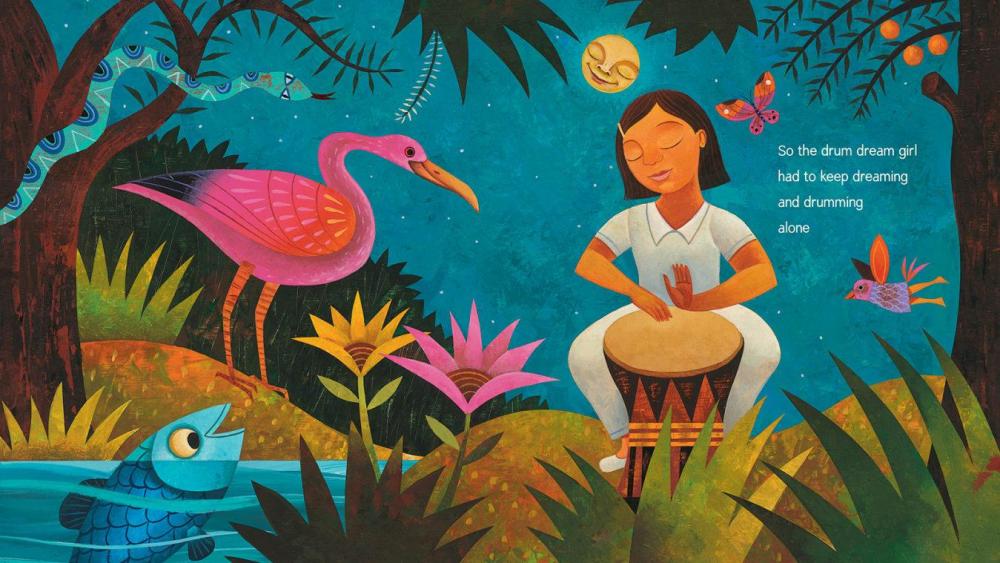
Afro Latinx children's books are still too rare. These four authors are trying to change that
Written by
CNN Style StaffA vivid homage to the graffitied streets of the Boogie Down Bronx and an interstellar quest for the perfect natural hair style are part of a new wave of picture books celebrating Afro Latinx culture and characters, in an industry where these stories are still few and far between.
"I want to show kids of diverse backgrounds that they can go on fantastical adventures, too," said New York-based illustrator and toy designer Yesenia Moises, author of "Stella's Stellar Hair." She noted that in children's media, stories featuring protagonists of color are often about overcoming struggle, or are "hyper-focused" on identity and race. "I want to step away from that for a moment to be able to show that ... their worlds can be vibrant and full of color."
Having grown up without picture books that reflected their own experiences, the Latinx authors and illustrators featured below are crafting and sharing those stories themselves, with colorful vivid imagery, prose and verse.Here, four authors speak about their storytelling philosophies, and why kids need to see themselves in the pages of the stories they read.
Eric Velasquez
Eric Velasquez is an Afro Puerto Rican illustrator, author and educator. He has illustrated more than 30 books and has authored four, including "Octopus Stew," about a boy named Ramsey who must save his grandmother from the gargantuan octopus she's cooking.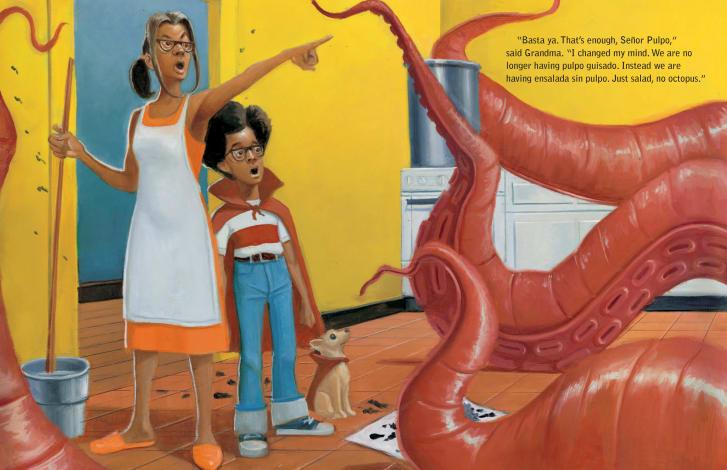
"Octopus Stew" was inspired by the tall tales of Velasquez's father. Credit: Eric Velasquez/Courtesy of Holiday House Publishing
My family comes from a strong oral storytelling tradition; we would gather together to share and listen after nights of dinner and music, and so it was something that I wanted to be part of.
My book "Octopus Stew'' is essentially a tribute to that oral tradition. Whenever my dad would come over and cook for my friends and me, he would inevitably say, "Did Eric tell you about the day I rescued him and his grandma from the giant octopus?" Every single one of my friends knows that story because of him, and over the years, it just grew like a tall tale.
Grandmothers are central to many of my stories. I can trace my own career back to the summers I spent sketching in my grandmother's living room in Spanish Harlem, surrounded by music.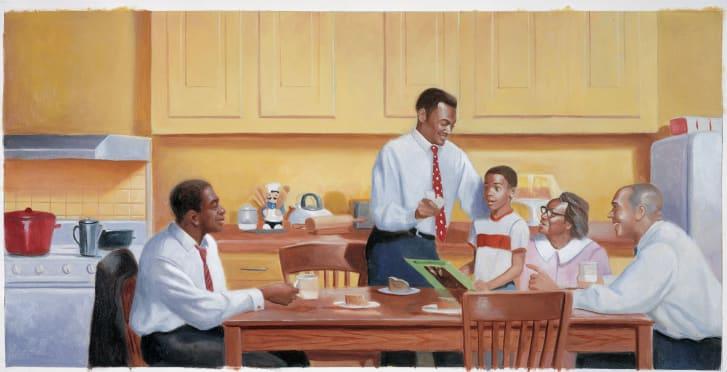
In "Grandma's Records," Velasquez recalls the memories from his own childhood that made him understand that 'heroes' aren't just White. Credit: Eric Velasquez/Bloomsbury Children's Books
Those summers inspired my book "Grandma's Records," and also taught me the importance of having heroes who look like us. I remember marveling at the musicians who would visit when I was young, including Rafael Cortijo, the prime architect of Puerto Rican salsa. When he came by, my grandmother told me only to refer to him as "maestro."
"That man is a genius," she said, "and he deserves to be treated with respect."
In school, when we learned that Beethoven was a musical genius, I remember thinking, "I know a genius too! He loves rice with beans and roast pork, and he even entertains us with music after dinner." I didn't feel there was a disconnect between the concept of "genius" and what I saw around me.
But over time, I realized other kids struggled to do the same; at art school, when they pictured "heroes" they would never draw men or women of color.
That's when I started to realize how important representation is. When you grow up with examples of diverse heroes, it affects your imagination. You start to believe that you can be part of this creative world, and I think that's very important.
Yesenia Moises
Yesenia Moises is an Afro Dominican toy designer and illustrator. She is the author of "Stella's Stellar Hair," a book about a young Black girl with natural hair who travels the solar system in search of hairstyles."Stella's Stella Hair" is about owning your natural hair, inspired by Moises' own hair journey. Credit: Yesenia Moises
When it comes to my hair, I spent most of my life trying to fit the mold of Eurocentric beauty standards by chemically relaxing my hair. Growing up, my mom, a fair-skinned Latina woman with the loose waves a lot of people aim for -- not at all like mine -- would always comment on how thick or unruly it is, or how it tangles itself.
It was only after I started letting my hair grow out in its full, natural glory that I grew to love it, but even then I realized that many kids today are still made to feel bad about their hair. So I created "Stella's Stellar Hair" to celebrate the variety and creativity of Black hair across the African diaspora.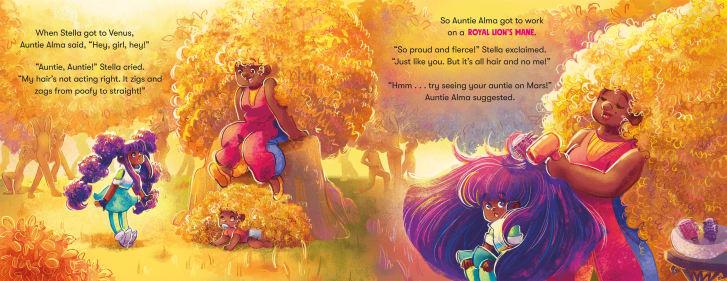
Stella is aided on her intergalatic quest by cosmic aunties, who each have a hairstyle for her. Credit: Yesenia Moises
The whole concept of having aunties from the different planets came from one Black hair trade show I attended, which was full of older Black women with amazing natural hairstyles that showed their personalities. And I'd never seen that before. I was so used to making sure that my hair was as flat as possible, but here were all these older women who were just proud of the hair that grew out of their scalp. It really inspired me to show just how versatile and beautiful Black hair can be.
I think it's really important for young readers to feel seen more than anything else. As a dark-skinned Afro Latina, it wasn't until 2018, when I saw Miles Morales become Spider-Man in "Spider-Man: Into the Spider-Verse," that I saw someone with my background represented in the media I watch. I really loved how the director made a choice to exclude English subtitles for the conversations Miles had with his mother. When you add subtitles, it makes the experience feel foreign; but in their household, it was natural -- just like it is in mine. That really floored me.
Margarita Engle
Margarita Engle is a poet and author whose works celebrate her Cuban heritage. Her book "Drum Dream Girl," illustrated by Rafael López, is inspired by the true story of a young Chinese Afro Cuban girl who became a drummer for Cuba's first all-female jazz band.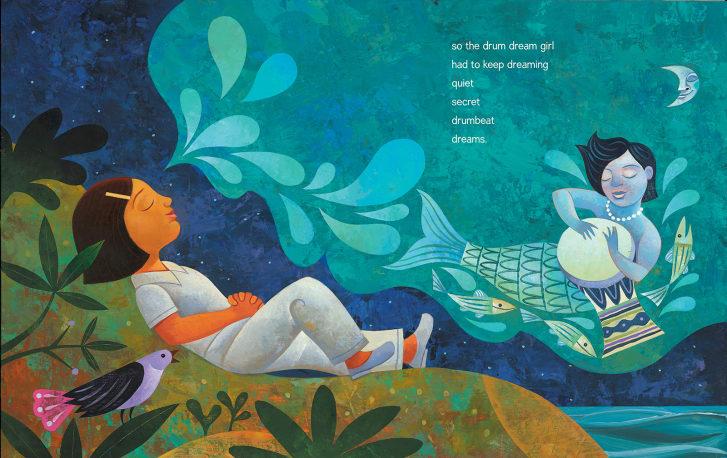
"Drum Dream Girl," written by Engle and illustrated by Rafael López, tells the journey of a girl in Cuba who pursues her love of drums. Credit: Margarita Engle/Clarion Books
I was born and raised in Los Angeles, but developed a deep attachment to Cuba, where my mother is from. We would go back in the summers to visit the extended family, but we were cut off from them because of travel restrictions after the missile crisis. When I was finally able to go back as an adult in 1991, I found that I wanted to write about the experience.
I know that, all of a sudden, we're not supposed to hyphenate things anymore in our writing. But I felt like I lived on that hyphen, and the compound word "Cuban-American." It was a bridge and an abyss at the same time; by the time I was a teenager, it felt like it was easier for a US citizen to walk on the moon than to visit relatives in Cuba.
Music is a recurring theme in my books. My picture book "Drum Dream Girl" is based on the life of Chinese Afro Cuban girl Millo Castro Zaldarriaga, who played the drums in Cuba when it was forbidden to girls.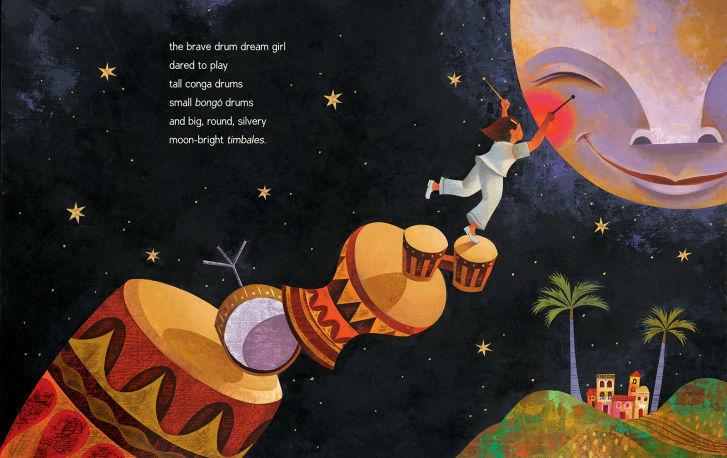
The story is a real tale of perserverence in a dreamlike setting. Credit: Margarita Engle/Clarion Books
I read the memoirs of her older sister and there were these amazing photographs of this all-girl band -- the first of its kind. In the 1930s, most of the jazz bands had been men, and here was one made up entirely of sisters. And the youngest was a 10-year-old girl who wanted to play the drums.
Even today, in certain cultural traditions that come from West African religion, women in Cuba have to fight for the right to play certain types of drums. But in Millo's case, for entertainment, she really opened that door. The band became very successful, and everybody loved her drumming, so, after a while, many other women drummers followed.
I was inspired by her courage and her perseverance. When I talk to children about that book, I ask the boys, 'How would you feel if society said you couldn't drive monster trucks, or only girls could motorcycle race?' And all the boys immediately give up their right to be the only one to do something. They instinctively understand that this isn't fair.
Charles Esperanza
Charles Esperanza is an Afro Puerto Rican illustrator and author whose new book, "Boogie Boogie Y'all," published this summer. The book is a brightly colored depiction of his home borough of the Bronx, as well as a tribute to graffiti.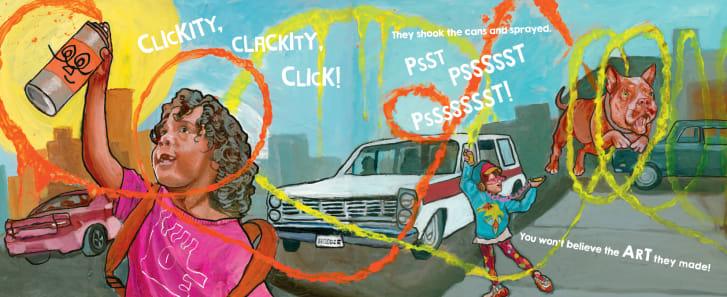
"Boogie Boogie, Y'all" celebrates the Bronx as a colorful cultural hub. Credit: CG Esperanza
I'm interested in telling stories and taking something about our culture -- as a Black and Latino person, and as a Bronx resident -- and de-stigmatizing it. What inspired "Boogie Boogie, Y'all" was an awesome graffiti piece outside of the community center where I teach. I took a photo of it to show to my students; it turns out none of them has seen it before. I said, "Y'all don't really look around and take in all of the awesome things that are on the street."
I've asked my students what they've heard about graffiti and a lot of the answers were recycled from decades ago: It's gang symbols; it's vandalism. I wanted to give them another perspective about it; I pay homage to a lot of contemporary street artists in the book like "Gully" and "Modus," who can be seen all over the Bronx and the rest of New York City. They've seen the book and have expressed excitement about it.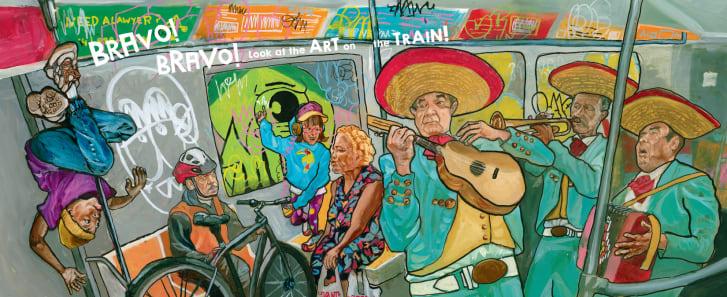
Esperanza wrote and illustrated the book after a conversation with his students about noticing what's in front of the them on the streets of their home borough. Credit: CG Esperanza
I think kids need to be able to see themselves in the books that they read, and they need to be able to see themselves in the art they look at. As a teacher, I notice many of my Black and Brown students create White characters. Instead of preaching to them that they should use people of color, I show them examples of amazing Black characters, created by artists like Yesenia Moises, LeSean Thomas or Geneva Bowers to inspire them.
I get a lot of inspiration just walking around the Bronx, and I definitely wanted to capture that. I love the borough for its grittiness and personality. We are known for our cultural contributions through hip-hop, but we have so much more in food, fashion, art and music that's waiting to be shared with the world. All of our communities -- old and new -- are adding their vibrant tag to the wall that is the Bronx.
When I was first trying to get into the business. I heard some really wild things about why publishers wouldn't have a Black child as the protagonist. I remember one editor told me that for picture books, they would rather have an animal like a panda or something as a main character, because every kid could relate to that. I was blown away, realizing that the underrepresentation was intentional this whole time. So I'm glad that we have so many artists now that are coming in and knocking down the door and doing awesome things.
Each author's personal statement was edited for length and clarity by a member of the CNN Style team.Jess Bergman/August 11, 2021
The Uncomfortable Rise of the Instagram Novel
Beth Morgan’s “A Touch of Jen” is the latest work to reckon with a social media–fueled obsession.
https://newrepublic.com/article/163238/uncomfortable-rise-instagram-novel-touch-jen-beth-morgan?utm_source=Sailthru&utm_medium=email&utm_campaign=Lit Hub Daily: August 13, 2021&utm_term=lithub_master_listA sudden price change for Amanda Gorman’s book shocked booksellers.
https://www.publishersweekly.com/pw/by-topic/industry-news/bookselling/article/87229-gorman-book-s-price-hike-startles-booksellers.htmlWriters notes: the record label remixing novels into music
https://www.theguardian.com/books/2021/aug/27/writers-notes-the-record-labels-remixing-novels-into-music-bibliotapesREFERRAL- New Environmental Canon, An LGBT+ Picture Book, and Women in Horror: This Week in Book News
https://kobowritinglife.com/2021/08/27/new-environmental-canon-an-lgbt-picture-book-and-women-in-horror-this-week-in-book-news/
-
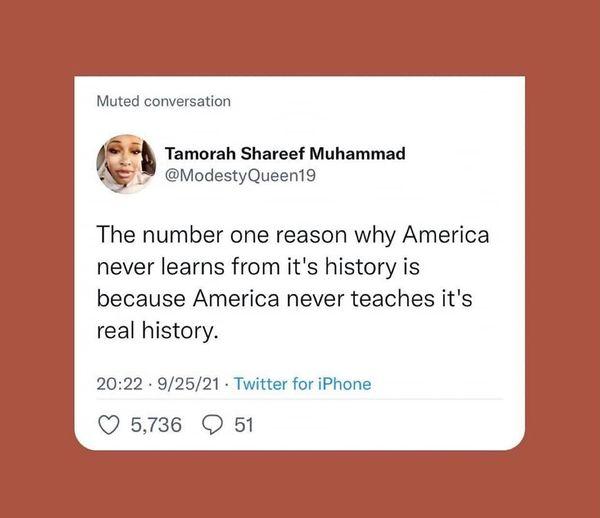
I will use as an example a community outside of the usa . In the last century starting in the 1940s to this year , global media, dominated by the usa, and primariily administered by the jewish community in the usa, has placed in countless history books/countless movies/films/stageplays the negative actions of german nazi's against the non nazi german populace <romani/jews/disabled people/et cetera>. Every single german person living today knows a history of germany during the world war II era. I said a history cause what the sister above calls a real history of the usa, includes the negativities or complexities all to often absent. But in german nazi tellings the reverse is true, all the negatives or complexities are well documented. But the positivity is absent, like how the nazi's rebuilt a country being intentionally impoverished by its neighbors. How the nazi's had become the envy of so many countires or communities absent any financial aid or governmental alliance to said communities. Thus, The german people today have been given all the negative or complex elements of nazi history and yet, in germany the post world war II nazi community has always continually grown. Is that reason cause the modern germans don't know about death camps, they don't know about burning people alive. Don't know about all sorts of experimentations? They are fully aware of history, all to often more aware of the negative than anything else, but they still align philosophically with the nazi party of yore. The question is why? Based on the sister's assertion , these people are ignoring history but how can they ignore what is commonly present. The attacks on turkish people in modernity, muslims is that indicative of the nazi's. The reason why countries ways don't change is very simple, what the people want doesn't change. LAws change Nike. Media narratives change. But the desires of people , of communities they don't change the same way. Many german people still want german superiority, they still want germany first, they still want those they don't deem german out of germany. What people want is why things don't change, not knowledge. Strom THurman was a white man who had a secret child with a black woman , treating that child so well, that child still speaks of him favorably. Even though this is a man who consistently, yelled to high heaven about the need to deny the black community all things, all the while he is taking his black child/ mulatto in latin america, to the beach or other places away from the media, having a good time. Knowledge, acquisition of knowledge does not change one's desires.
-

Well, What she suggest is: knowledge of the truth will manipulate the actions of people to some supposed betterment.
I argue that ignorance has nothing to do with the actions of countries or individuals.
I will use three example:
The neo nazi movement in germany/austria.
The War in Afghanistan
Eric Adams current best bet mayor of NYCEven the most unconcerned person on earth, knows of what the nazis did. Why is it, the neo nazi movement has always grown since world warII? is it education? in german education books, the supposed crimes of the nazis is touted to children every day. Every german person knows the nazi's activities?
Yet, still, the neo nazi movement grows. why? By the sister's proclamation the neo nazi german community is ignorant, to what she calls the real history, but how can that be.
The german government knows and yet, they don't seem interested in stopping the neo nazi's in a similar way the government of otto von bismark didn't stop the original nazi's. Is angela merkel and company uneducated. THe US continually suggest germany has one of the finest education systems in the developed world. all throughout germany signs denouncing the nazi's are present.When the usa entered vietnam, they knew the french had failed to do what the usa tried, but the usa tried anyway. The russians tried to do in afghanistan what the usa tried to do in vietnam, knowing the usa failed. The usa tried to do in afghanistan what they knew russia had failed to do in afghanistan or what the usa had tried to do in vietnam. Did not the elected officials of the usa know about the vietnamese people hanging on helicopters? was it now known? how many films, how many books, how many documentaries? By the sister's philosophy, it is ignorance that led to these actions. but how? the soviet or statian miliataries don't know about military failures? government officials of the usa or russia don't know about events in the mid 1900s and beyond?
Lastly, to add a touch of black. Eric Adams is more than likely going to be the mayor of NYC. Now, when he was a youth he was attacked by law enforcers. He decided to become a law enforcer. His logic was false, that becoming a law enforcer can change the culture of the law enforcement community. A recent article admitted that a study group from some white firm stated that over half the killings by law enforcement go uninvestigated. Now, to the issue, most black people know this. I can't imagine eric adams, mother/father/counsin/sister/brother didn't know all this. Eric adams himself should had known that the culture in the law enforcement community is beyond changing from inside. But he still felt like it. He felt like the presence of himself in that community will yield someone of a particular knowledge that can change the culture.
The problem is, the german people are not uneducated to the real history, they want: german superiority. The USA government isn't uneducated to history, it wants to be an empire. Most Law enforcers are aware of the harm their abuse does, they want to abuse their power.
-

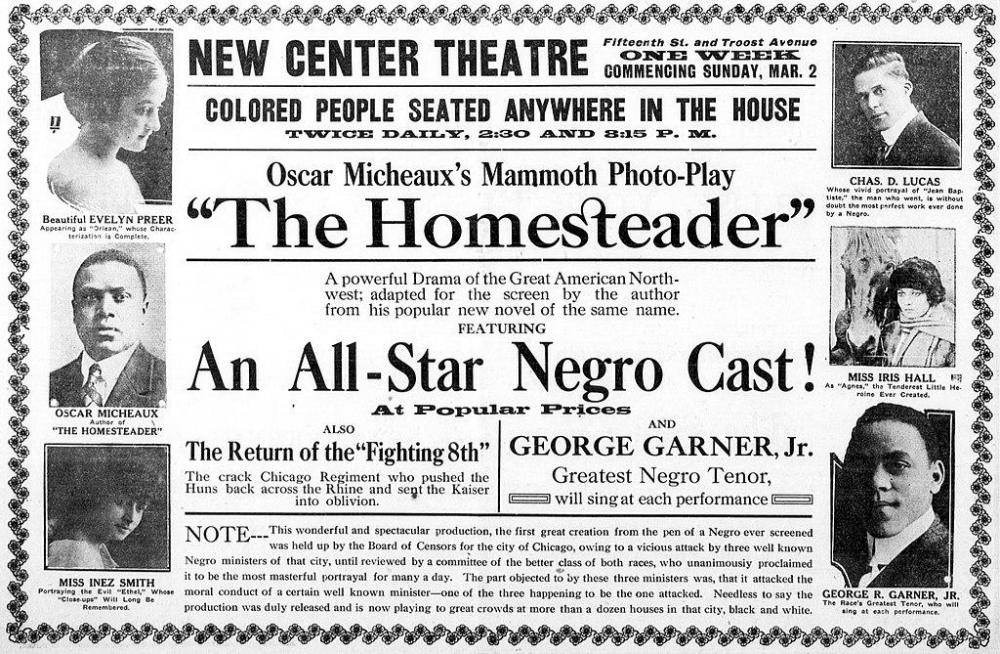

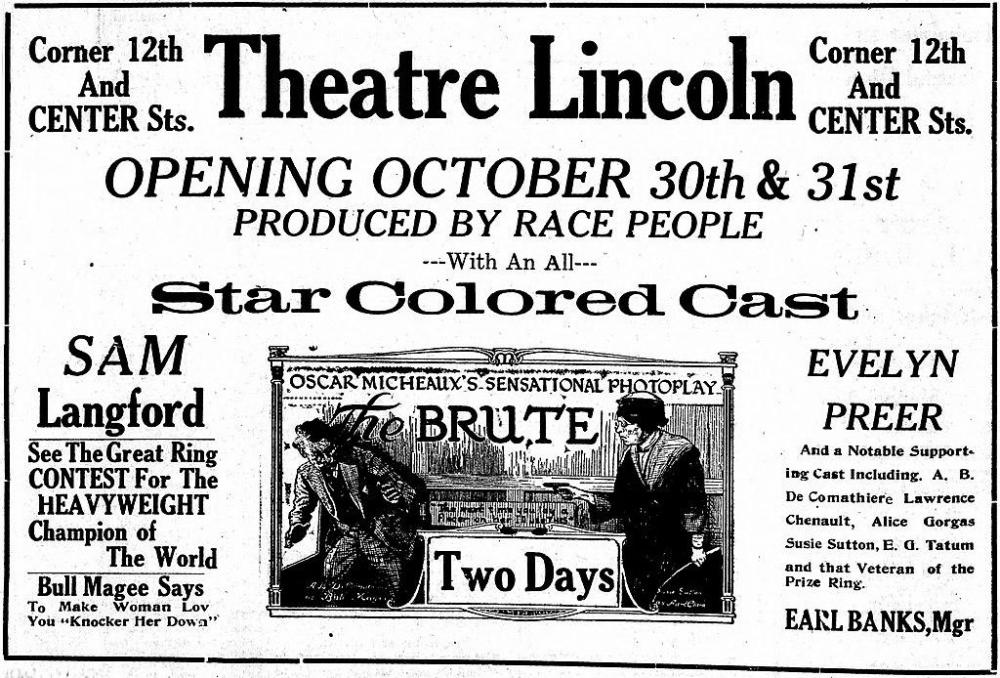
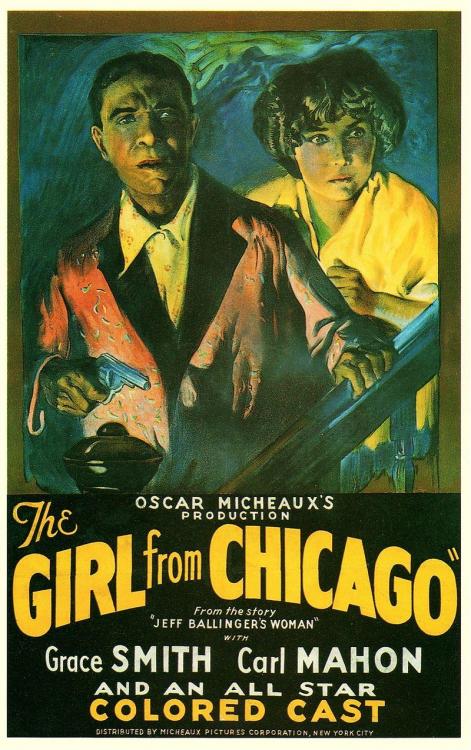
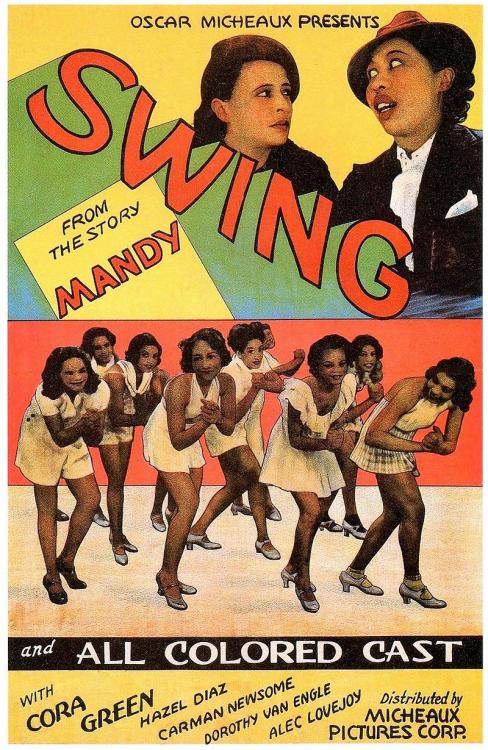
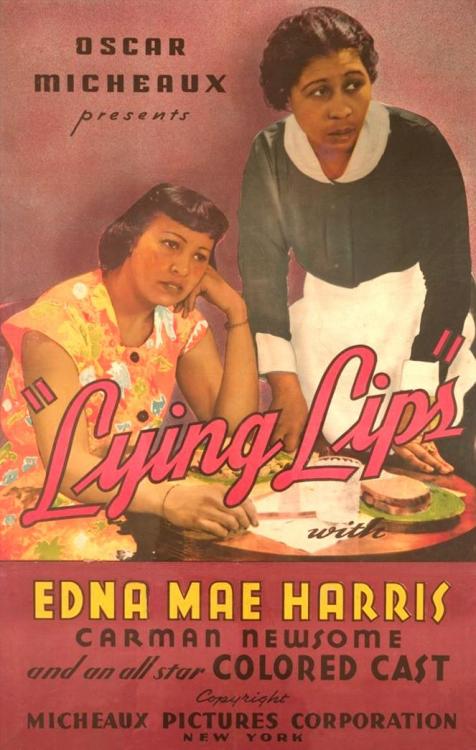

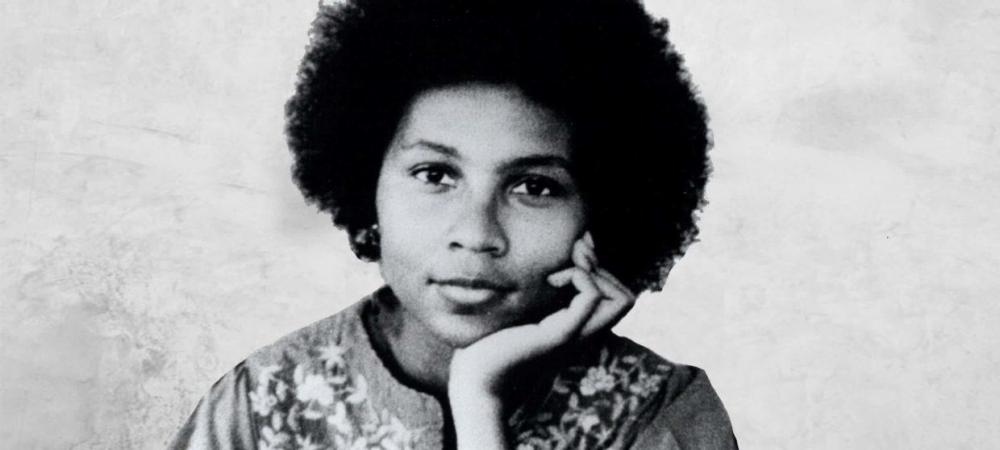
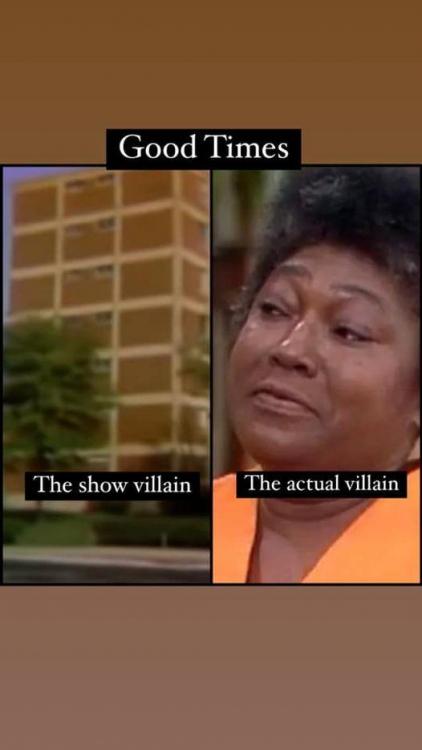

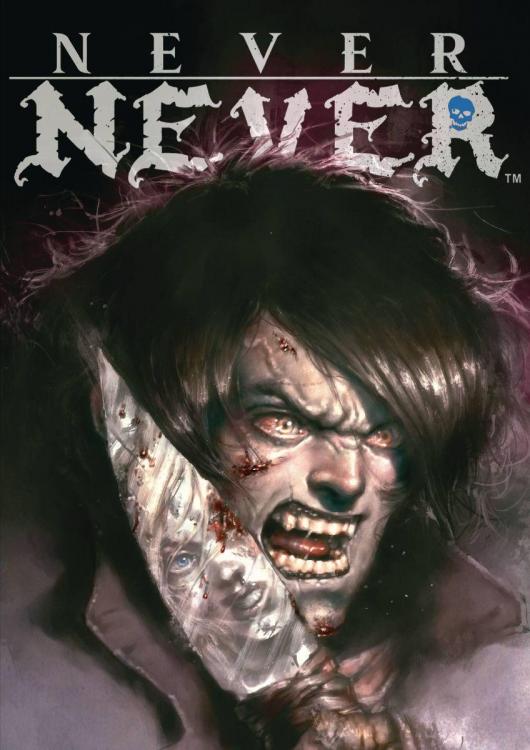
 : Getty/Emma McIntyre https://t.co/2BJLT0JDN3" / Twitter
: Getty/Emma McIntyre https://t.co/2BJLT0JDN3" / Twitter